21st Century Skills at Work All Summer
How to Frame Your Experience and Win the Job Search
Sarah Kurtz McKinnon
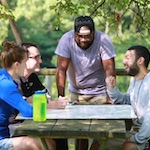 No responsibility is greater than caring for other people's children, but youth leaders often fail to communicate that effectively on résumés and in job interviews. Using the respected framework created by P-21, business guru Sarah Kurt McKinnon shares the most effective ways to notice and narrate the marketable skills that youth leaders acquire each season. This module's handout is our most popular!
No responsibility is greater than caring for other people's children, but youth leaders often fail to communicate that effectively on résumés and in job interviews. Using the respected framework created by P-21, business guru Sarah Kurt McKinnon shares the most effective ways to notice and narrate the marketable skills that youth leaders acquire each season. This module's handout is our most popular!
Advanced Skills for Working with Difficult Parents, Part I
Using Empathy and Diplomacy to Create Partnerships
Dr. Chris Thurber
 Children aren't our only camp clients. Directors and experienced staff know that partnerships with parents are an indispensable component of a successful season. In this entertaining, two-part module, you'll witness five categories of difficult parents along with realistic and clever ways to respond, all without compromising your campers' best interests. Part I: Overwhelmed Parents and Anxious Parents.
Children aren't our only camp clients. Directors and experienced staff know that partnerships with parents are an indispensable component of a successful season. In this entertaining, two-part module, you'll witness five categories of difficult parents along with realistic and clever ways to respond, all without compromising your campers' best interests. Part I: Overwhelmed Parents and Anxious Parents.
Advanced Skills for Working with Difficult Parents, Part II
Bossy, Defiant & Unhappy Parents
Dr. Chris Thurber
 Children aren't our only camp clients. Directors and experienced staff know that partnerships with parents are an indispensable component of a successful season. In this entertaining, two-part module, you'll witness five categories of difficult parents along with realistic and clever ways to respond, all without compromising your campers' best interests. Part II: Bossy, Defiant, and Unhappy Parents.
Children aren't our only camp clients. Directors and experienced staff know that partnerships with parents are an indispensable component of a successful season. In this entertaining, two-part module, you'll witness five categories of difficult parents along with realistic and clever ways to respond, all without compromising your campers' best interests. Part II: Bossy, Defiant, and Unhappy Parents.
Best Boys, Part I
Healthy Masculine Role Models
Michael Thompson
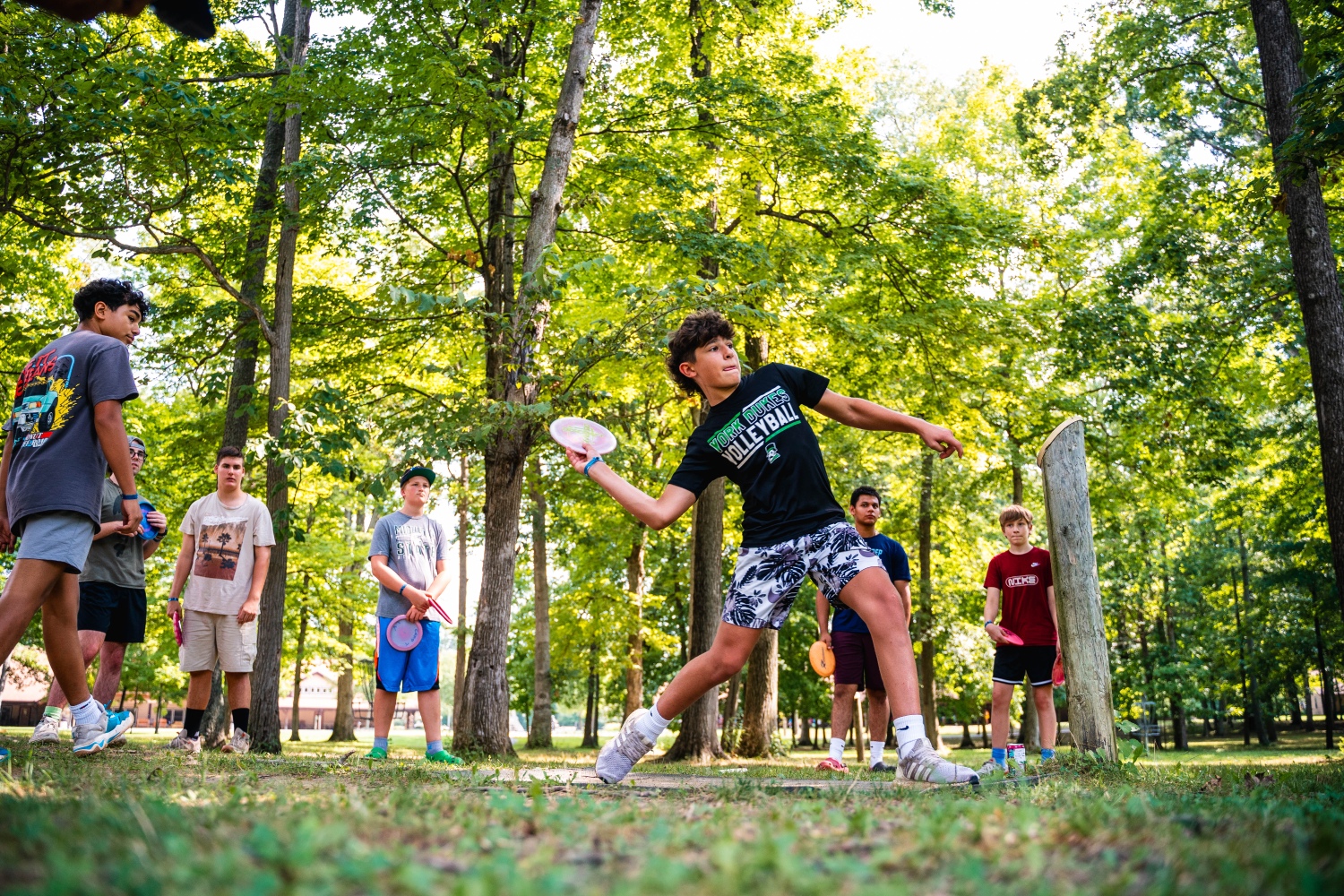 World-famous psychologist and New York Times best-selling author Dr. Michael Thompson shares insights, observations, and humor about boys and masculinity. Your male staff can become a powerful force against the two-dimensional, media-driven view of masculinity by setting a healthy example and understanding how and why boys yearn for friendship, moral clarity, and membership in the tribe.
World-famous psychologist and New York Times best-selling author Dr. Michael Thompson shares insights, observations, and humor about boys and masculinity. Your male staff can become a powerful force against the two-dimensional, media-driven view of masculinity by setting a healthy example and understanding how and why boys yearn for friendship, moral clarity, and membership in the tribe.
Best Boys, Part II
Rituals, Play, and the Boy Code
Michael Thompson
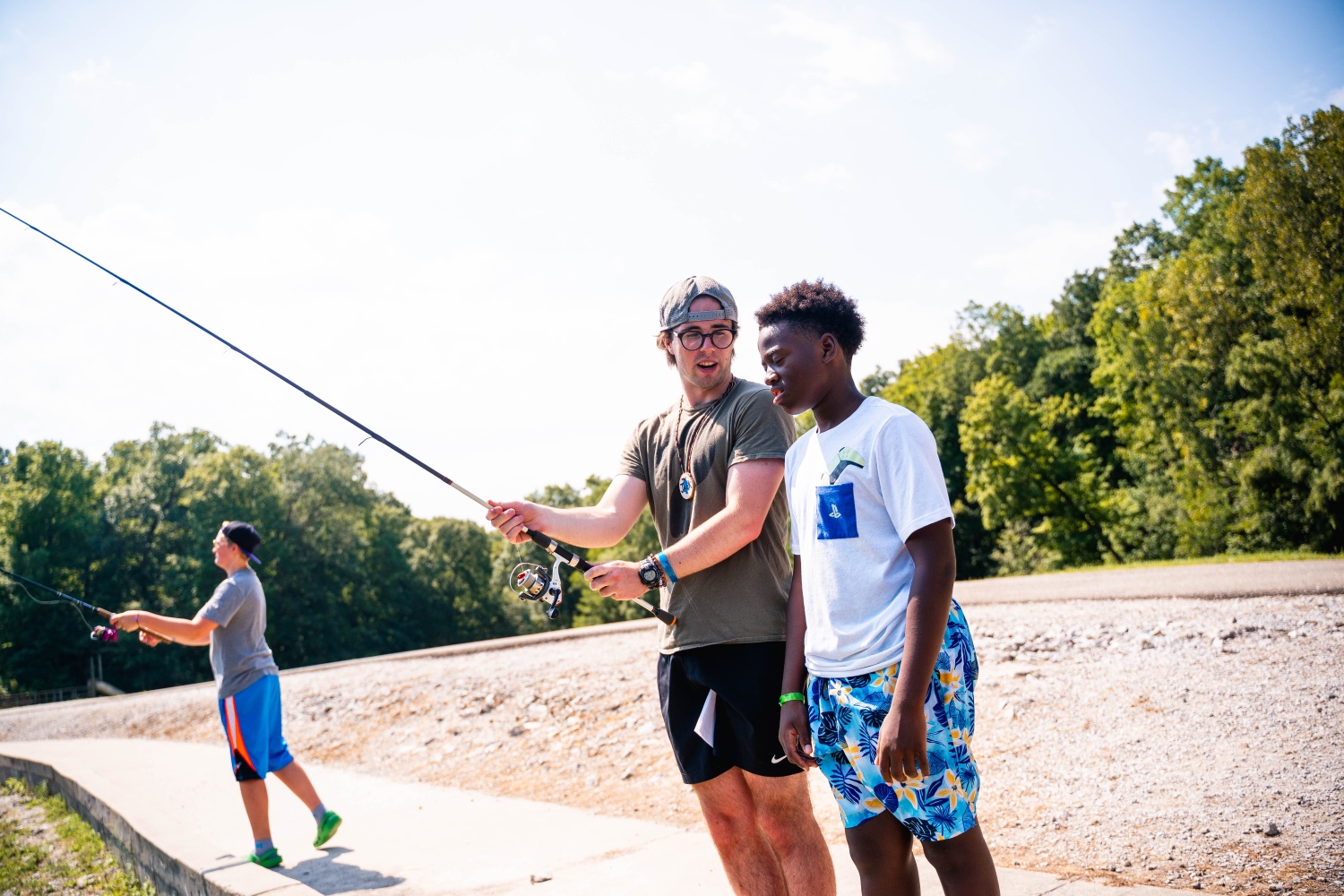 In Part II of this landmark series, Dr. Thompson discusses how rituals feed boys' need for social connection; how unstructured free play nurtures healthy risk-taking; and how the competitive wiring of boys tempts them to compete. The “boy code” may mislead boys into believing they need to hide their emotions and win their masculinity through tests, but staff can lead boys into a healthier self-concept.
In Part II of this landmark series, Dr. Thompson discusses how rituals feed boys' need for social connection; how unstructured free play nurtures healthy risk-taking; and how the competitive wiring of boys tempts them to compete. The “boy code” may mislead boys into believing they need to hide their emotions and win their masculinity through tests, but staff can lead boys into a healthier self-concept.
Christian Perspectives, Part I
Inspired Leadership from the Old Testament
James Cleland
 The stories and sayings of Noah, Joseph, Joshua, Ruth and Nehemiah are among those featured in this heartfelt module that teaches key lessons in leadership and child development. Staff will find inspiration for devotionals, learn strategies for managing behavior, understand new ways to apply biblical lessons. James highlights leadership-by-example, righteousness, kindness and grace.
The stories and sayings of Noah, Joseph, Joshua, Ruth and Nehemiah are among those featured in this heartfelt module that teaches key lessons in leadership and child development. Staff will find inspiration for devotionals, learn strategies for managing behavior, understand new ways to apply biblical lessons. James highlights leadership-by-example, righteousness, kindness and grace.
Christian Perspectives, Part II
Jesus as a Model for Love and Compassion
James Cleland
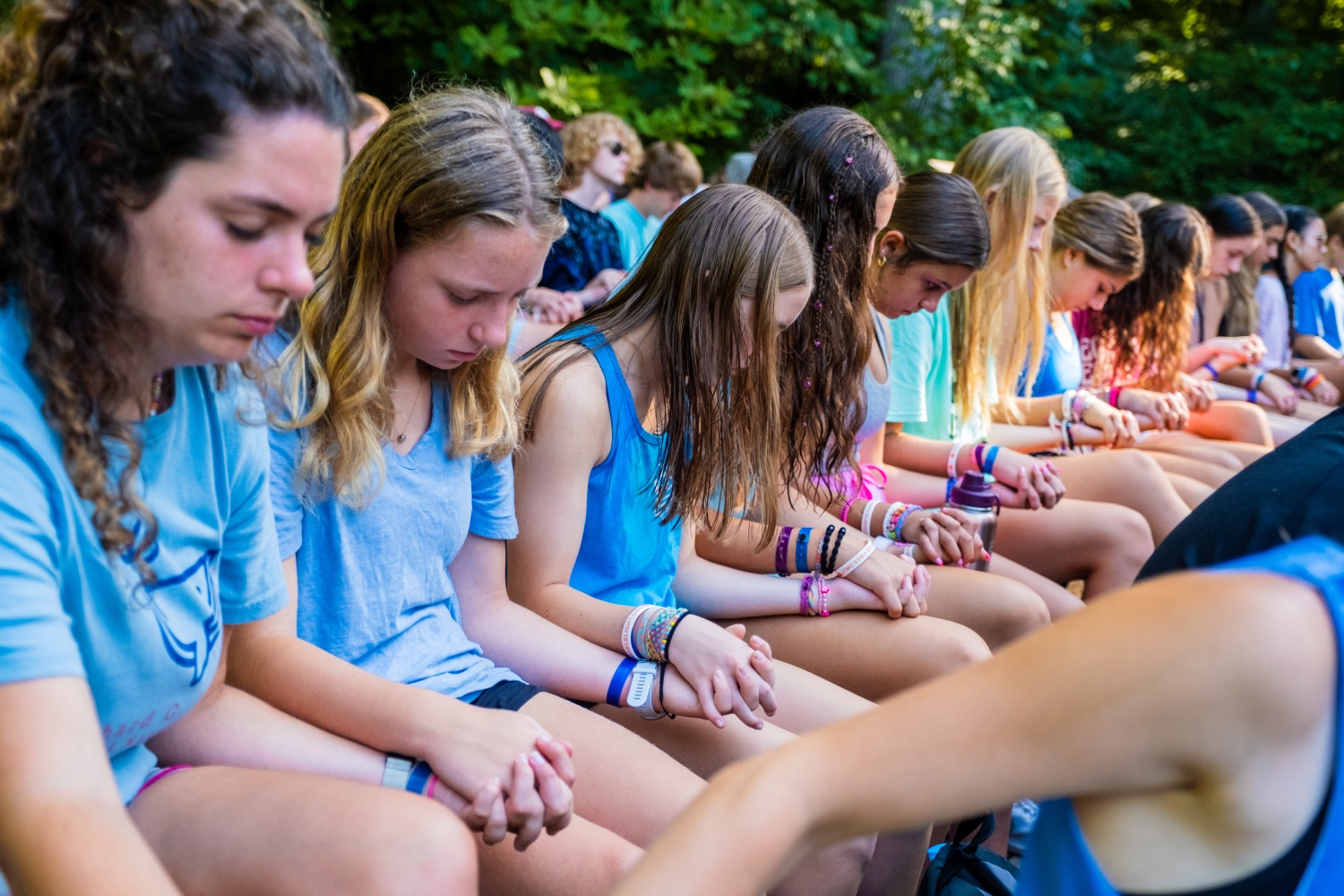 Principles of servant leadership, meeting the physical needs of youth, encouraging them to be forgiving and Christ-like all come alive in this faithful module. With a focus on Jesus as “Wonderful Counselor,” staff will learn fresh approaches to teaching timeless lessons from the New Testament. A special emphasis on professional boundaries helps staff instruct with discretion.
Principles of servant leadership, meeting the physical needs of youth, encouraging them to be forgiving and Christ-like all come alive in this faithful module. With a focus on Jesus as “Wonderful Counselor,” staff will learn fresh approaches to teaching timeless lessons from the New Testament. A special emphasis on professional boundaries helps staff instruct with discretion.
Classic Problem Solving
Using Options and Evaluation to Reach Group Consensus
Dr. Chris Thurber
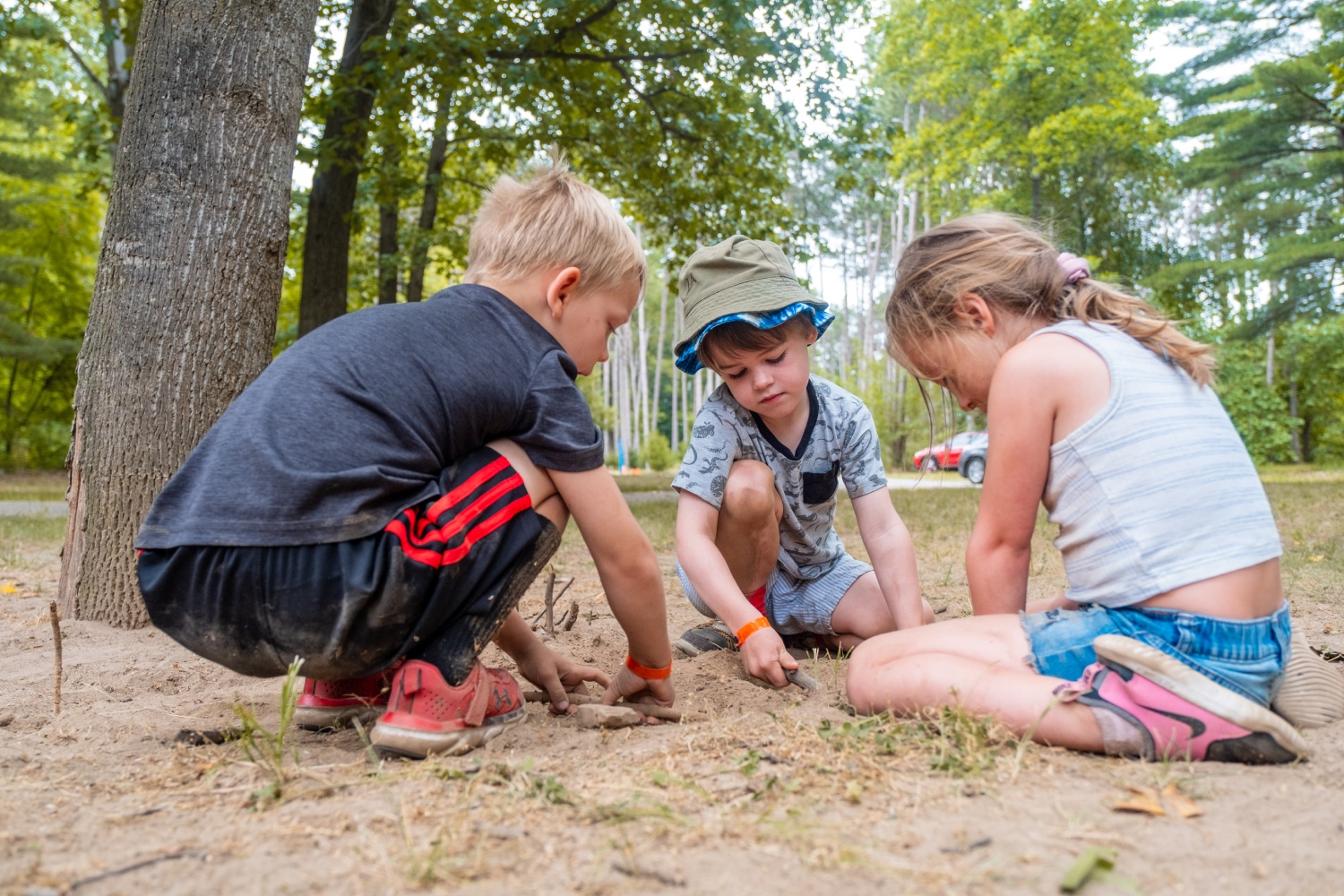 Classic problem solving is a powerful way to use the group's wisdom to find a solution that works for everyone. In this insightful module, you'll watch elegant, step-by-step examples of camp staff sitting down with real campers to solve common problems. No leader should be without this fundamental conflict resolution tool-kit. Far superior to blaming or shaming.
Classic problem solving is a powerful way to use the group's wisdom to find a solution that works for everyone. In this insightful module, you'll watch elegant, step-by-step examples of camp staff sitting down with real campers to solve common problems. No leader should be without this fundamental conflict resolution tool-kit. Far superior to blaming or shaming.
Cracking Kids’ Secret Code
Listening Sensitively to Forge Understanding
Maggie Lewicki
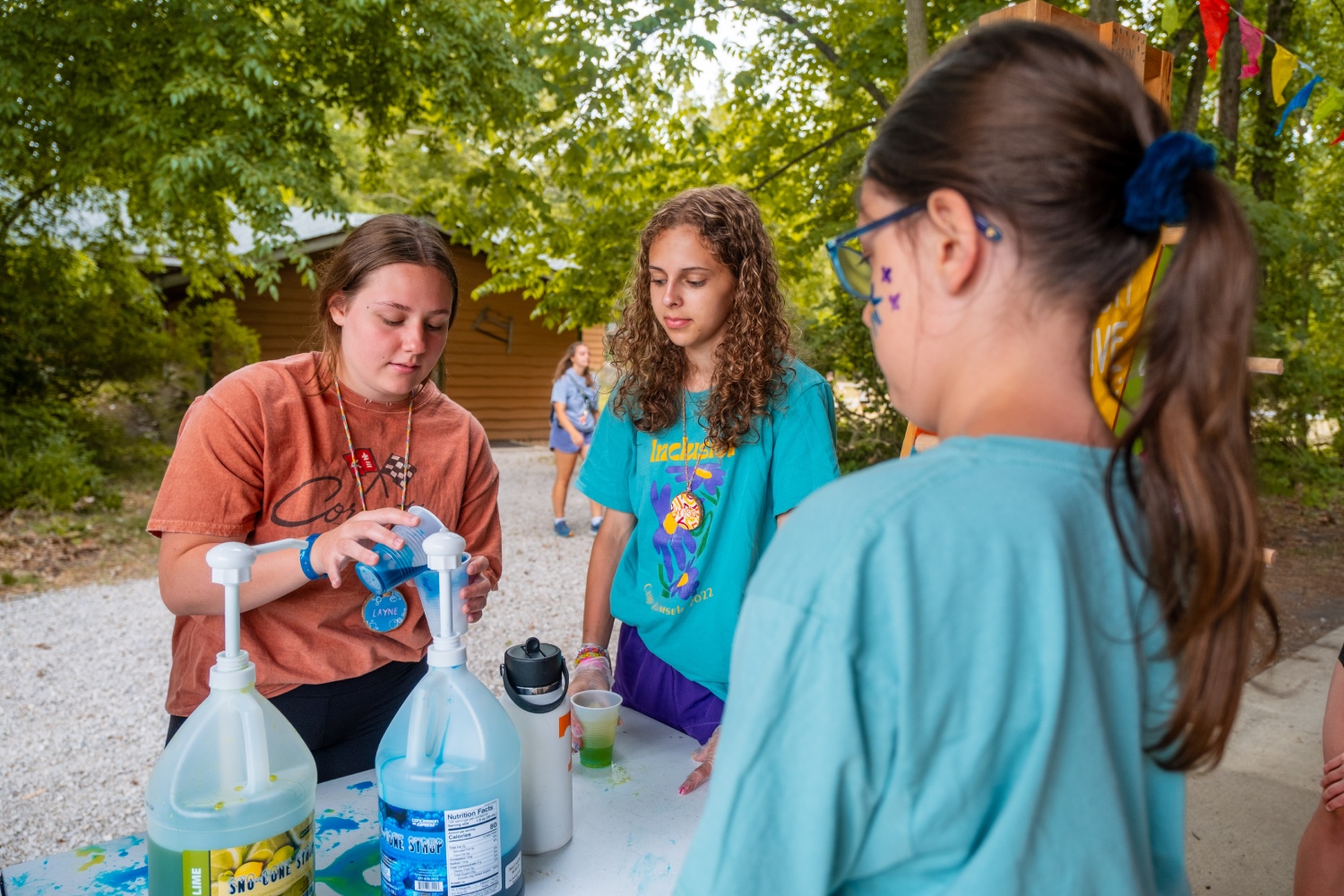 All young people speak two languages: There’s what they say… and then there’s what they mean. Can you hear the difference? Savvy youth leaders learn to listen carefully to the subtext of speech so they can respond with genuine empathy and build the relationships that increase compliance. Watch these examples and learn how to push your listening and leadership skills to an insightful new level.
All young people speak two languages: There’s what they say… and then there’s what they mean. Can you hear the difference? Savvy youth leaders learn to listen carefully to the subtext of speech so they can respond with genuine empathy and build the relationships that increase compliance. Watch these examples and learn how to push your listening and leadership skills to an insightful new level.
Cross-Cultural Agility
How to Shed Your Earth Suit
Niambi Jaha-Echols
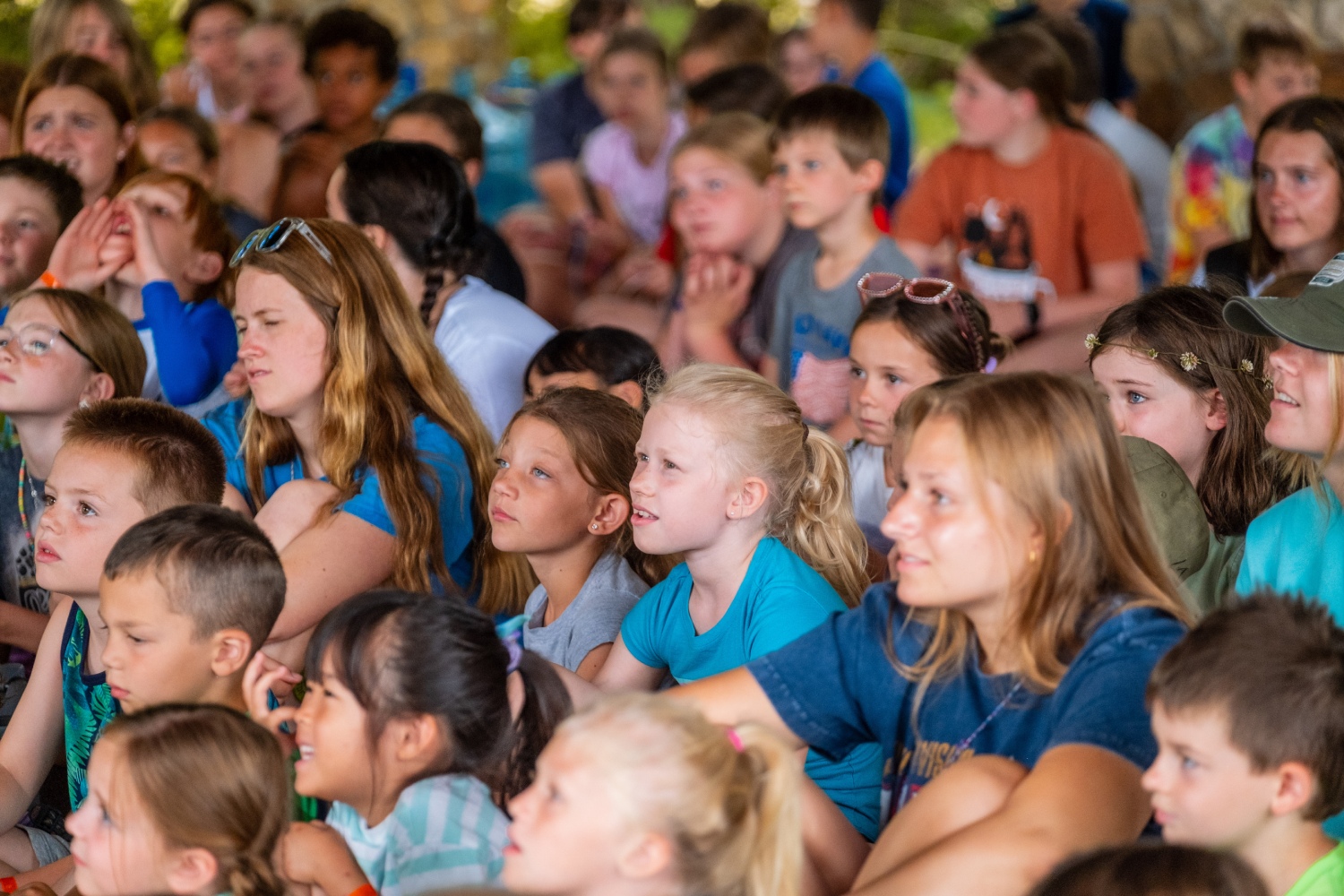 "Diversity is who you invite to the party; inclusion is who you ask to dance; but cross-cultural agility is when groups share their native dances with each other." So says Niambi. This provocative video is an in-your-face dare to elevate superficial diversity and inclusion to the virtuous plane of cross-cultural agility. Vulnerability and sharing are the keys to this peaceful, multicultural kingdom.
"Diversity is who you invite to the party; inclusion is who you ask to dance; but cross-cultural agility is when groups share their native dances with each other." So says Niambi. This provocative video is an in-your-face dare to elevate superficial diversity and inclusion to the virtuous plane of cross-cultural agility. Vulnerability and sharing are the keys to this peaceful, multicultural kingdom.
Cultural Competence in Youth Programs, Part I
How to Boost Your Multicultural IQ
Kevin Gordon
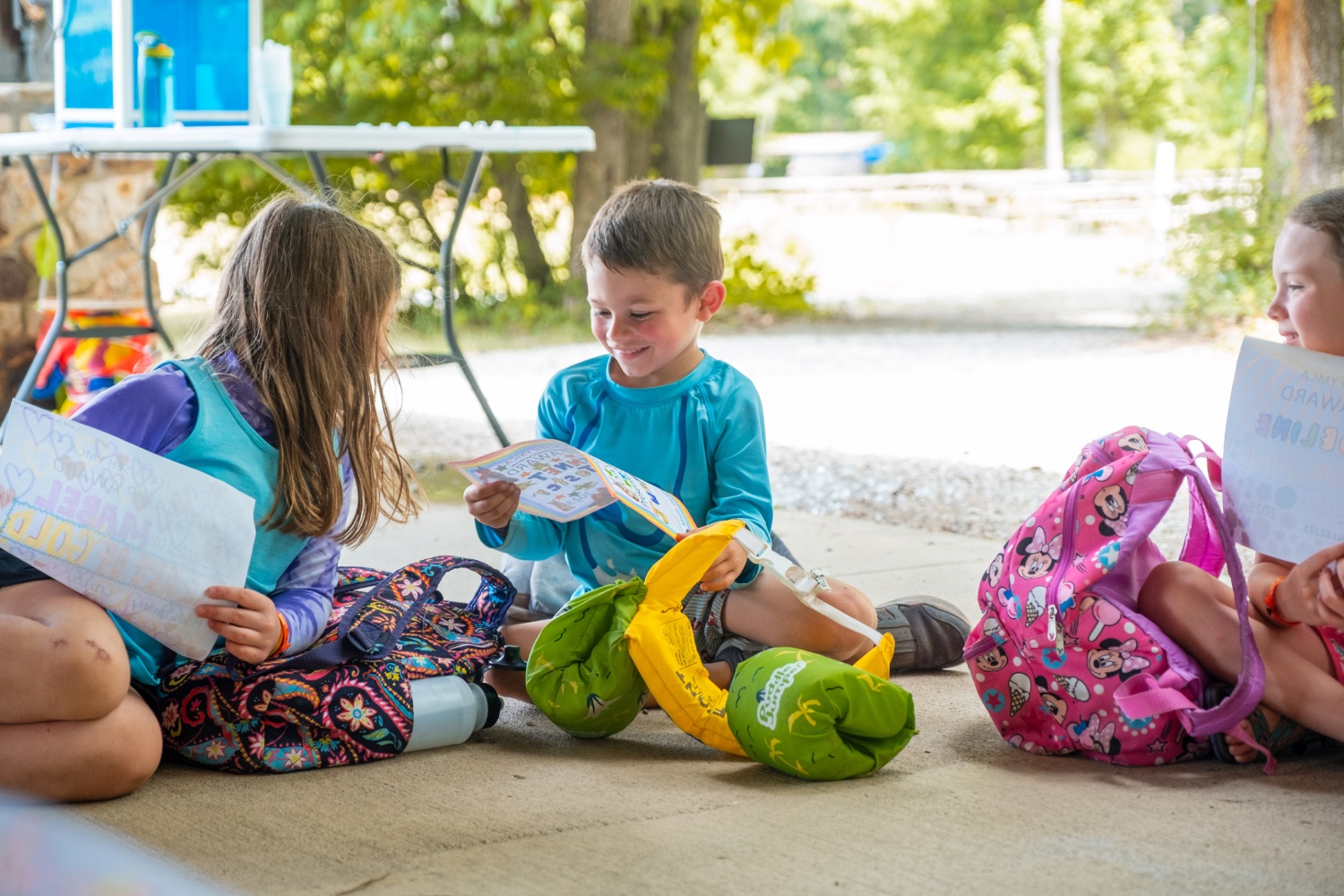 Instead of pretending to be “color blind,” this module encourages youth leaders to notice and appreciate the wonderful cultural differences among people. Unintentional segregation, racist misunderstandings, unfulfilled potential, and missed friendships can all be avoided by suspending stereotypes, admitting ignorance, and listening with an open mind.
Instead of pretending to be “color blind,” this module encourages youth leaders to notice and appreciate the wonderful cultural differences among people. Unintentional segregation, racist misunderstandings, unfulfilled potential, and missed friendships can all be avoided by suspending stereotypes, admitting ignorance, and listening with an open mind.
Cultural Competence in Youth Programs, Part II
Combating Racism with Understanding
Kevin Gordon
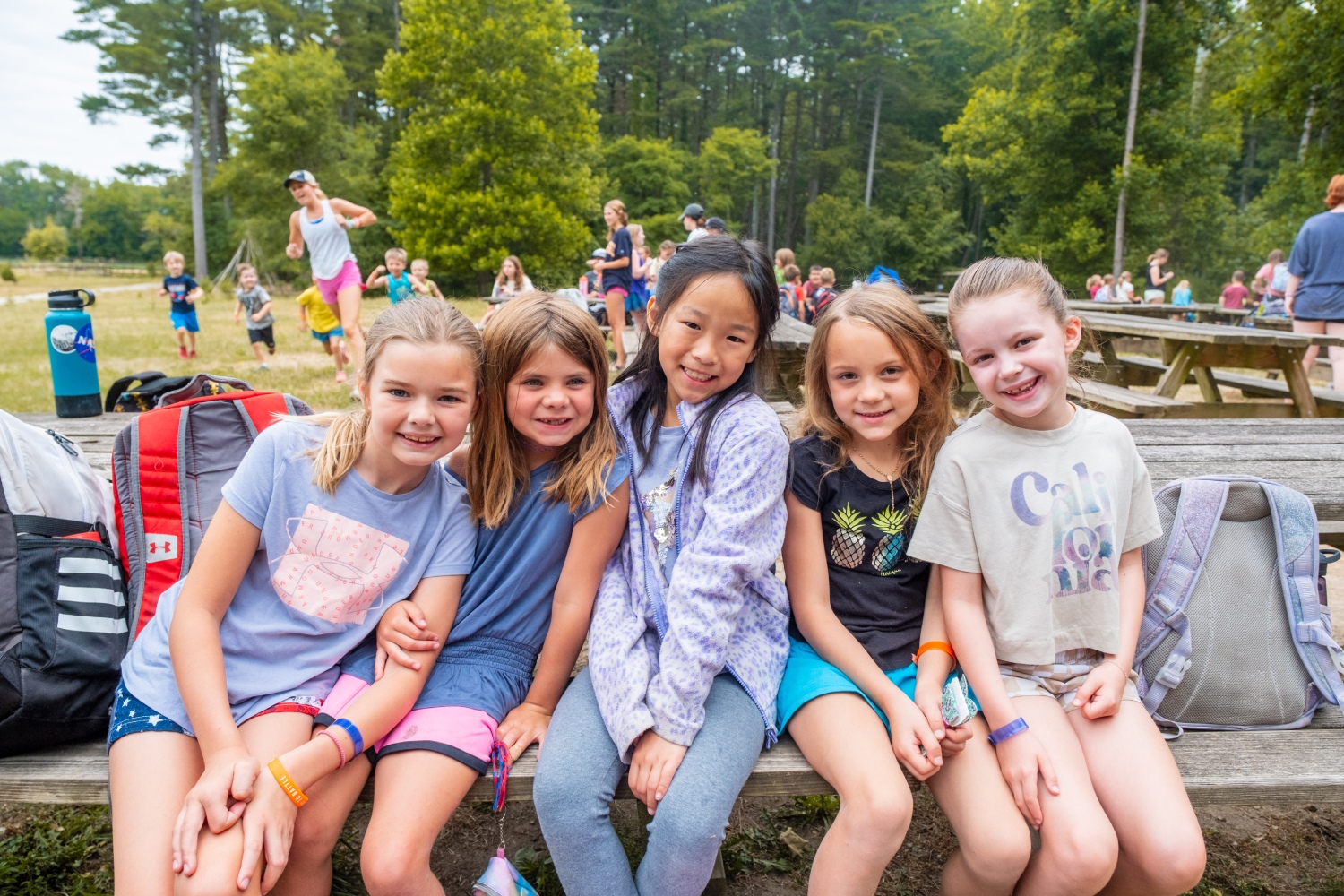 Youth programs worldwide serve increasingly diverse groups. However, if leaders are not intentional about how they serve those groups, simply mixing ethnicities, cultures, religions can do more harm than good. This fascinating module shows how to prevent clumping, prejudice and racial aggression by engineering blended groups that listen to and appreciate their strengths, traditions and opinions.
Youth programs worldwide serve increasingly diverse groups. However, if leaders are not intentional about how they serve those groups, simply mixing ethnicities, cultures, religions can do more harm than good. This fascinating module shows how to prevent clumping, prejudice and racial aggression by engineering blended groups that listen to and appreciate their strengths, traditions and opinions.
Day Camp Dynamics, Part I
Drop Off, Parent Communication, and Pick-Up
Dan Neal
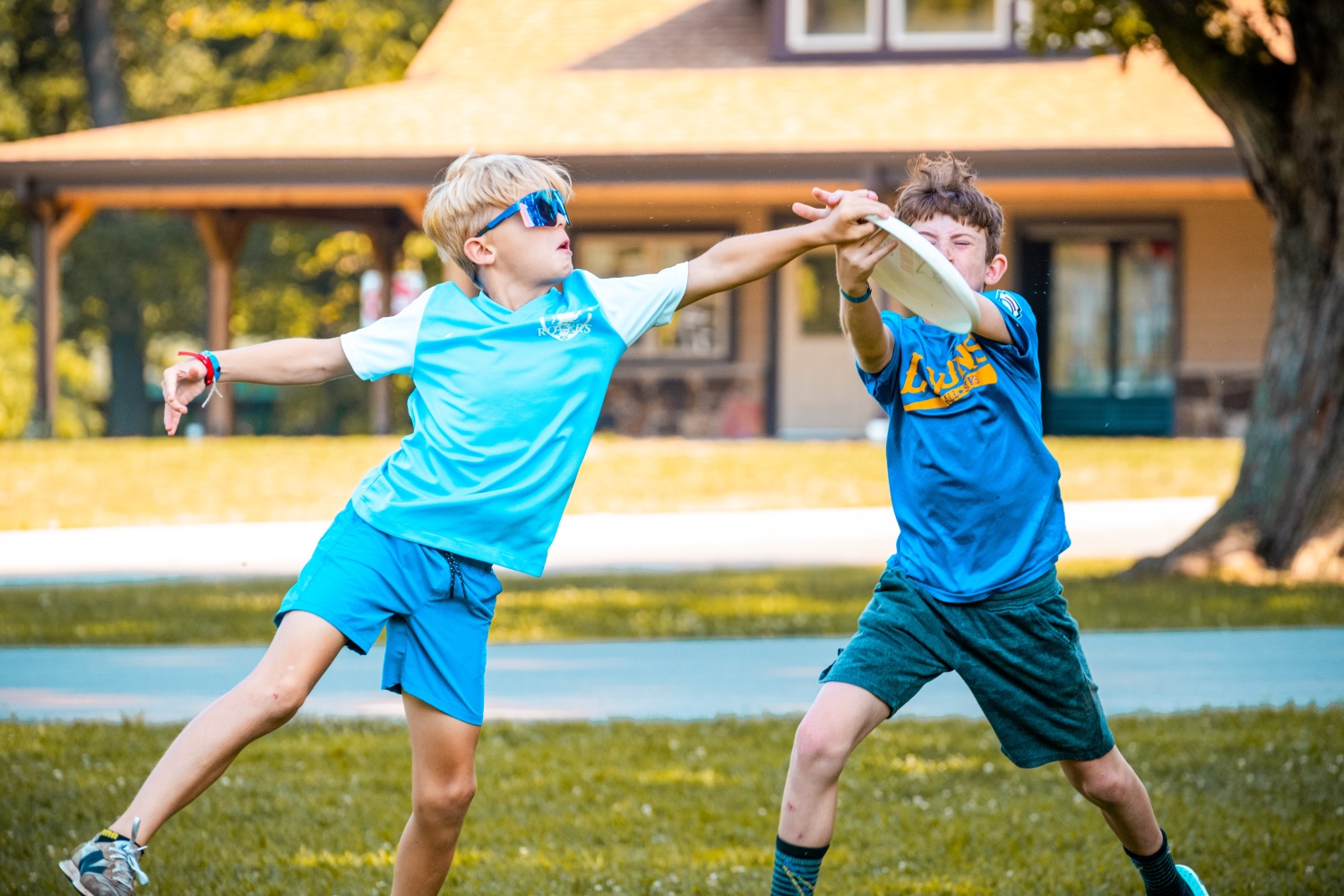 Experienced day camp director Dan Neal dives into the fundamentals of working at a day camp in this dynamic series. Part I showcases the logistics and opportunities of drop-offs and pick-ups. Beyond simple accountability, these transition times are opportunities for building relationships, clarifying misunderstandings and partnering with parents to maximize the benefits of camp.
Experienced day camp director Dan Neal dives into the fundamentals of working at a day camp in this dynamic series. Part I showcases the logistics and opportunities of drop-offs and pick-ups. Beyond simple accountability, these transition times are opportunities for building relationships, clarifying misunderstandings and partnering with parents to maximize the benefits of camp.
Day Camp Dynamics, Part II
Off-Site Trips and Group Management Tips
Dan Neal
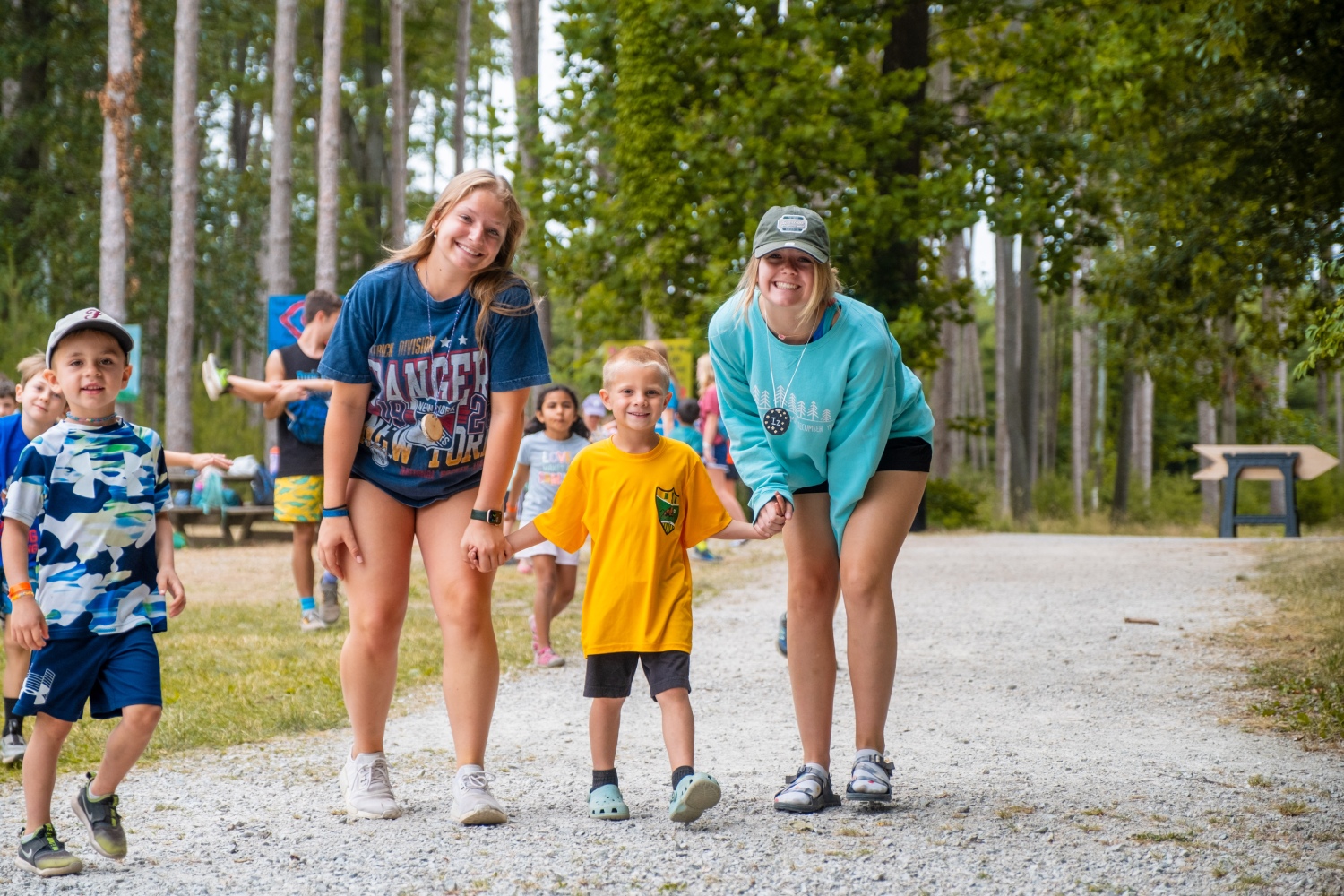 Once you've mastered the finer points of drop-offs and pick-ups in Part I of this series, it's time to pack up and leave camp! Part II illustrates advanced group management techniques with young children and the five best practices for safely transporting groups to and from an off-site location, such as the beach. A must-see for all dedicated day camp staff who organize field trips and excursions.
Once you've mastered the finer points of drop-offs and pick-ups in Part I of this series, it's time to pack up and leave camp! Part II illustrates advanced group management techniques with young children and the five best practices for safely transporting groups to and from an off-site location, such as the beach. A must-see for all dedicated day camp staff who organize field trips and excursions.
Day Camp Dynamics, Part III
Transition and Adjustment
Steve Maguire
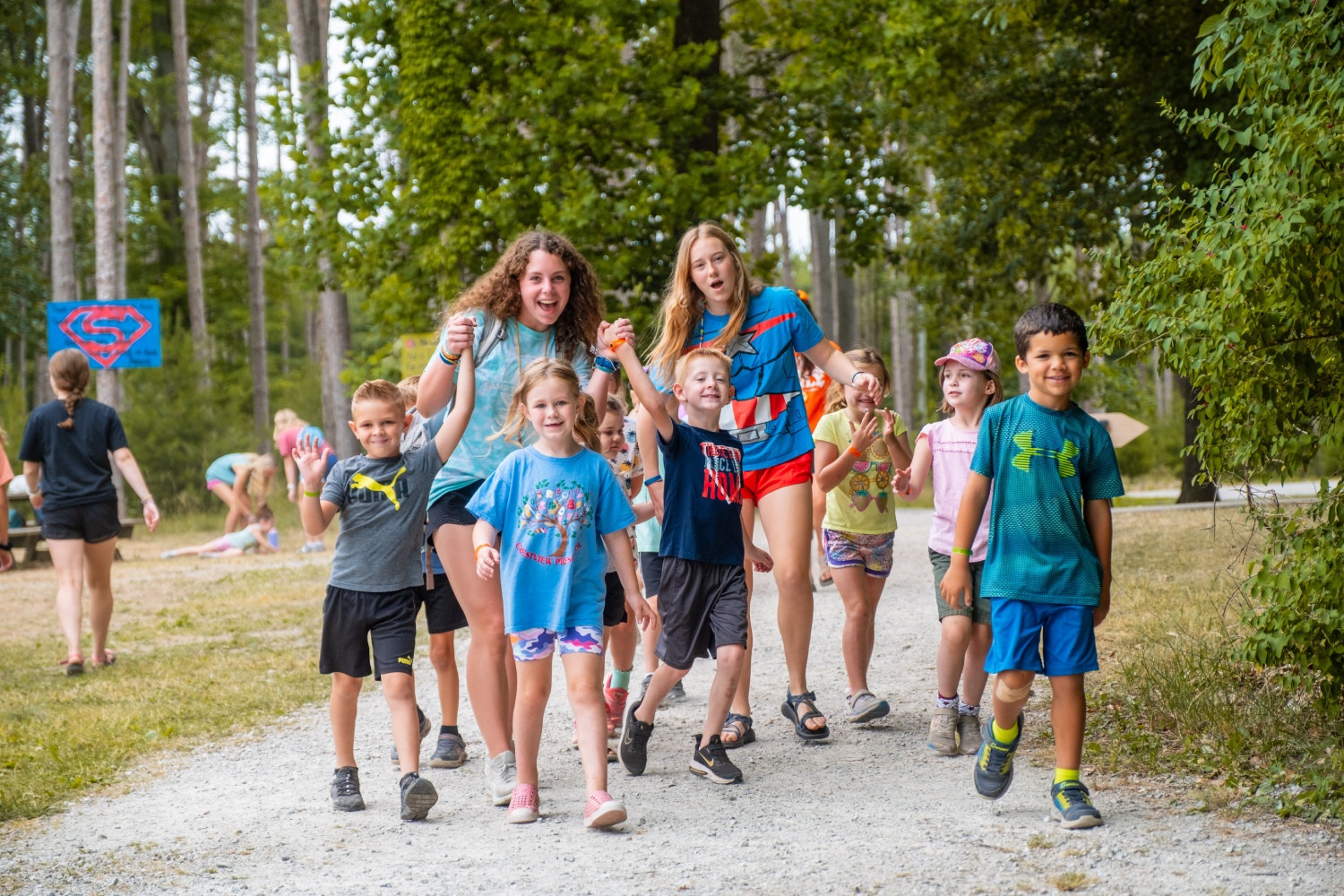 Dropping their son or daughter off at day camp for the first time can be hard for any parent, but the wise approaches in this module will help reassure even the most anxious moms and dads. Part III of this outstanding three-part series is loaded with tips that promote positive adjustment for children and families, including pre-season contact, opening-day welcomes and warm interactions.
Dropping their son or daughter off at day camp for the first time can be hard for any parent, but the wise approaches in this module will help reassure even the most anxious moms and dads. Part III of this outstanding three-part series is loaded with tips that promote positive adjustment for children and families, including pre-season contact, opening-day welcomes and warm interactions.
Gender and Sexuality in Youth Programs
Aligning Respect, Kindness, and Inclusiveness
Scott Arizala
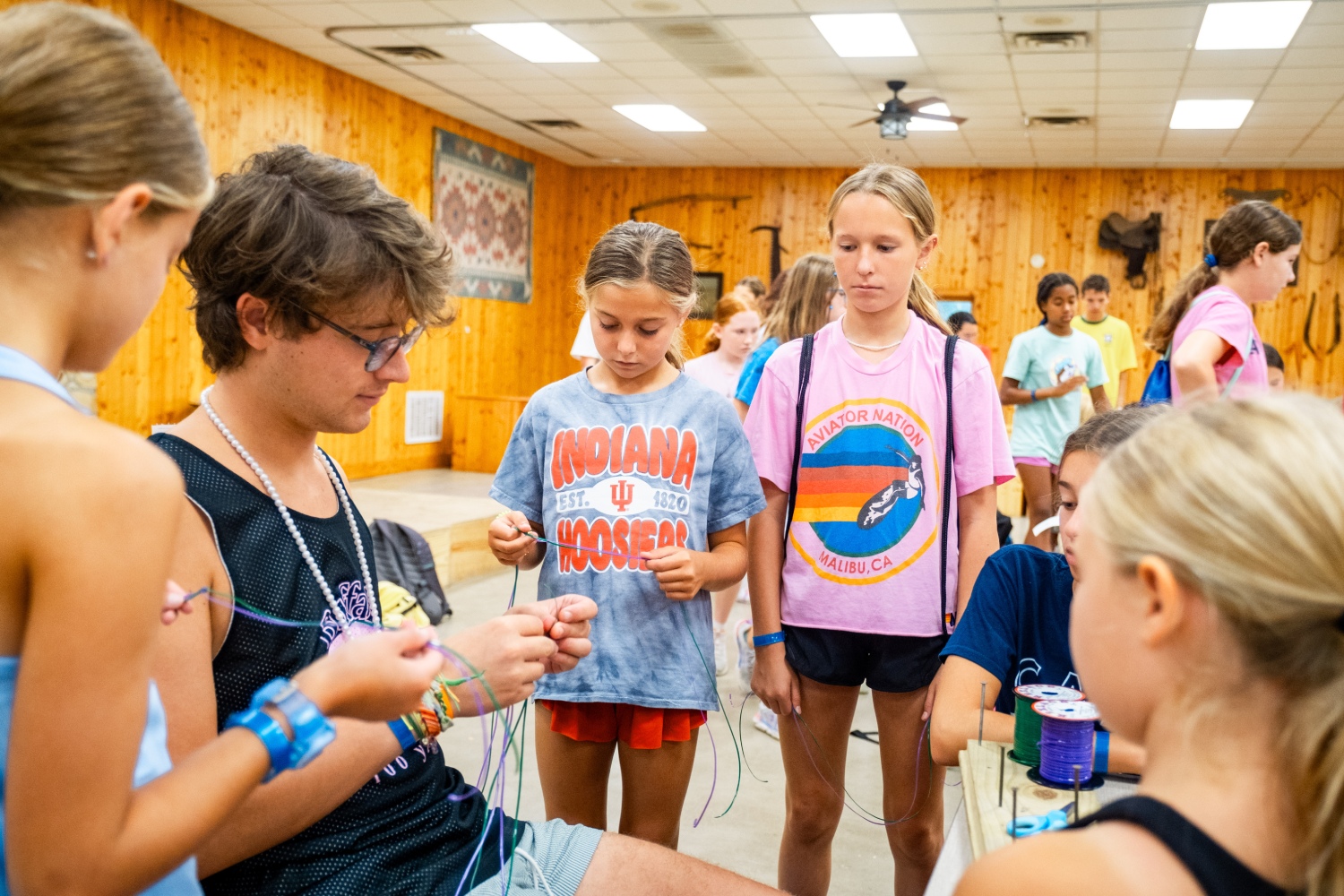 The male-female distinction used to be a social staple. Assigned at birth, gender was a constant—if sometimes misguided—hallmark of identity. Today, we are beginning to understand the complex biopsychosocial interactions between chromosomal sex and gender identity. This sensitively co-hosted module will equip all youth-serving organizations to welcome their first transgender participants.
The male-female distinction used to be a social staple. Assigned at birth, gender was a constant—if sometimes misguided—hallmark of identity. Today, we are beginning to understand the complex biopsychosocial interactions between chromosomal sex and gender identity. This sensitively co-hosted module will equip all youth-serving organizations to welcome their first transgender participants.
Get the Best and Forget the Rest
Nurturing Positive Youth Behavior
Scott Arizala
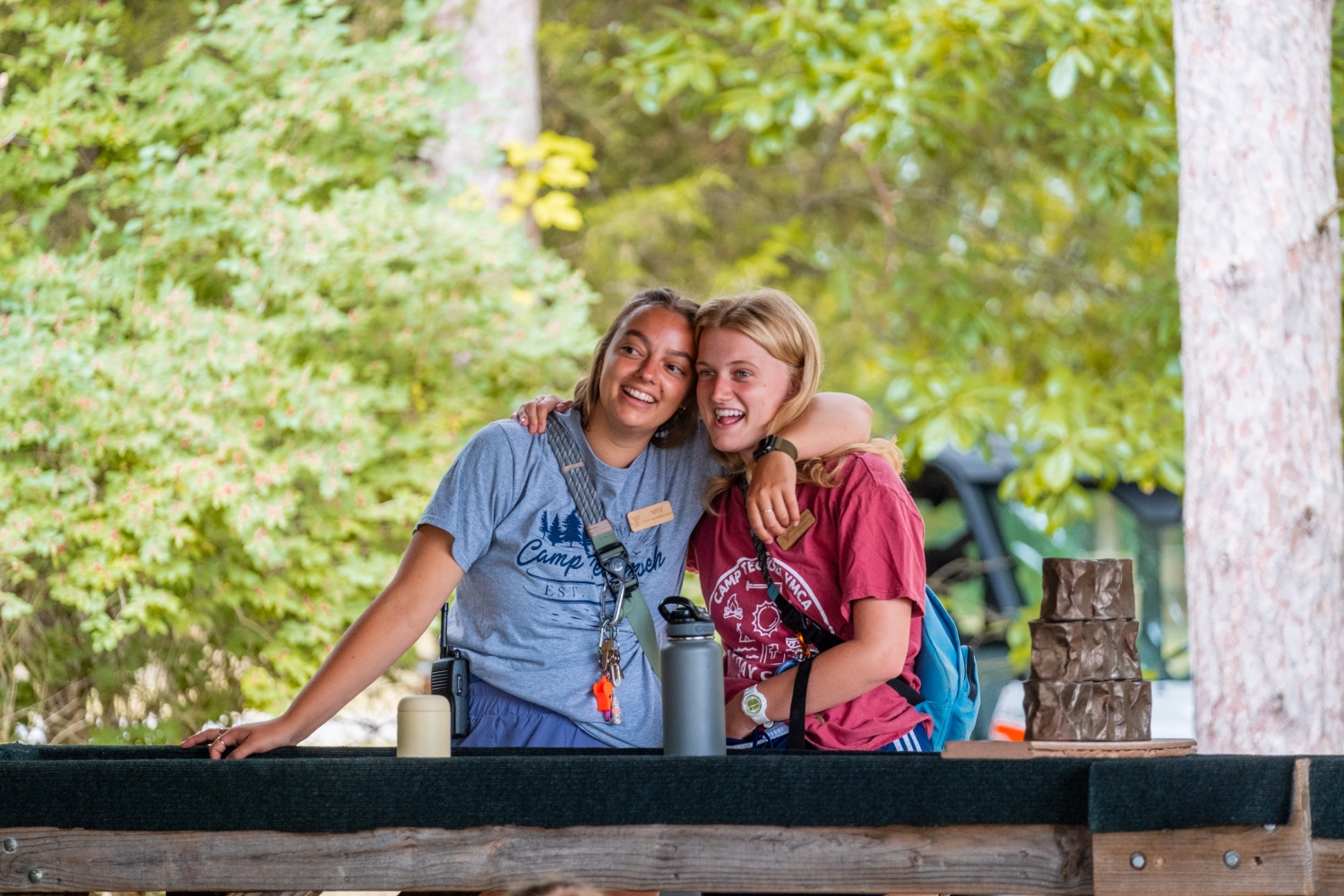 A unitary focus on negative behaviors can lead to a skewed perspective on development and, ultimately, staff burnout. Here are five practices—noticing, praising, redirecting, scaffolding and taking action—that bring out the best in everyone. Start fueling a cycle of positive behavior in the young people you serve by tapping into all the wonderful things they are already doing well.
A unitary focus on negative behaviors can lead to a skewed perspective on development and, ultimately, staff burnout. Here are five practices—noticing, praising, redirecting, scaffolding and taking action—that bring out the best in everyone. Start fueling a cycle of positive behavior in the young people you serve by tapping into all the wonderful things they are already doing well.
Girl Power
Guiding Principles of Strong Female Leadership
Niambi Jaha-Echols
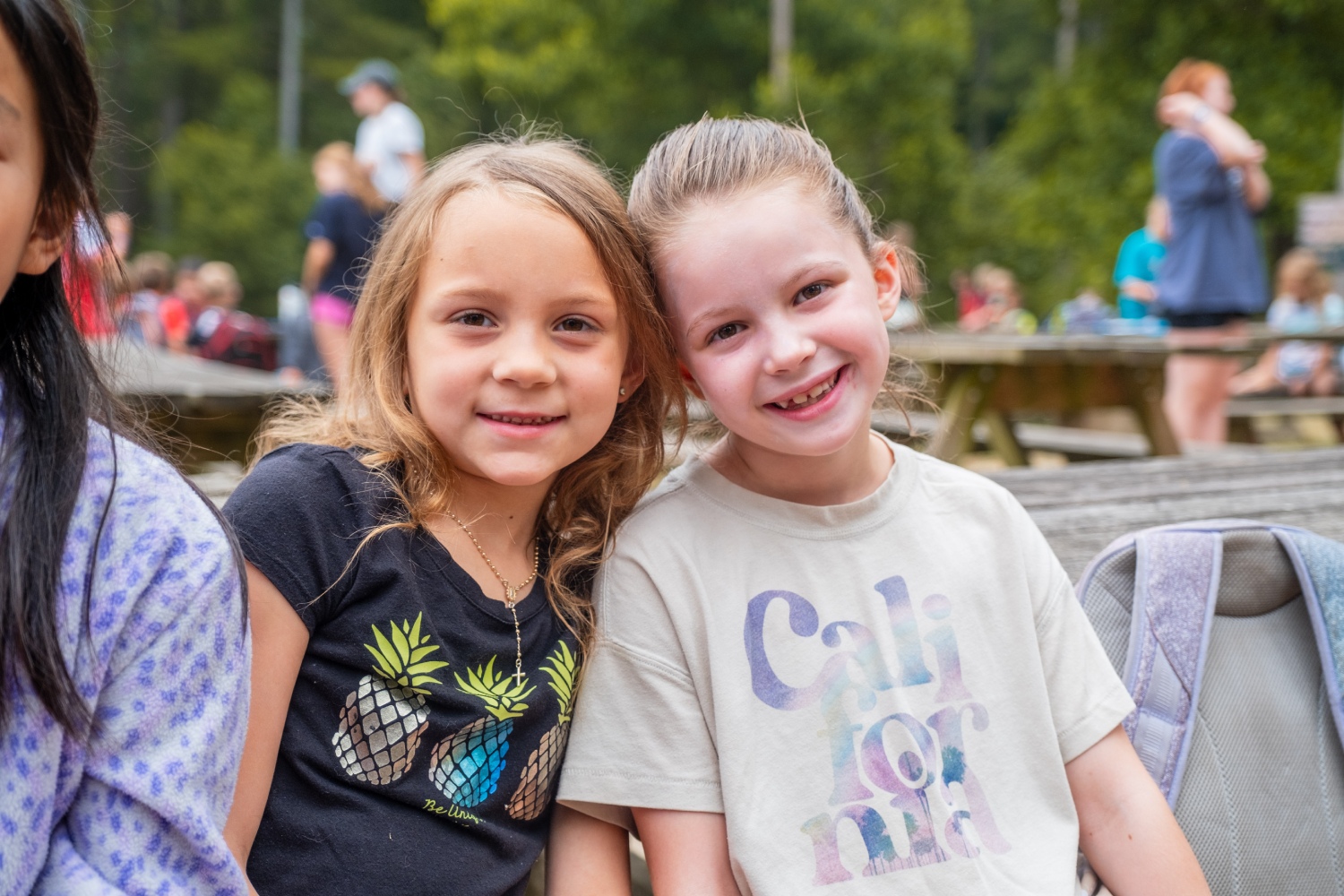 Girls in contemporary Western cultures are subtly socialized to stifle their authentic voices. This illuminating module challenges the notion that girls should be passive and demure. See how healthy female power comes from a combination of strong female role models, real decision-making power, encouragement to share opinions, and opportunities to lead. (co-written by Kevin Gordon)
Girls in contemporary Western cultures are subtly socialized to stifle their authentic voices. This illuminating module challenges the notion that girls should be passive and demure. See how healthy female power comes from a combination of strong female role models, real decision-making power, encouragement to share opinions, and opportunities to lead. (co-written by Kevin Gordon)
Jewish Perspectives on Child-Staff Relationships, Part I
Youth Development Lessons from My Dog
Dr. Caren Baruch-Feldman
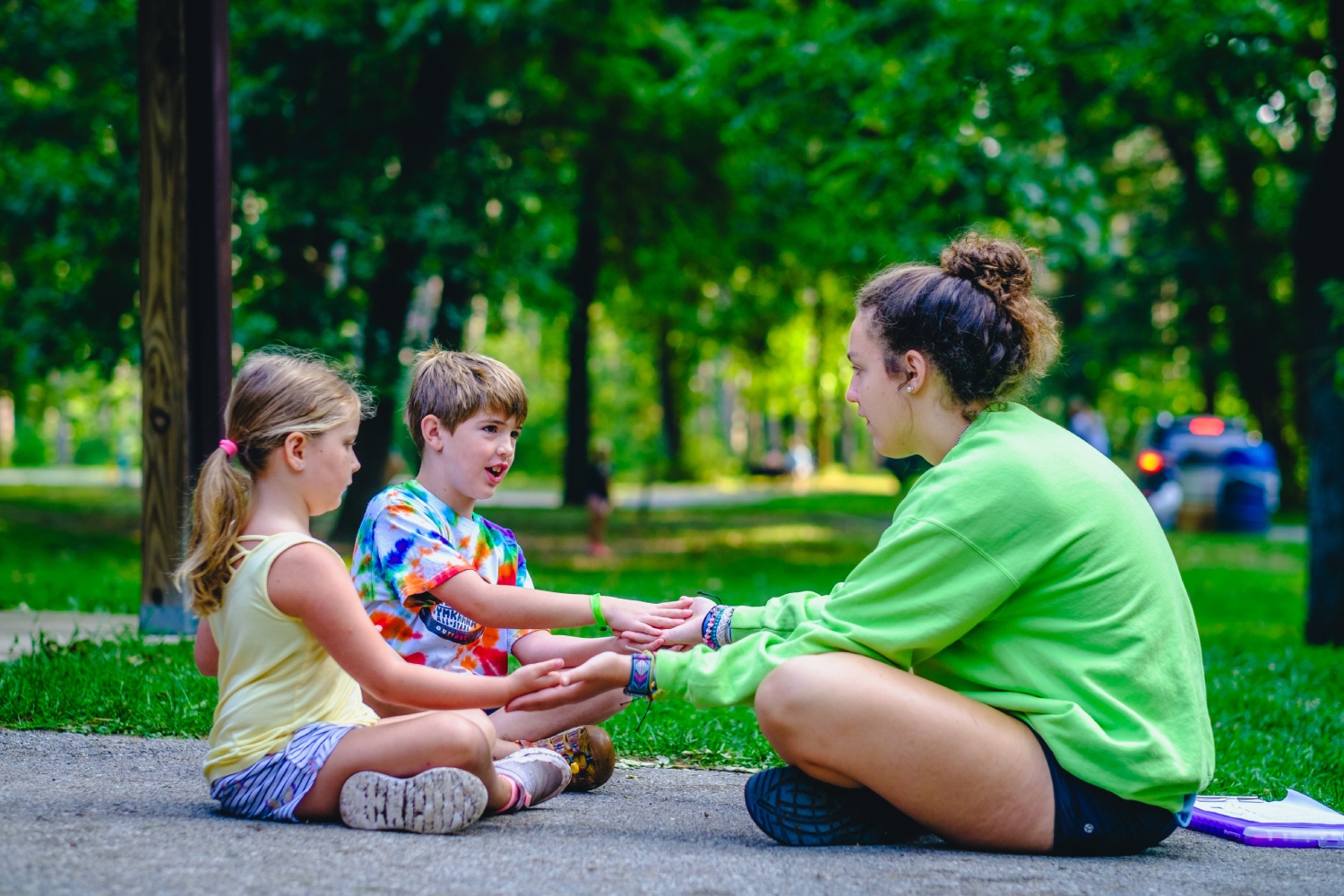 The Sages of the Talmud say that if we did not have the Torah to guide us, we would be able to learn how to behave from studying the animals. In this original and inspiring module, psychologist Dr Caren Baruch-Feldman references both Jewish teachings and her faithful canine to show staff from all faith traditions how to nurture positive relationships, strive for consistency, and avoid power struggles.
The Sages of the Talmud say that if we did not have the Torah to guide us, we would be able to learn how to behave from studying the animals. In this original and inspiring module, psychologist Dr Caren Baruch-Feldman references both Jewish teachings and her faithful canine to show staff from all faith traditions how to nurture positive relationships, strive for consistency, and avoid power struggles.
Jewish Perspectives on Child-Staff Relationships, Part II
Lessons from My Dog on Temperament, Acceptance and Being Proactive
Dr. Caren Baruch-Feldman
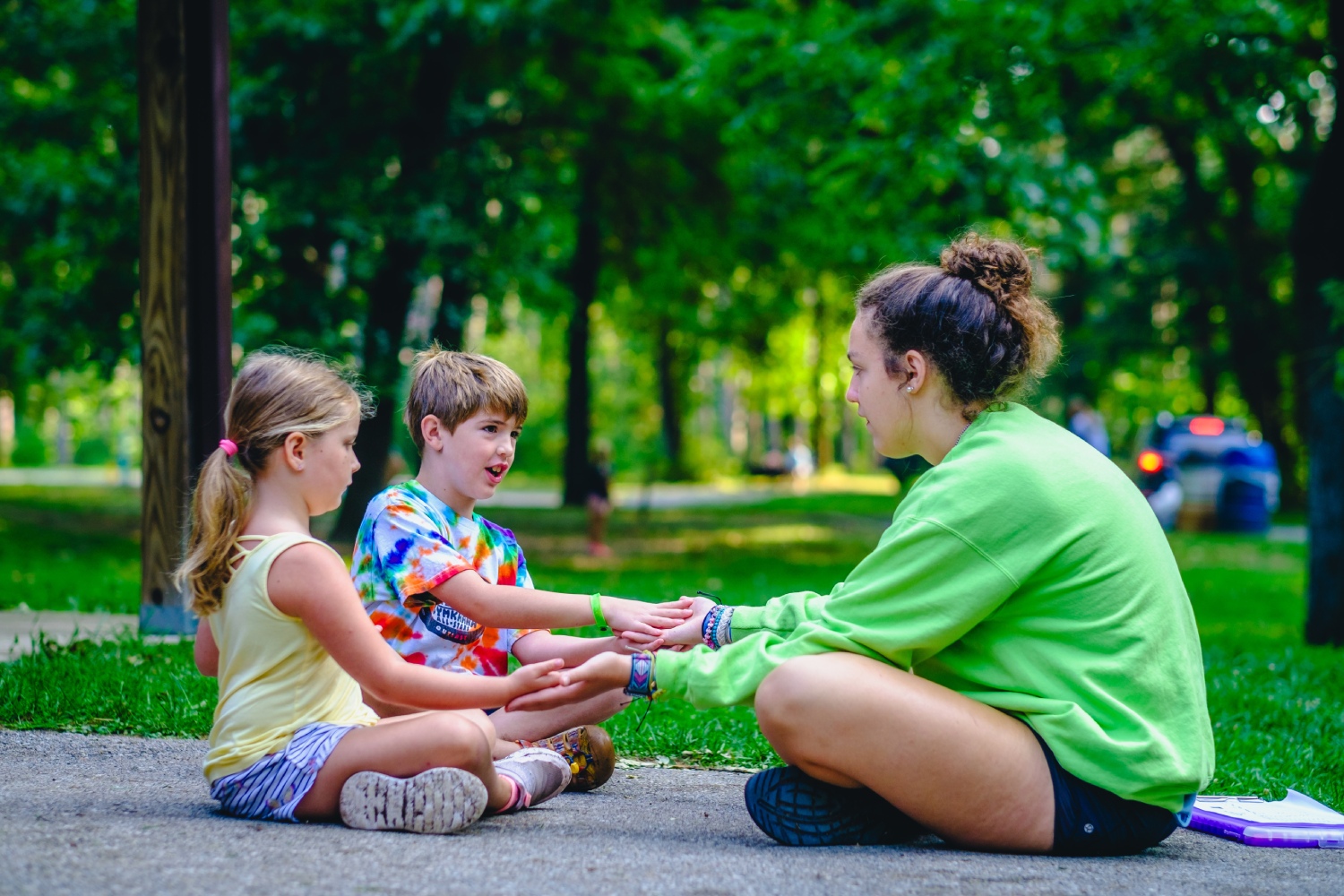 Building on the sage advice in Part I, this module references ancient Jewish teachings to explain how temperament affects behavior, how being proactive promotes success, how acceptance of differences is socially healthy and how personal renewal — especially forgiveness — is good for the soul and the organization you serve. A playful and insightful module that will leave you inspired… whatever your faith.
Building on the sage advice in Part I, this module references ancient Jewish teachings to explain how temperament affects behavior, how being proactive promotes success, how acceptance of differences is socially healthy and how personal renewal — especially forgiveness — is good for the soul and the organization you serve. A playful and insightful module that will leave you inspired… whatever your faith.
Jewish Perspectives on Staff Happiness and Stamina
Staying Internally Motivated All Summer Long
Dr. Caren Baruch-Feldman
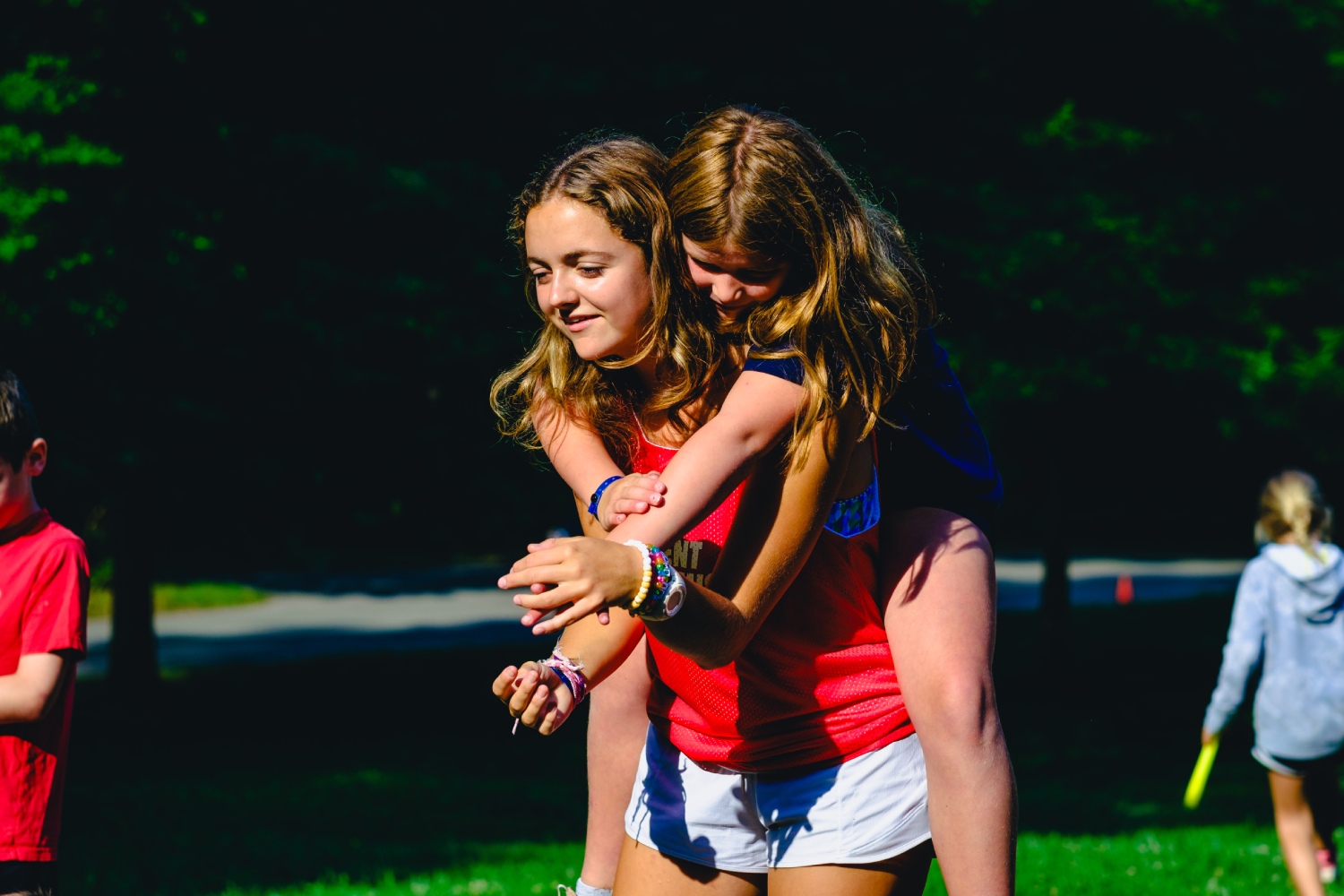 Judaism emphasizes positive thinking as a key to positive outcomes. Jewish tradition also underscores how positive thinking combines with kind actions to create positive experiences and authentic happiness. In this module, Dr. Feldman shares five healthy ways to think and act that will enhance staff motivation all summer long. Learn to feel grateful, think positively, and see obstacles as opportunities.
Judaism emphasizes positive thinking as a key to positive outcomes. Jewish tradition also underscores how positive thinking combines with kind actions to create positive experiences and authentic happiness. In this module, Dr. Feldman shares five healthy ways to think and act that will enhance staff motivation all summer long. Learn to feel grateful, think positively, and see obstacles as opportunities.
Leading with Control and Warmth
The Authoritative Balance of Power
David Conley
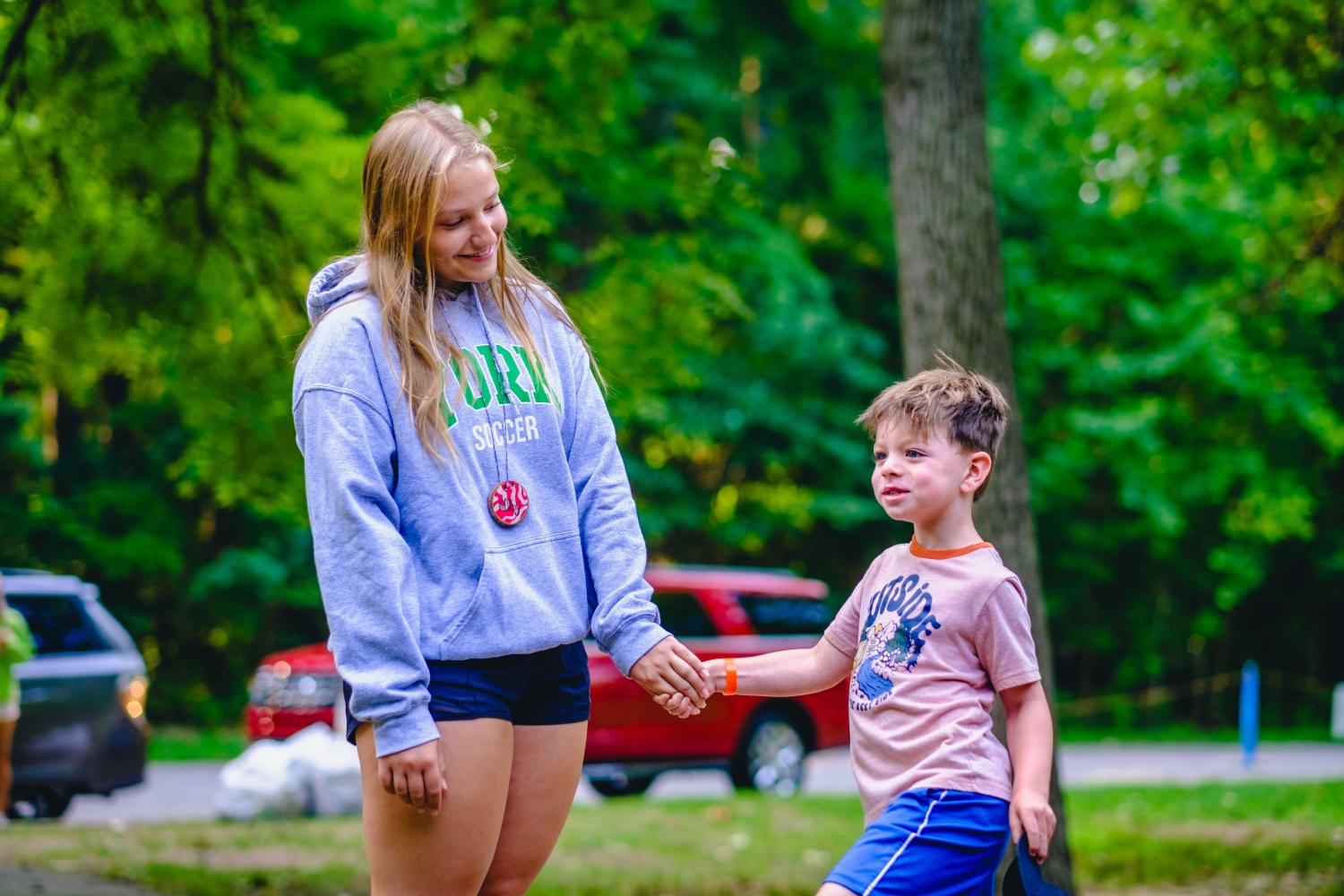 Drawing on Baumrind's landmark research, this foundational module brings the four-quadrant model of leadership and parenting to life. Witness the harmful effects of [high control + low warmth] or [low control + low warmth] or [low control + high warmth]. The balanced approach of [high control + high warmth]-called authoritative-yields happy, compliant, and high-achieving youth.
Drawing on Baumrind's landmark research, this foundational module brings the four-quadrant model of leadership and parenting to life. Witness the harmful effects of [high control + low warmth] or [low control + low warmth] or [low control + high warmth]. The balanced approach of [high control + high warmth]-called authoritative-yields happy, compliant, and high-achieving youth.
No Losers
Achieving Mutual Victory in a Competitive World
David Conley
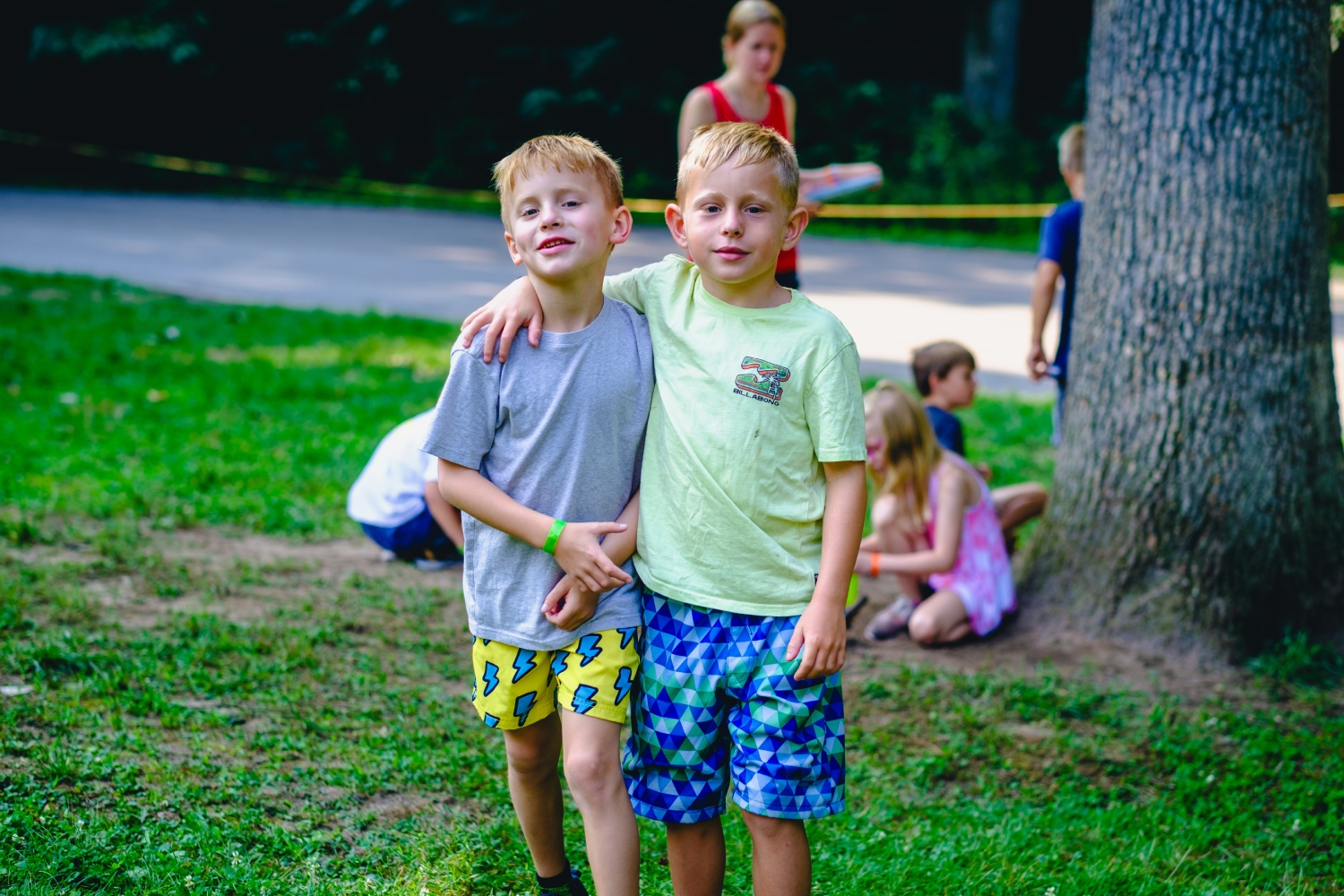 Conflict arises when two people want different things. But what if that zero-sum game were banished? This innovative module explains the paradigm of Mutual Victory, where each person’s worth is validated and each person’s needs are carefully considered. More than simple compromise, implementing Mutual Victory means everyone can achieve their goals through cooperation, respect, and innovation.
Conflict arises when two people want different things. But what if that zero-sum game were banished? This innovative module explains the paradigm of Mutual Victory, where each person’s worth is validated and each person’s needs are carefully considered. More than simple compromise, implementing Mutual Victory means everyone can achieve their goals through cooperation, respect, and innovation.
Non-Verbal Communication
Communication
Dr. Sarah Levin Allen
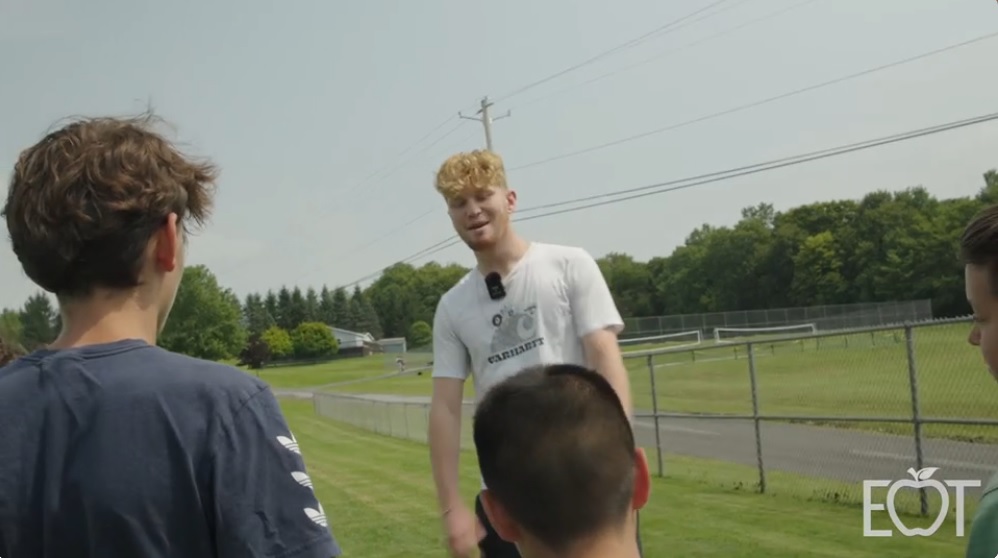 Children aren't our only camp clients. Directors and experienced staff know that partnerships with parents are an indispensable component of a successful season. In this entertaining, two-part module, you'll witness five categories of difficult parents along with realistic and clever ways to respond, all without compromising your campers' best interests. Part II: Bossy, Defiant, and Unhappy Parents.
Children aren't our only camp clients. Directors and experienced staff know that partnerships with parents are an indispensable component of a successful season. In this entertaining, two-part module, you'll witness five categories of difficult parents along with realistic and clever ways to respond, all without compromising your campers' best interests. Part II: Bossy, Defiant, and Unhappy Parents.
Personality Synergy
How Style Differences Can Boost Productivity
David Conley
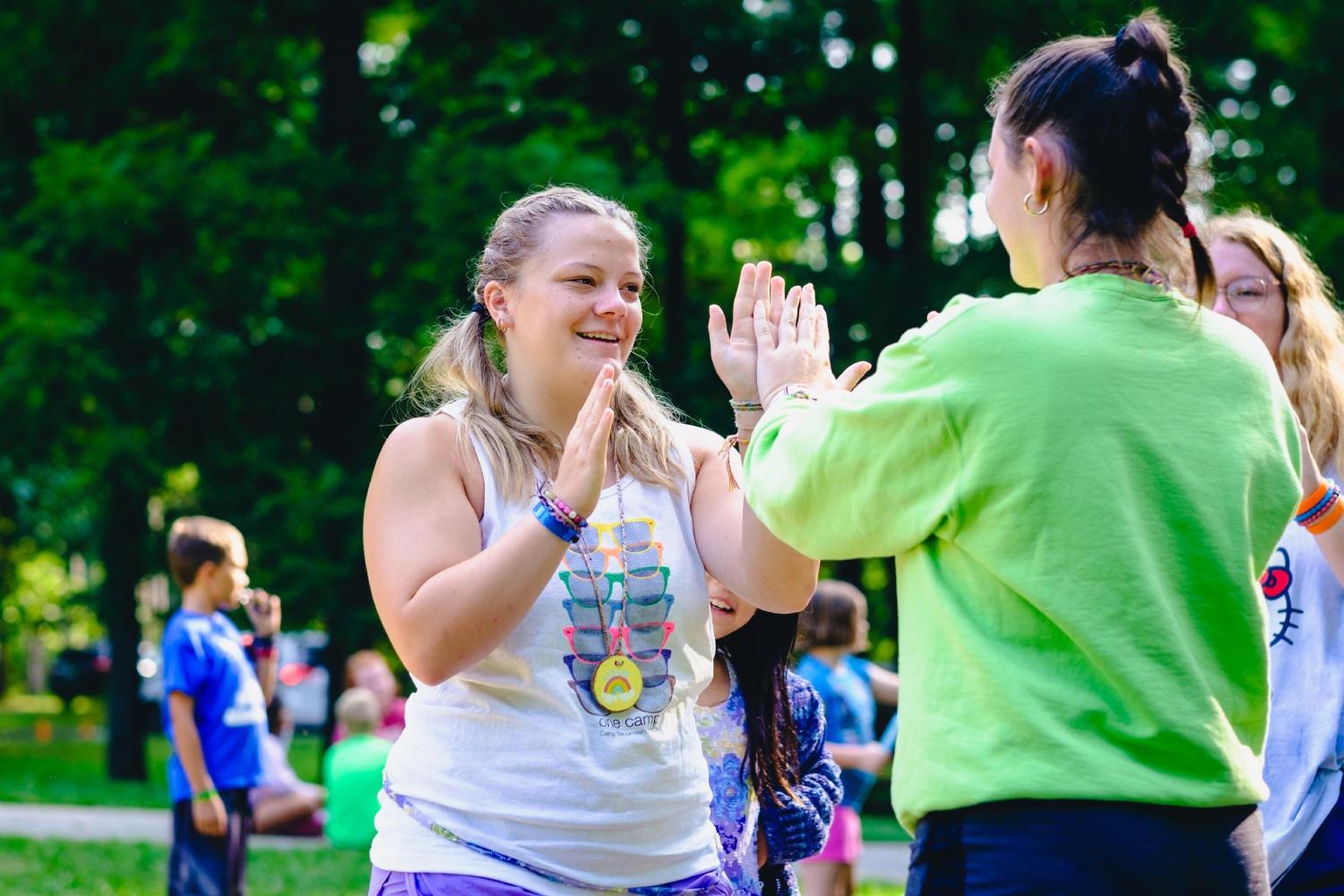 Personality differences are a tremendous asset to your summer youth program when you can leverage different world views, work habits, and communication methods. This absorbing module illustrates the Big Five personality types in action and offers real-world advice on the best ways to manage a dynamic team by helping diverse personalities complement one another.
Personality differences are a tremendous asset to your summer youth program when you can leverage different world views, work habits, and communication methods. This absorbing module illustrates the Big Five personality types in action and offers real-world advice on the best ways to manage a dynamic team by helping diverse personalities complement one another.
Respect is Learned, Not Given
Five Tricks to Making Magic
Dr. Deborah Gilboa
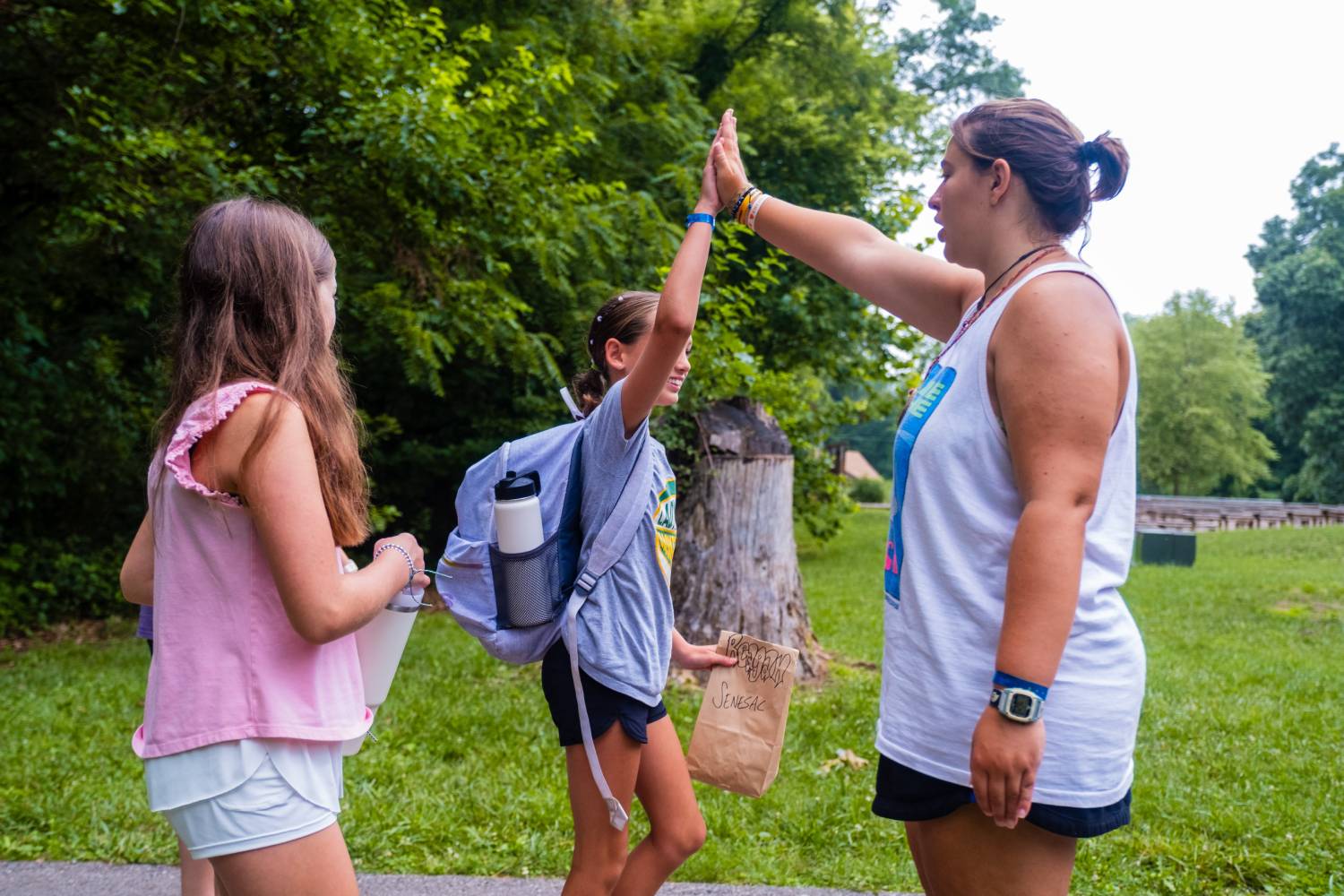 Learn to earn respect by mastering the How, Where, Who, What, and Why of connection. Young people don’t respect leaders because they are wearing a staff shirt, a name badge, or sunglasses. Instead, respect hinges on the relationship a leader cultivates. This practical module unpacks the elements of respect in a way that is easy to understand and implement immediately. A leadership cornerstone.
Learn to earn respect by mastering the How, Where, Who, What, and Why of connection. Young people don’t respect leaders because they are wearing a staff shirt, a name badge, or sunglasses. Instead, respect hinges on the relationship a leader cultivates. This practical module unpacks the elements of respect in a way that is easy to understand and implement immediately. A leadership cornerstone.
Rules Were Made to Be Positive
Creating Expectations Campers Want to Live Up To
Evan Heltay
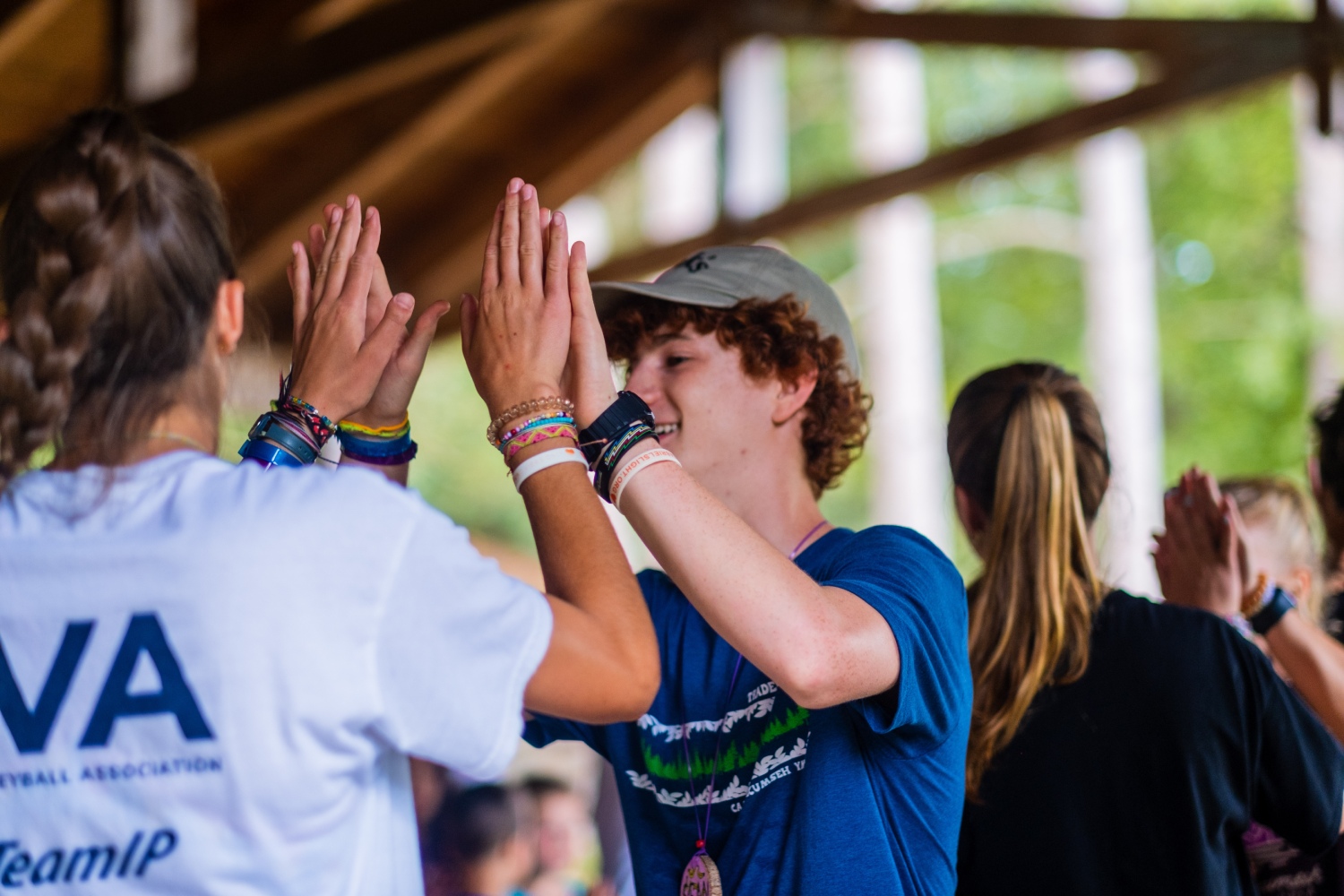 Because your brain first processes the positive in any statement, it can be confusing and ineffective to give campers a string of negative admonishments. A better way to achieve compliant behavior is to explain games, rules, and activities using positive statements. The examples in this original module show you how to turn "Don't cross the line" into "Stay on your side" with marvelous results.
Because your brain first processes the positive in any statement, it can be confusing and ineffective to give campers a string of negative admonishments. A better way to achieve compliant behavior is to explain games, rules, and activities using positive statements. The examples in this original module show you how to turn "Don't cross the line" into "Stay on your side" with marvelous results.
Stop Yelling Get the HINT
Seven Simple Ways to Engage Cooperation
Dr. Chris Thurber
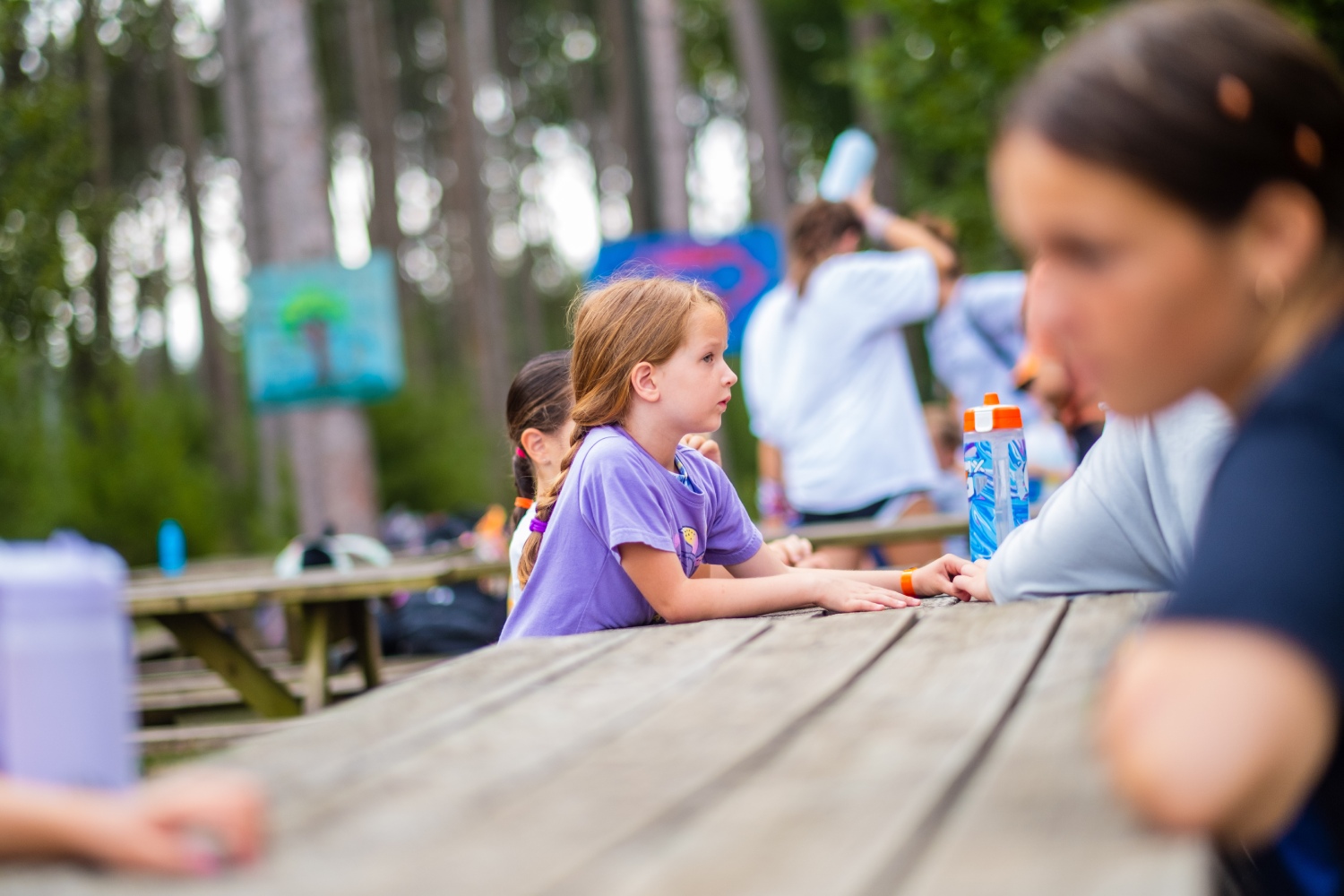 Want the kids to listen without having to deliver an exhausting lecture? You can, if you get the HINT, which stands for “High-Impact, No Trouble” leadership. These frank techniques include powerful, one-word directions and clear, concise gestures that help you make your point, get compliance, and move on. Don’t let minor misbehaviors can get under your skin. Stop yelling and get the HINT.
Want the kids to listen without having to deliver an exhausting lecture? You can, if you get the HINT, which stands for “High-Impact, No Trouble” leadership. These frank techniques include powerful, one-word directions and clear, concise gestures that help you make your point, get compliance, and move on. Don’t let minor misbehaviors can get under your skin. Stop yelling and get the HINT.
We Squashed It! - Physical Aggression
Collaborative Problem Solving for High-Conflict Situations
Scott Arizala
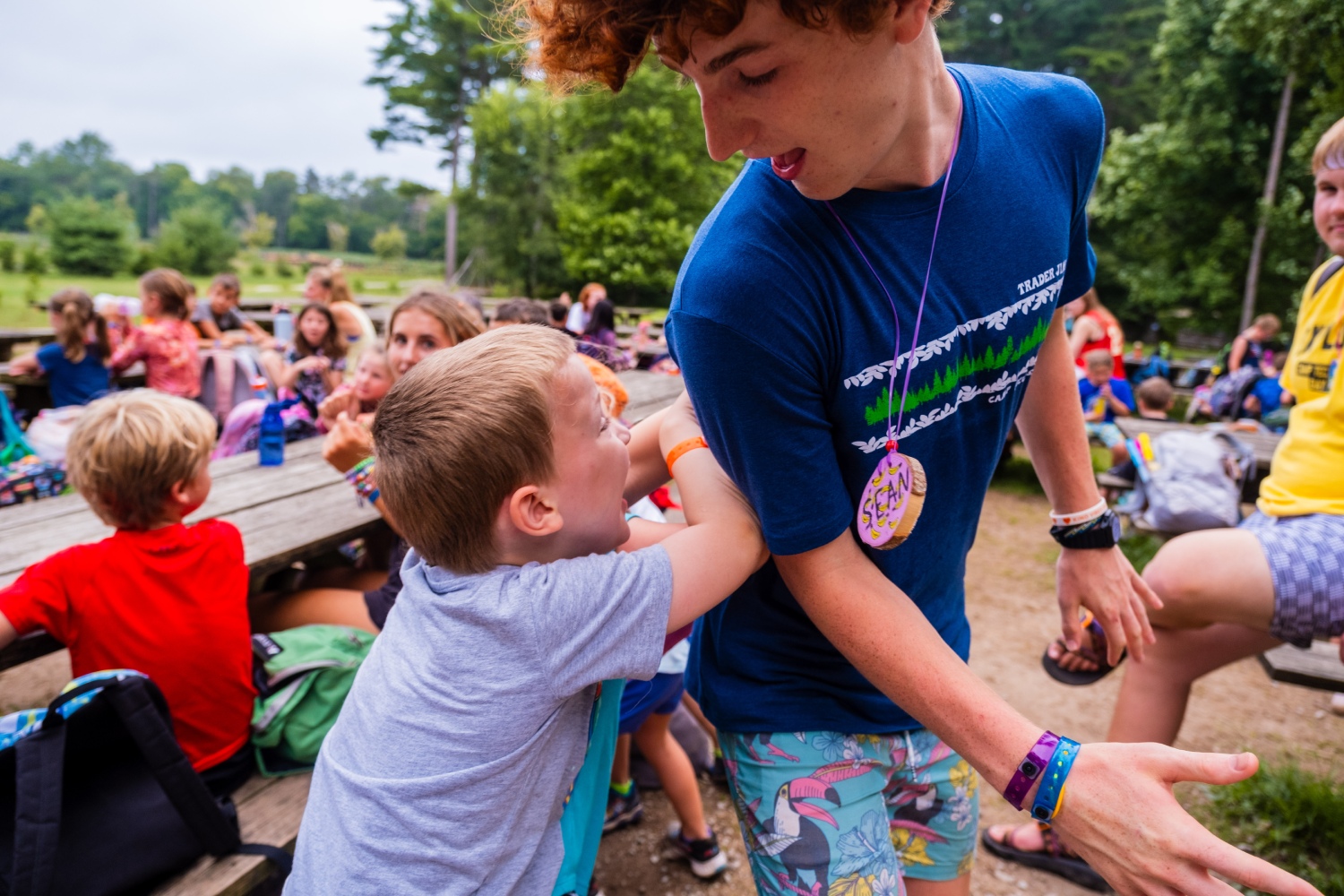 Kids expect that grown-ups will punish and lecture them after a conflict. But research with explosive children shows that the best solution involves a combination of empathy, exploring needs, and teaching skills in self-expression, hypothetical thinking, and emotion regulation. By focusing on wants and needs after physical altercations (more characteristic of boys than girls) this module illustrates the best way to promote durable behavior change.
Kids expect that grown-ups will punish and lecture them after a conflict. But research with explosive children shows that the best solution involves a combination of empathy, exploring needs, and teaching skills in self-expression, hypothetical thinking, and emotion regulation. By focusing on wants and needs after physical altercations (more characteristic of boys than girls) this module illustrates the best way to promote durable behavior change.
We Squashed it! - Relational Aggression
Collaborative Problem Solving for High-Conflict Situations
Scott Arizala
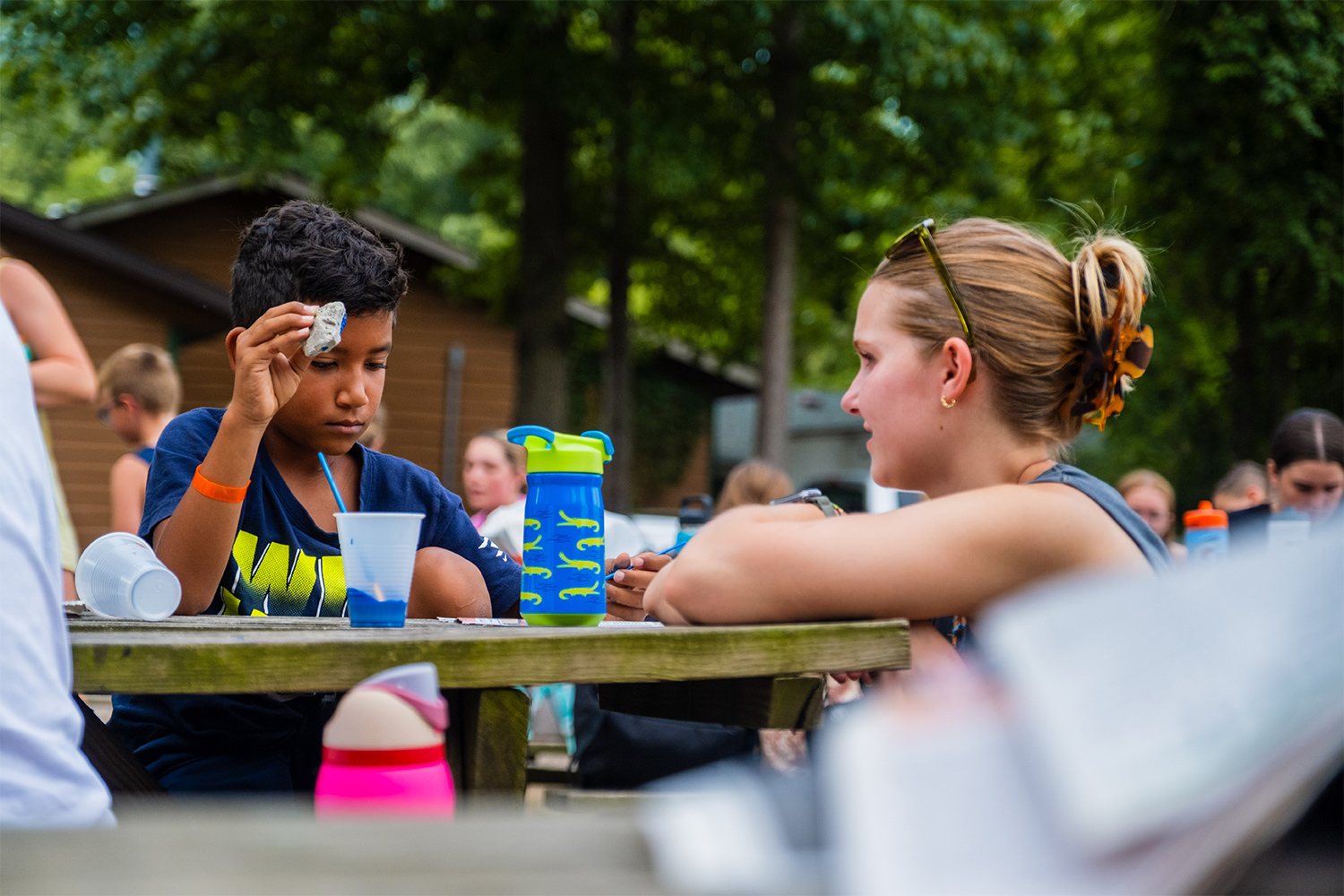 Kids expect that grown-ups will punish and lecture them after a conflict. But research with explosive children shows that the best solution involves a combination of empathy, exploring needs, and teaching skills in self-expression, hypothetical thinking, and emotion regulation. By focusing on wants and needs after interpersonal conflict (more characteristic of girls than boys) this module illustrates the best way to promote durable behavior change.
Kids expect that grown-ups will punish and lecture them after a conflict. But research with explosive children shows that the best solution involves a combination of empathy, exploring needs, and teaching skills in self-expression, hypothetical thinking, and emotion regulation. By focusing on wants and needs after interpersonal conflict (more characteristic of girls than boys) this module illustrates the best way to promote durable behavior change.
Afterschool Program Success, Part I
Snacks, Laps, Raps and Naps
Zach Mural
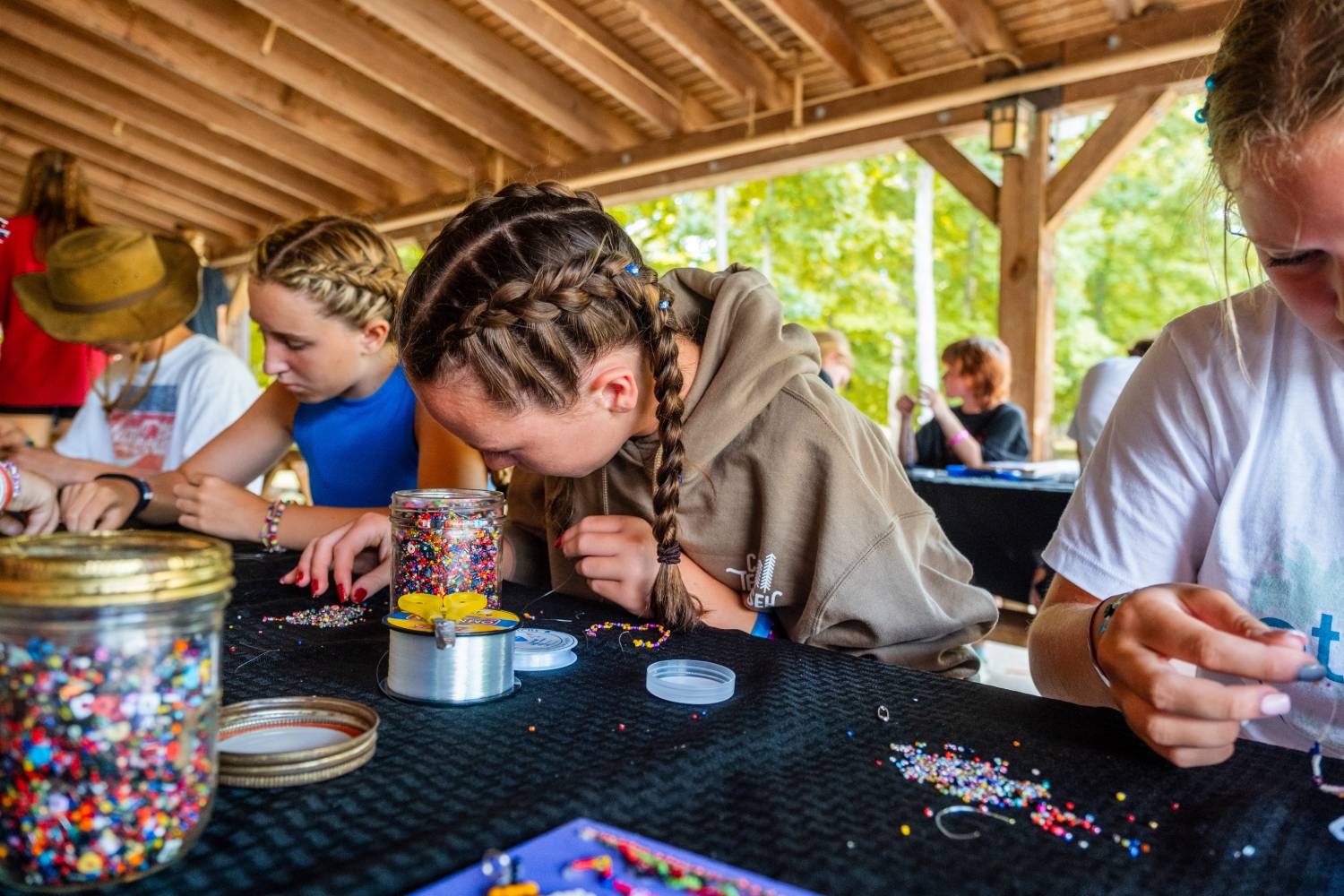 Good after-school programs all provide a safe place for children, but the best programs have staff members who understand what youngsters crave right after school: Snacks, Laps, Raps and Naps. The key to excellence is finding creative ways to meet these needs and reinforce in-school learning in a way that builds character, promotes good decision-making and lets kids decompress and be themselves.
Good after-school programs all provide a safe place for children, but the best programs have staff members who understand what youngsters crave right after school: Snacks, Laps, Raps and Naps. The key to excellence is finding creative ways to meet these needs and reinforce in-school learning in a way that builds character, promotes good decision-making and lets kids decompress and be themselves.
Afterschool Program Success, Part II
Innovative Attitudes and Activities
Zach Mural
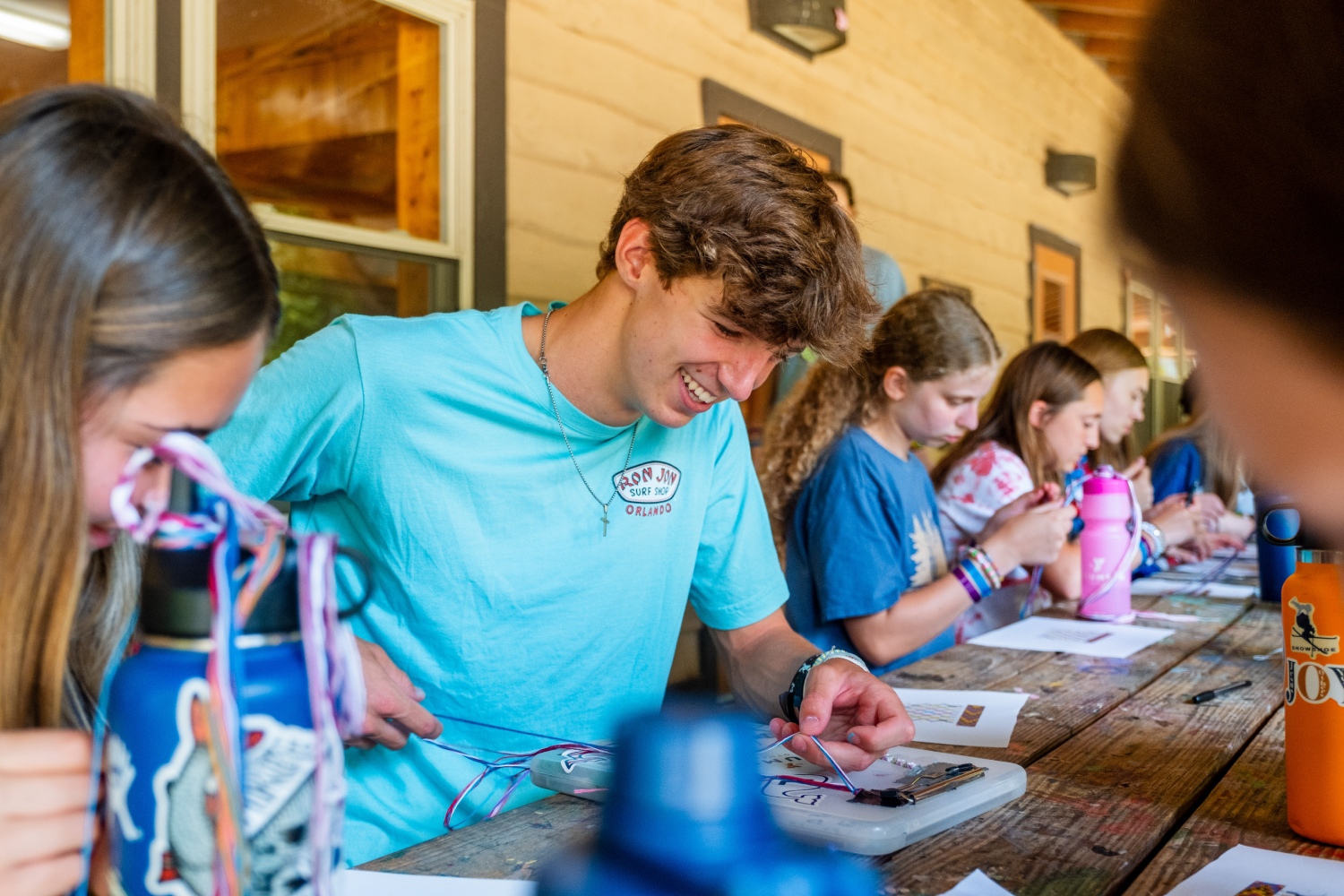 Great youth leaders recognize that children are not potential problems who need to be controlled. Instead, children have limitless potential to contribute as resources. In Part II of this series, Dr. Mural illustrates how talented afterschool program staff connect with these young resources in ways that build healthy relationships, derive lessons from fun activities and capitalize on each teachable moment.
Great youth leaders recognize that children are not potential problems who need to be controlled. Instead, children have limitless potential to contribute as resources. In Part II of this series, Dr. Mural illustrates how talented afterschool program staff connect with these young resources in ways that build healthy relationships, derive lessons from fun activities and capitalize on each teachable moment.
Awesome Archery, Part I
Range Design and Safety Procedures
Dr. Chris Thurber
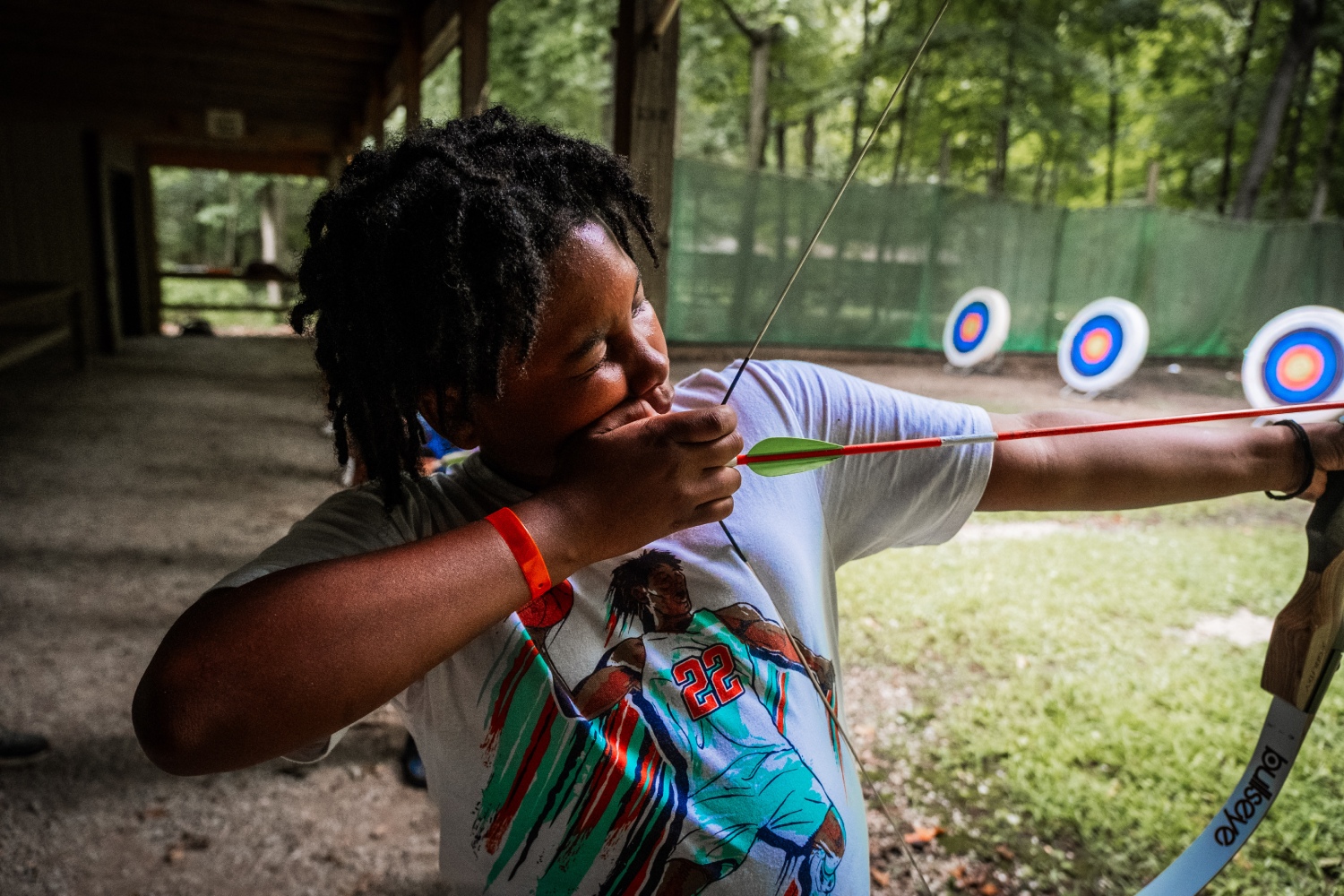 Set your archery program up for success by upgrading the design of you range and the procedures you use to keep both participants and spectators out of harm’s way. From boundary markers to shooting commands, this module covers the most important elements of a professional archery program. Before you focus on expert shooting instruction, take the time to verify a safe set-up.
Set your archery program up for success by upgrading the design of you range and the procedures you use to keep both participants and spectators out of harm’s way. From boundary markers to shooting commands, this module covers the most important elements of a professional archery program. Before you focus on expert shooting instruction, take the time to verify a safe set-up.
Awesome Archery, Part II
Step-by-Step Shooting Success
Dr. Chris Thurber
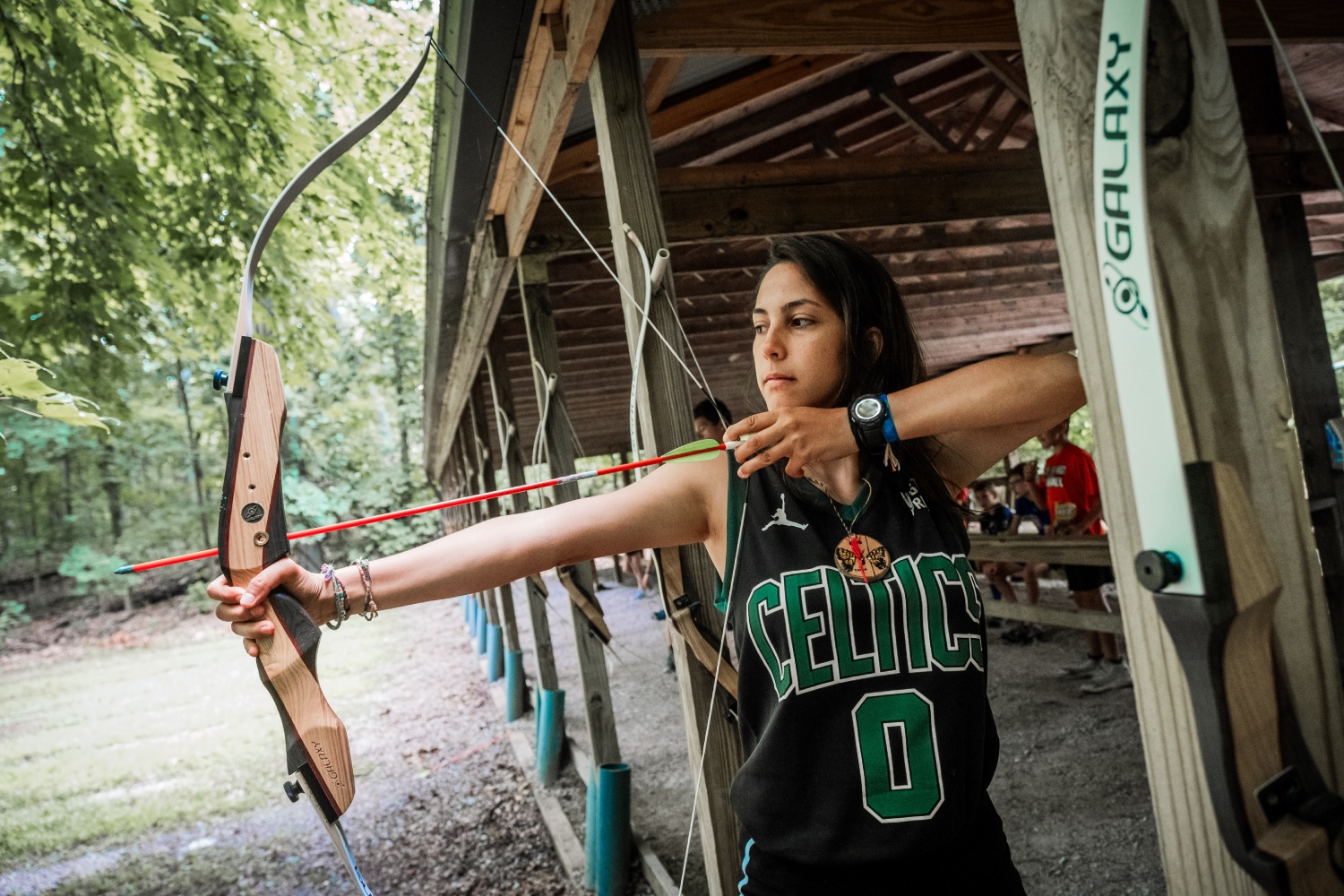 Think you know everything about the world’s oldest and most popular target sport? Think again. This detailed video reveals ten frequently overlooked elements of accurate archery, such as relaxed bow grip, open stance, back muscle drawing, and aligned follow-through. Plus, the safety tips and coaching techniques make this module the perfect complement to any certification course.
Think you know everything about the world’s oldest and most popular target sport? Think again. This detailed video reveals ten frequently overlooked elements of accurate archery, such as relaxed bow grip, open stance, back muscle drawing, and aligned follow-through. Plus, the safety tips and coaching techniques make this module the perfect complement to any certification course.
Becoming a Youth Development Professional, Part I
Making the Transition from ME to KIDS
Dan Weir
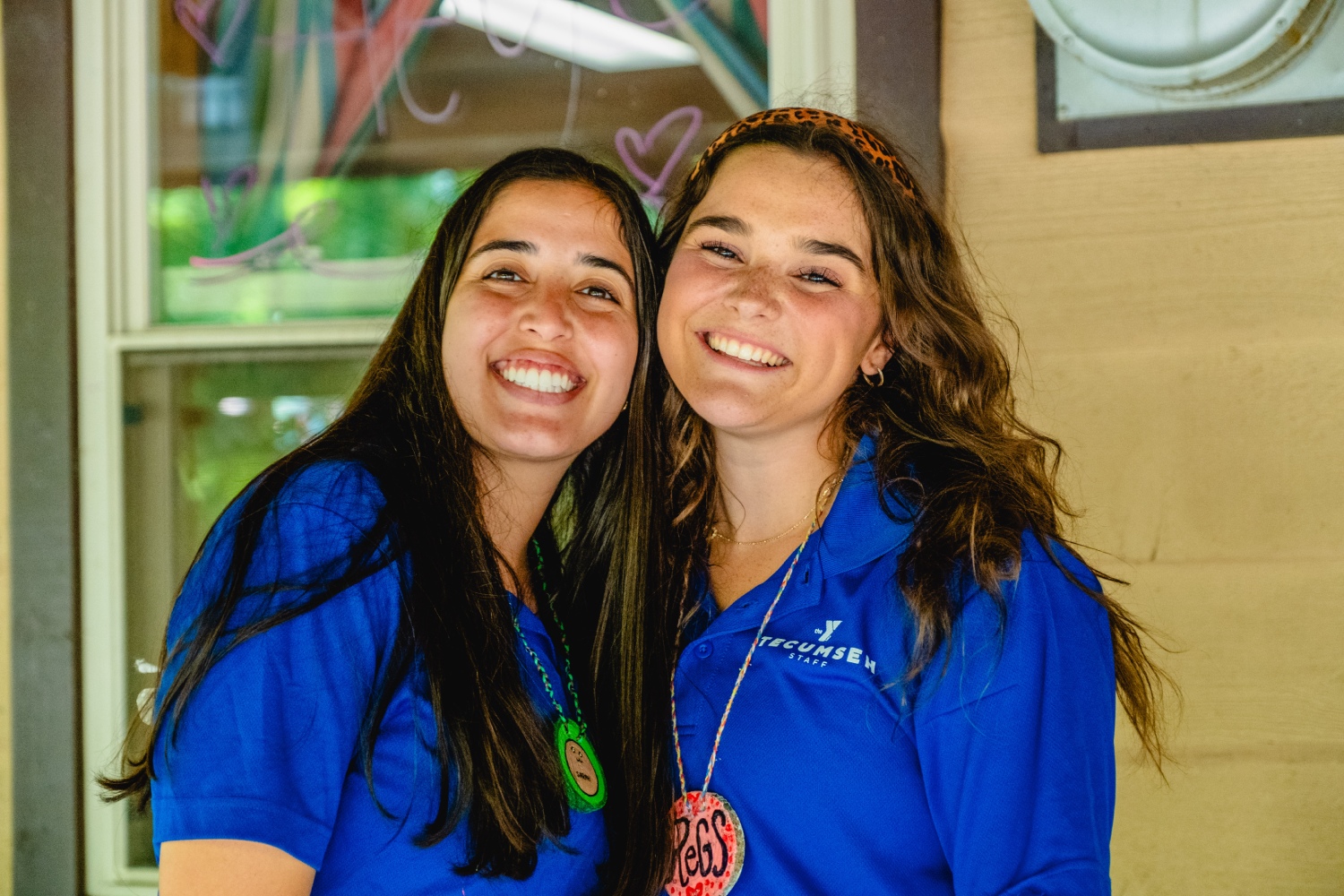 Day and overnight camps are powerful, positive developmental experiences for young people. Their growth hinges on the quality of their relationship with you, so it is essential that you begin considering yourself a youth development professional. This honest module explains how to transition from focusing on yourself to focusing on the needs of the children and adolescents you’ll serve.
Day and overnight camps are powerful, positive developmental experiences for young people. Their growth hinges on the quality of their relationship with you, so it is essential that you begin considering yourself a youth development professional. This honest module explains how to transition from focusing on yourself to focusing on the needs of the children and adolescents you’ll serve.
Becoming a Youth Development Professional, Part II
Engage Your Brain
Dr. Deborah Gilboa
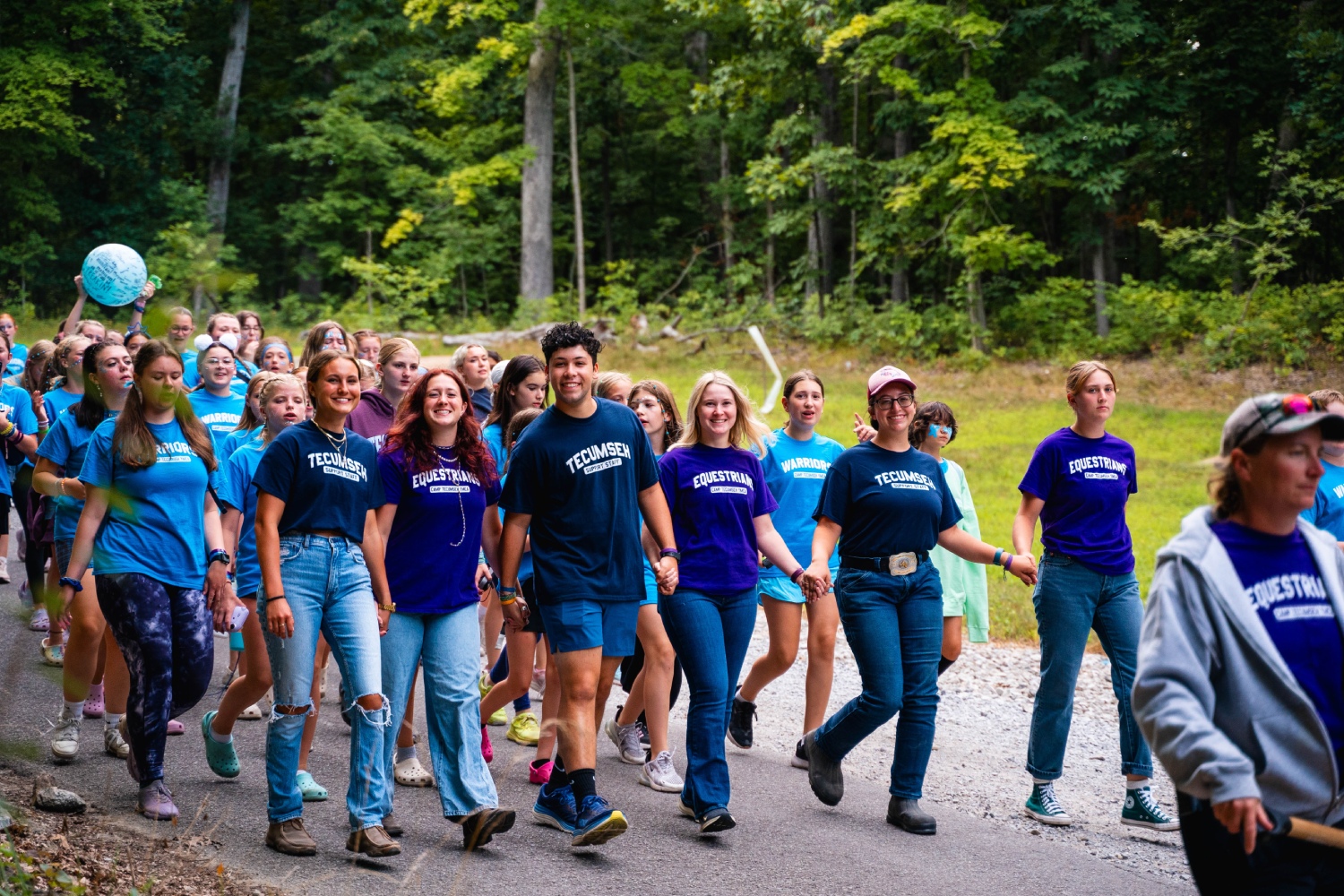 Young adult brains are sometimes ridiculed for being immature, but every leader can learn how to make wise choices. In this lively and scientific module, you’ll learn about the most common vulnerabilities that cause inexperienced leaders to make poor choices and behave unprofessionally. Case studies will then guide your thinking about the best ways to become a thoughtful, respected, and careful mentor.
Young adult brains are sometimes ridiculed for being immature, but every leader can learn how to make wise choices. In this lively and scientific module, you’ll learn about the most common vulnerabilities that cause inexperienced leaders to make poor choices and behave unprofessionally. Case studies will then guide your thinking about the best ways to become a thoughtful, respected, and careful mentor.
Burn Specific Programming, Part I
Understanding Psychosocial Adjustment
Brad Wiggins
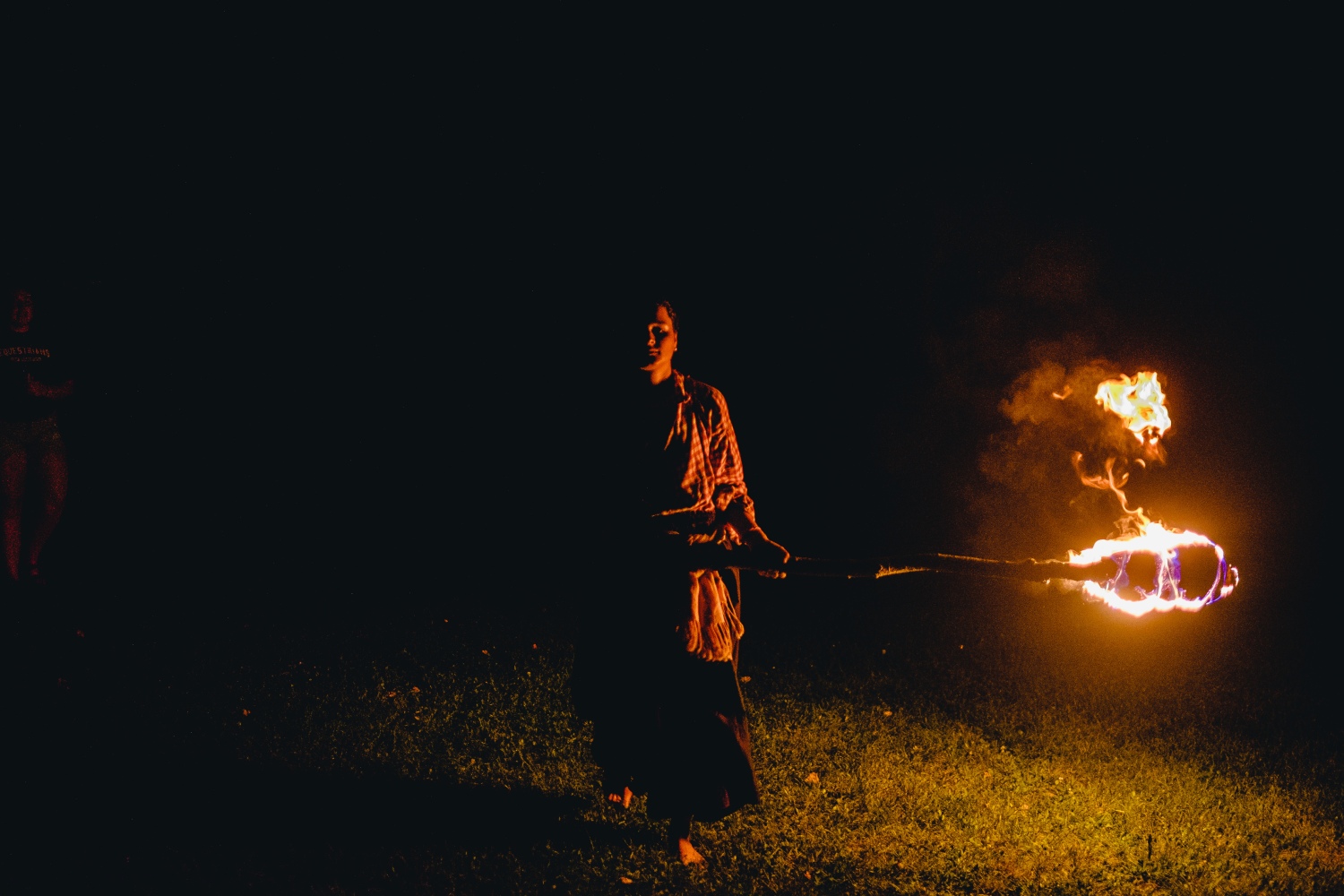 Meeting the psychosocial needs of young burn survivors requires advanced training and distinctive programming. This specialized module will help the staff in any program—including a burn camp—understand burn injuries, identify survivors’ needs, connect in comfortable ways, design inclusive programs and teach young burn survivors how to get the most out of an outdoor group experience.
Meeting the psychosocial needs of young burn survivors requires advanced training and distinctive programming. This specialized module will help the staff in any program—including a burn camp—understand burn injuries, identify survivors’ needs, connect in comfortable ways, design inclusive programs and teach young burn survivors how to get the most out of an outdoor group experience.
Burn Specific Programming, Part II
Connecting with Young Burn Survivors
Brad Wiggins
 Forging authentic social connections with young burn survivors requires advanced training and
distinctive programming. Part II of this specialized series will help the staff in any program—including a
burn camp—connect with young survivors in comfortable ways and design inclusive social activities that teach young burn survivors to express themselves, make close friends and cope in healthy ways.
Forging authentic social connections with young burn survivors requires advanced training and
distinctive programming. Part II of this specialized series will help the staff in any program—including a
burn camp—connect with young survivors in comfortable ways and design inclusive social activities that teach young burn survivors to express themselves, make close friends and cope in healthy ways.
Canoeing Success, Part I
Set-Up and Stroke Basics
Mike Sladden
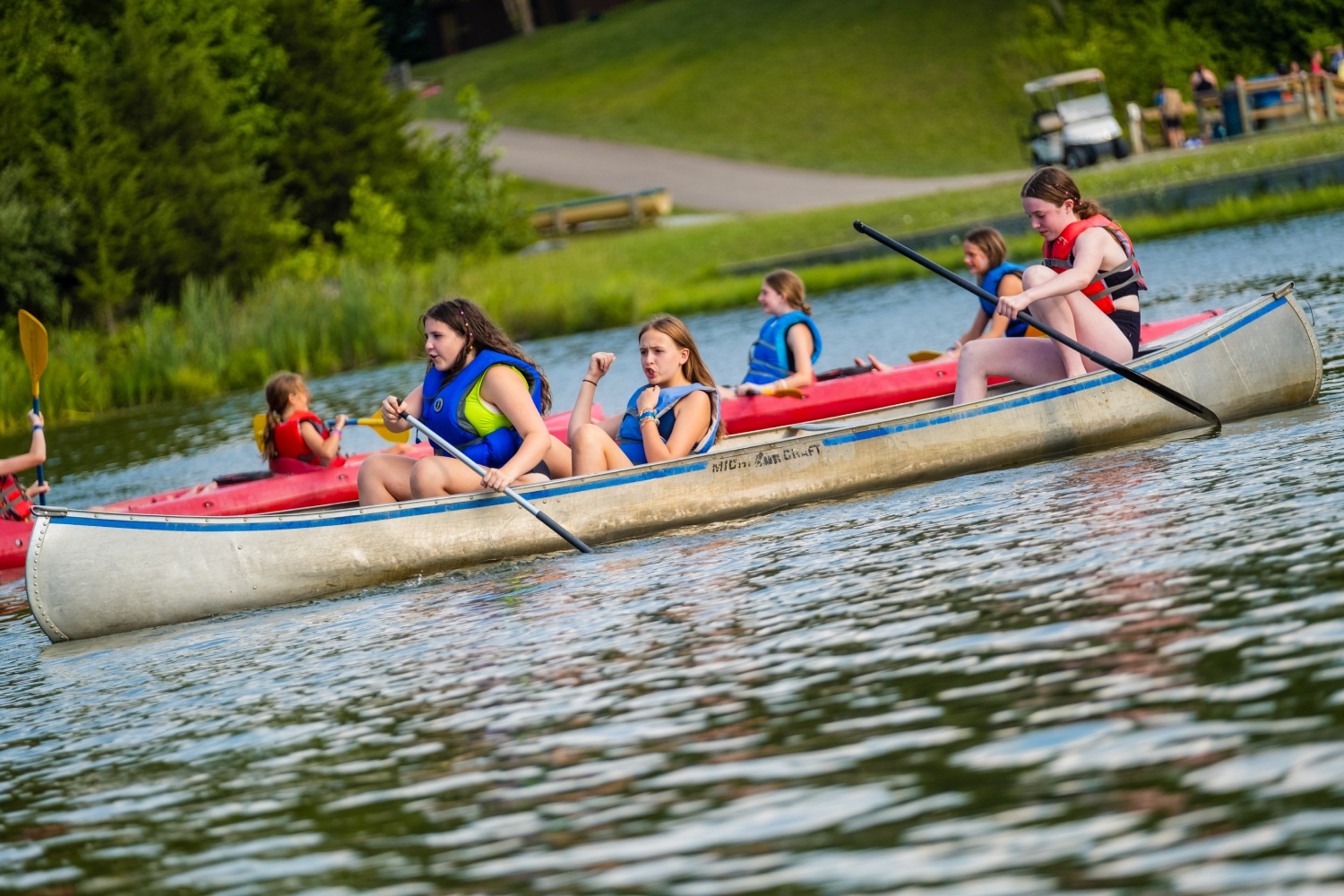 The canoe is the ideal vehicle for exploring the natural world. Canoeing is synonymous with exploration, accomplishment, adventure, and camp. This iconic and graceful activity engages young people by enriching their outdoor skills, nurturing their friendships, and immersing them in nature. In Part I of this series, you’ll learn key strokes such as forward, draw, pry and J, plus the secrets of successful programs.
The canoe is the ideal vehicle for exploring the natural world. Canoeing is synonymous with exploration, accomplishment, adventure, and camp. This iconic and graceful activity engages young people by enriching their outdoor skills, nurturing their friendships, and immersing them in nature. In Part I of this series, you’ll learn key strokes such as forward, draw, pry and J, plus the secrets of successful programs.
Canoeing Success, Part II
Advanced Strokes and Drills
Mike Sladden
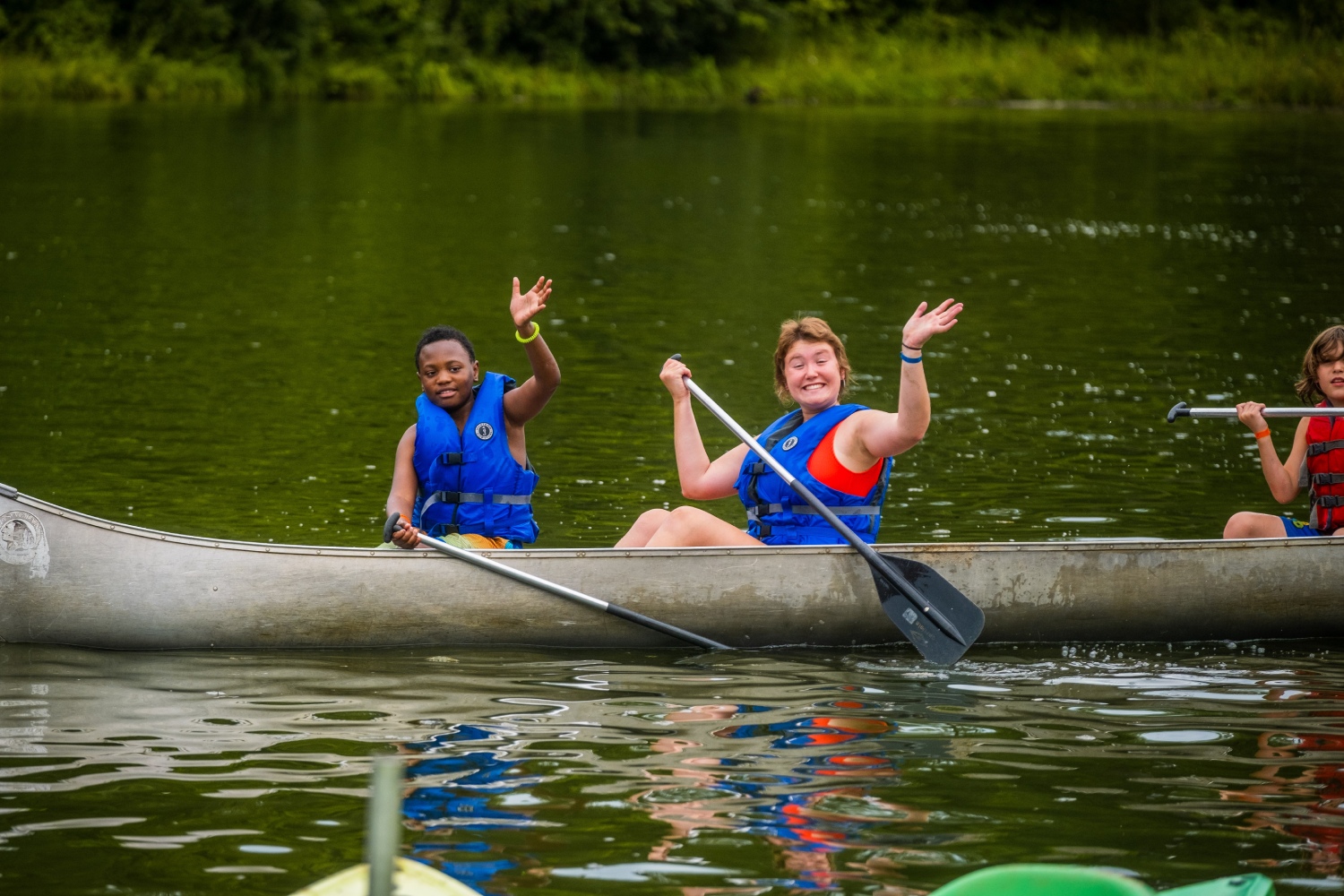 Dial your paddling prowess up a notch by learning fun drills and new skills in Part II of this series. You’ll learn about landmark paddling, dock landings and donuts. Then, focus on advanced strokes such as the cross draw, the slide slip, the sculling draw, and the running draw. Gunwale bouncing, slalom courses and Hawaiian Dodgeball round out the upper-level games that will help you perfect your technique.
Dial your paddling prowess up a notch by learning fun drills and new skills in Part II of this series. You’ll learn about landmark paddling, dock landings and donuts. Then, focus on advanced strokes such as the cross draw, the slide slip, the sculling draw, and the running draw. Gunwale bouncing, slalom courses and Hawaiian Dodgeball round out the upper-level games that will help you perfect your technique.
Canoeing Success, Part III
Capsizing and Safe Rescue
Mike Sladden
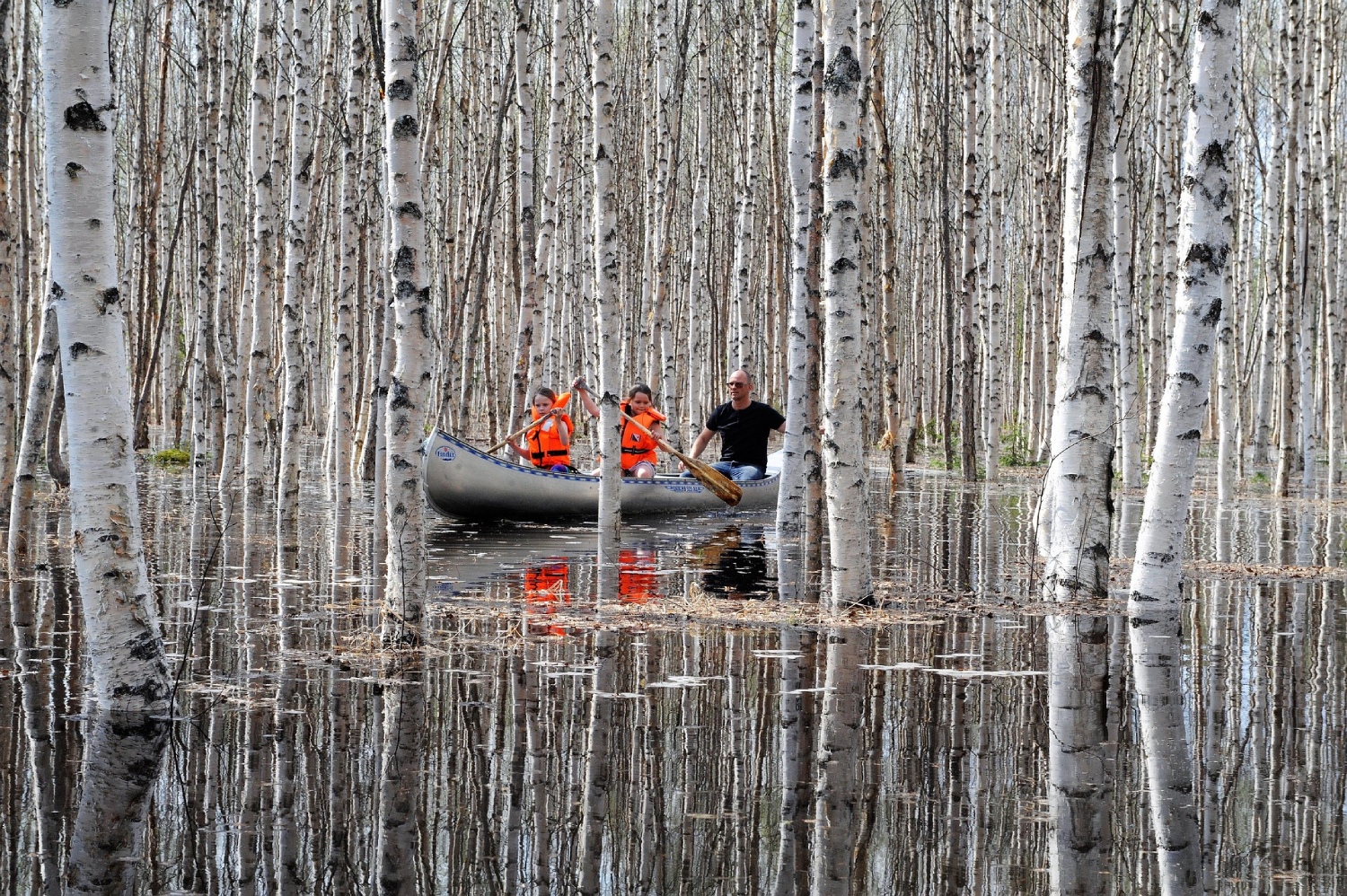 It's all part of the sport, but tipping over in a canoe can be stressful... if you’ve never done it before. Away from calm water or a familiar shoreline, you'll be glad you can perform a competent rescue. Part III of this beautifully filmed series teaches the proper way to rescue a canoe that has overturned, drain and right it with stability, and re-enter the craft with grace and newfound confidence. A safety essential.
It's all part of the sport, but tipping over in a canoe can be stressful... if you’ve never done it before. Away from calm water or a familiar shoreline, you'll be glad you can perform a competent rescue. Part III of this beautifully filmed series teaches the proper way to rescue a canoe that has overturned, drain and right it with stability, and re-enter the craft with grace and newfound confidence. A safety essential.
Cultivating Patience
Creating a Calm Presence for Learning and Leadership
Dan Weir
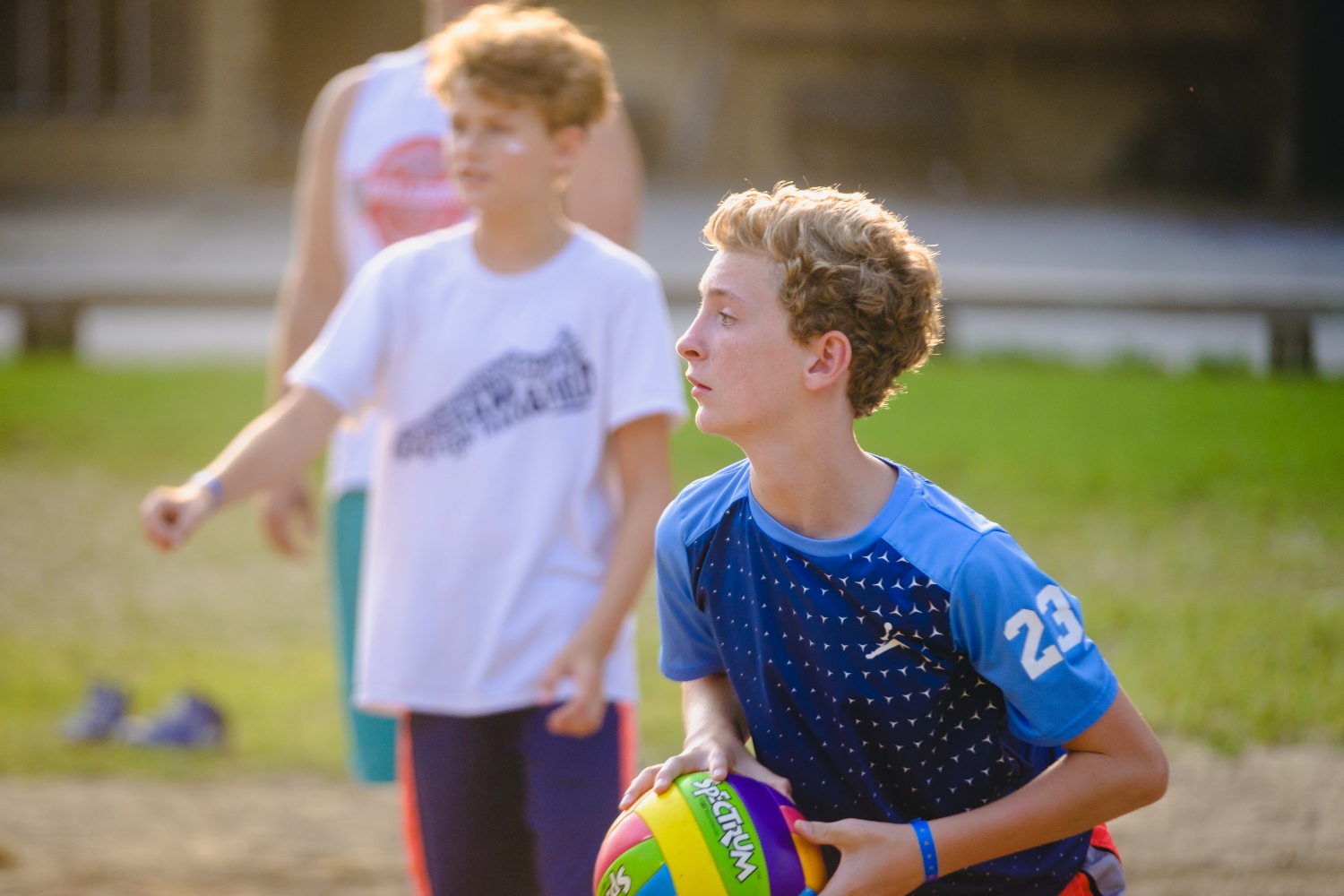 Ever feel as if you're going to lose it because the kids aren't listening? We all have, at some point. Ironically, of all the essential leadership skills for youth development professionals, patience may be the most important and the most neglected. This remarkable module uses realistic pairs of bad and good examples to teach novel ways of fostering lasting patience. Never "lose it" again!
Ever feel as if you're going to lose it because the kids aren't listening? We all have, at some point. Ironically, of all the essential leadership skills for youth development professionals, patience may be the most important and the most neglected. This remarkable module uses realistic pairs of bad and good examples to teach novel ways of fostering lasting patience. Never "lose it" again!
Effective Debriefing Tools and Techniques
Learn to Play and Play to Learn
Michelle Cummings
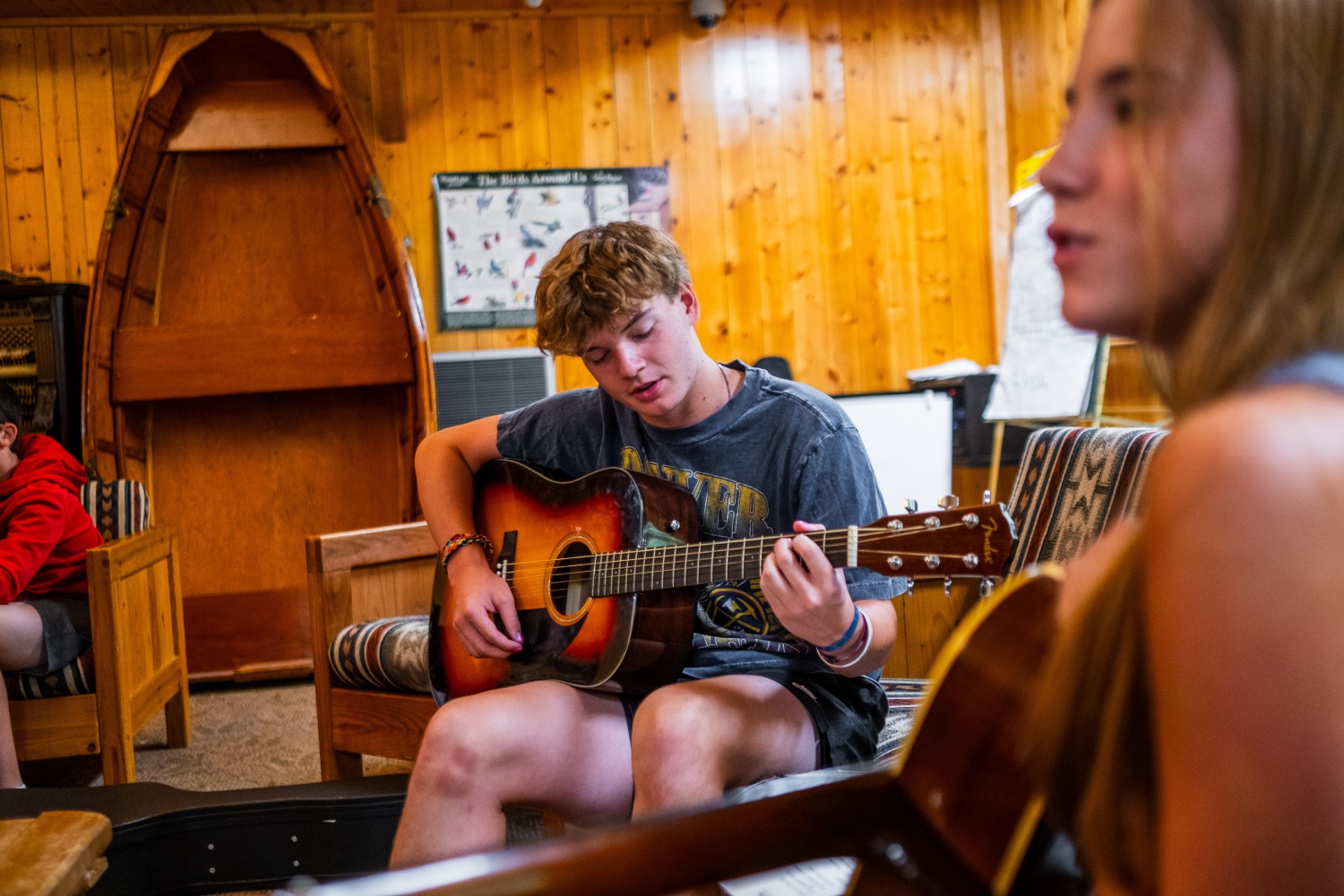 Too many youth programs run at a frantic pace, rarely giving young people opportunities to reflect on what they’ve learned and how they’ve learned it. This lively module is loaded with easy and advanced debriefing methods you can start using immediately. Unlike other approaches, you’ll learn activities that give young people the power to take the lead in debriefing.
Too many youth programs run at a frantic pace, rarely giving young people opportunities to reflect on what they’ve learned and how they’ve learned it. This lively module is loaded with easy and advanced debriefing methods you can start using immediately. Unlike other approaches, you’ll learn activities that give young people the power to take the lead in debriefing.
Equity and Diversity
The Fabric of Camp
Dr. Chris Thurber
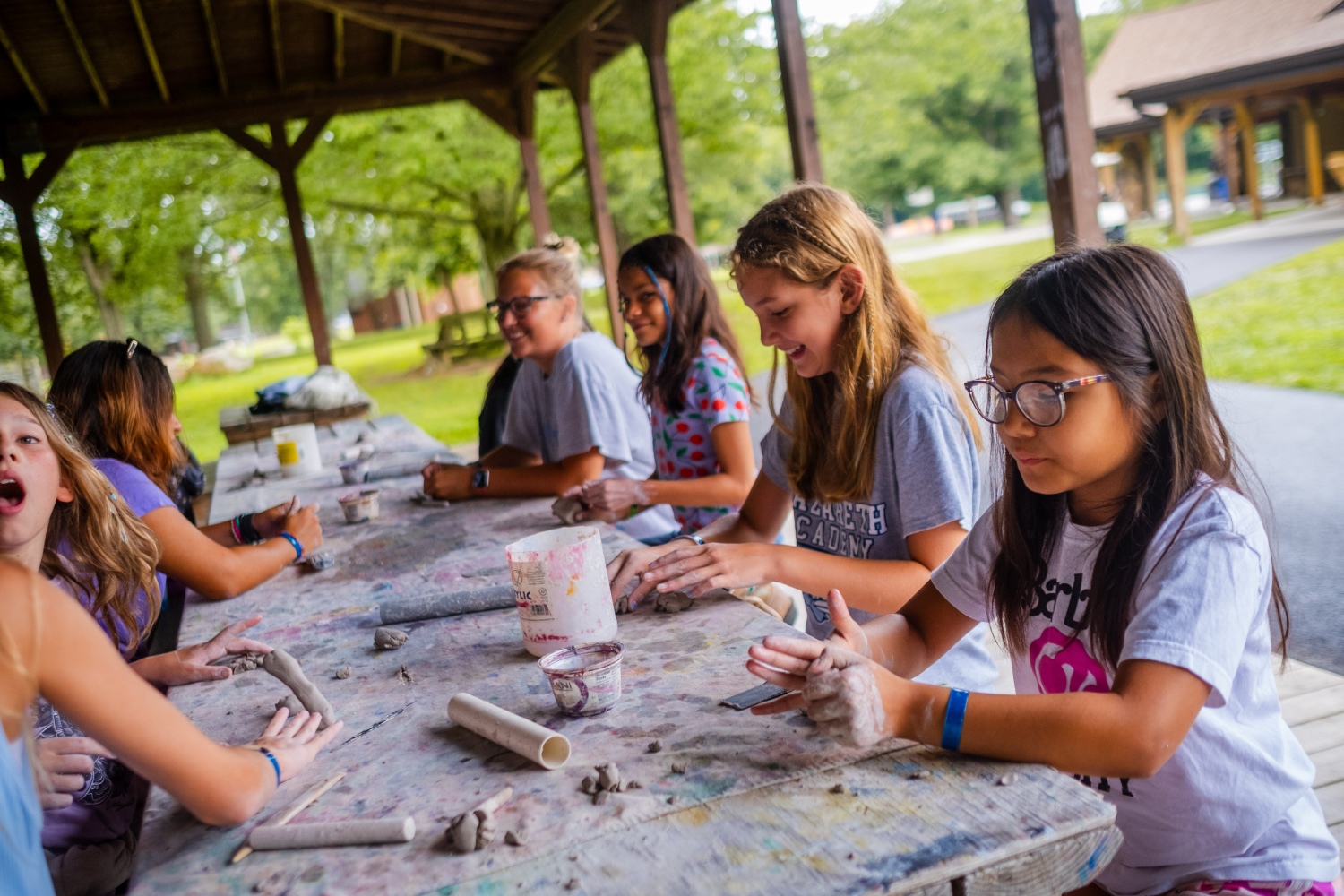 Celebrating the differences among people introduces a whole new level of enjoyment to the experience of day or overnight camp. It may be human to fear differences at first, but a skillful leader can guide the group toward a deep appreciation of all that makes us unique. This pioneering module cleverly showcases children's perspectives on diversity at camp.
Celebrating the differences among people introduces a whole new level of enjoyment to the experience of day or overnight camp. It may be human to fear differences at first, but a skillful leader can guide the group toward a deep appreciation of all that makes us unique. This pioneering module cleverly showcases children's perspectives on diversity at camp.
Face-to-Face (Differently Abled Youth)
Interacting with Differently Abled Youth
Kurt Podeszwa
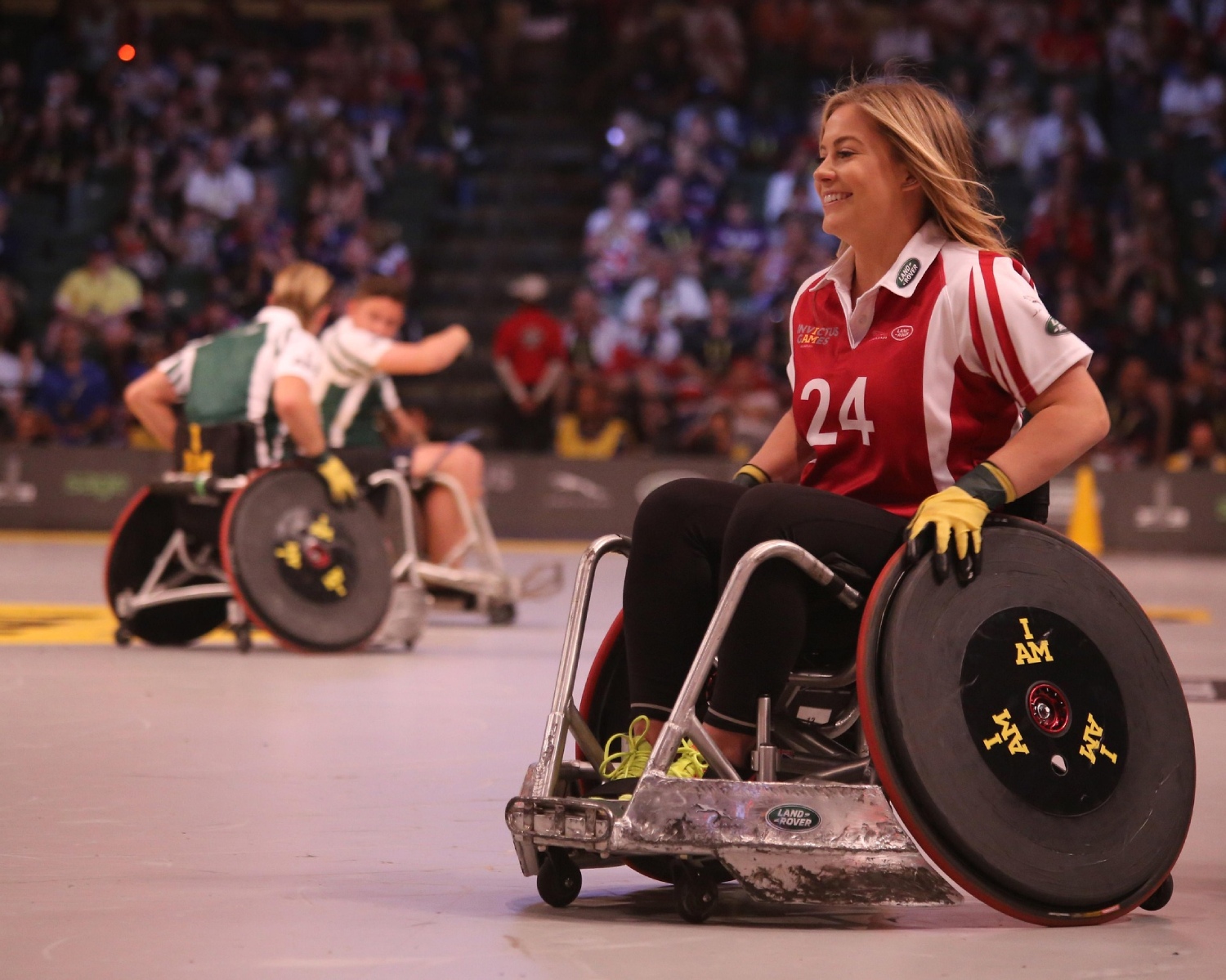 Should you assist a young person who cannot walk or see or hear? If so, how? Is it acceptable to ask differently abled youth about their condition, be it paralysis, burn scars, or prosthetics? This module draws viewers into realistic scenarios that illustrate best practices for engaging all youth with different abilities. Vital viewing for staff at inclusive schools and camps.
Should you assist a young person who cannot walk or see or hear? If so, how? Is it acceptable to ask differently abled youth about their condition, be it paralysis, burn scars, or prosthetics? This module draws viewers into realistic scenarios that illustrate best practices for engaging all youth with different abilities. Vital viewing for staff at inclusive schools and camps.
Hello Games
Invite, Include, and Inquire
Faith Evans
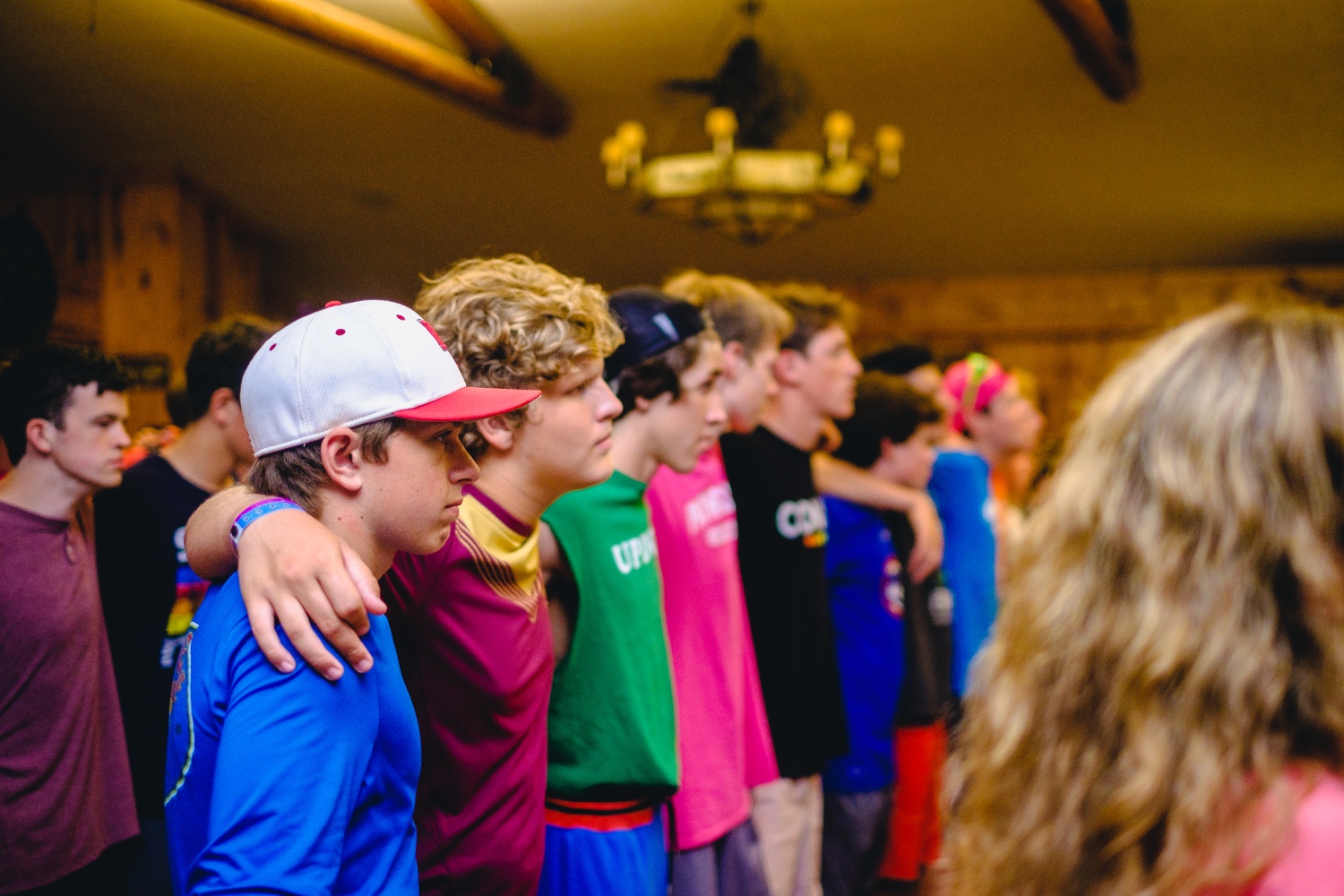 Tired of the same old icebreakers and name games? Bust out some of the innovative games from this module and get everyone playing, laughing, and feeling part of the group. When campers feel welcome and included on the first day of camp, they form the kind of close friendships that prevent homesickness, cliques, and bullying. These "hello games" will help you make a warm first impression.
Tired of the same old icebreakers and name games? Bust out some of the innovative games from this module and get everyone playing, laughing, and feeling part of the group. When campers feel welcome and included on the first day of camp, they form the kind of close friendships that prevent homesickness, cliques, and bullying. These "hello games" will help you make a warm first impression.
Move It Like You Mean It
Using Body Language to Enhance Communication
Scott Arizala
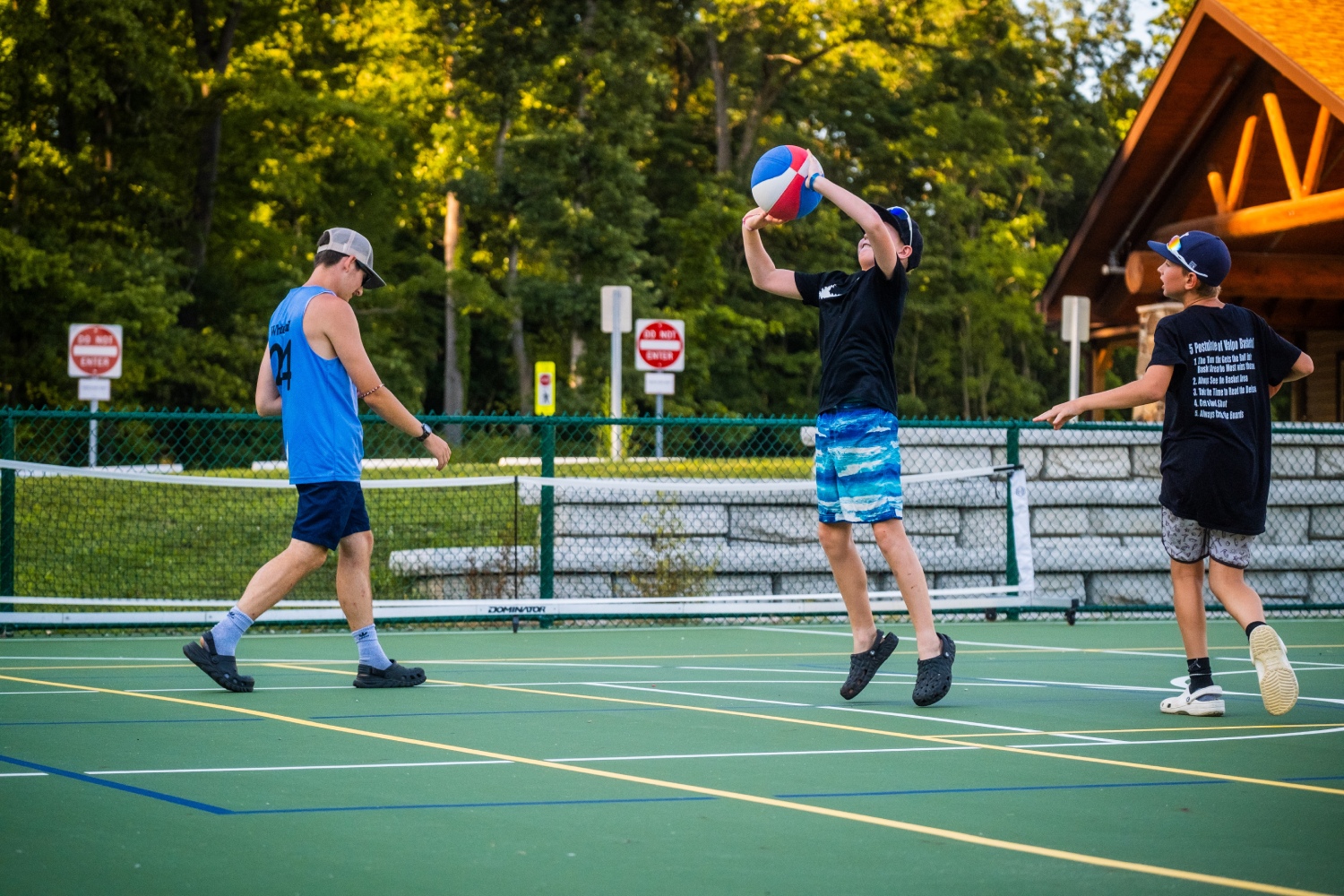 Keen awareness of the seven types of non-verbal communication will help all new, returning, and supervisory staff become better communicators. Beyond the basic distinction between safe and unsafe touch lie the powerfully subtle and intricate ways we use our bodies to send messages of support, enthusiasm, invitation, and friendship. Learn quickly how a gesture can be worth a thousand words.
Keen awareness of the seven types of non-verbal communication will help all new, returning, and supervisory staff become better communicators. Beyond the basic distinction between safe and unsafe touch lie the powerfully subtle and intricate ways we use our bodies to send messages of support, enthusiasm, invitation, and friendship. Learn quickly how a gesture can be worth a thousand words.
Outdoor Cooking with Youth
Seven Campfire Favorites to Tempt Your Tastebuds
Faith Evans
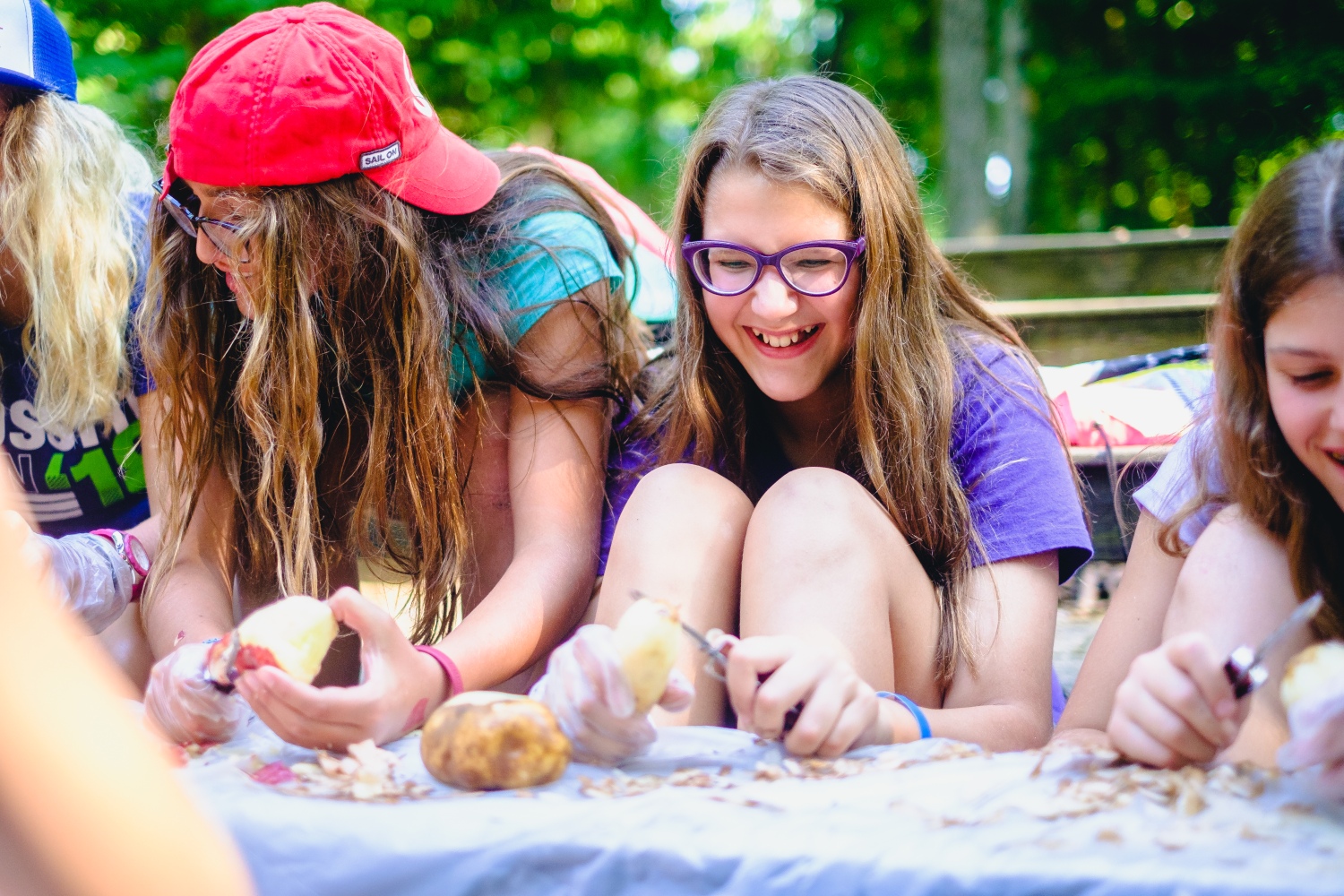 Everything tastes better outside…and each dish is more delicious when it’s cooked over an open fire. In this tantalizing module, foodie Faith Evans and her intrepid team of young cooks guides viewers through the preparation of camp classics such as: English Muffin Pizza, Cherry Cobbler, and Egg-in-a-Hole as well as creative new creations like Squiggle Fun Cakes, Jelly Jammies, and Banana Boats. Yum!
Everything tastes better outside…and each dish is more delicious when it’s cooked over an open fire. In this tantalizing module, foodie Faith Evans and her intrepid team of young cooks guides viewers through the preparation of camp classics such as: English Muffin Pizza, Cherry Cobbler, and Egg-in-a-Hole as well as creative new creations like Squiggle Fun Cakes, Jelly Jammies, and Banana Boats. Yum!
Playing with a Full Deck
Exciting Low-Prop Games for Groups
Michelle Cummings
 Based on Michelle Cummings’ best-selling book, this module (and the huge handout that comes with it), will give you fresh ideas for fast-moving icebreakers, group problem-solving games, and daily debriefing activities. All you need is an old deck of cards, a new group of young people, and your energy and imagination. Promote insight, friendship, understanding, and fun!
Based on Michelle Cummings’ best-selling book, this module (and the huge handout that comes with it), will give you fresh ideas for fast-moving icebreakers, group problem-solving games, and daily debriefing activities. All you need is an old deck of cards, a new group of young people, and your energy and imagination. Promote insight, friendship, understanding, and fun!
Programming For All (Differently Abled Youth)
Creative Adaptations for Differently Abled Youth
Kurt Podeszwa
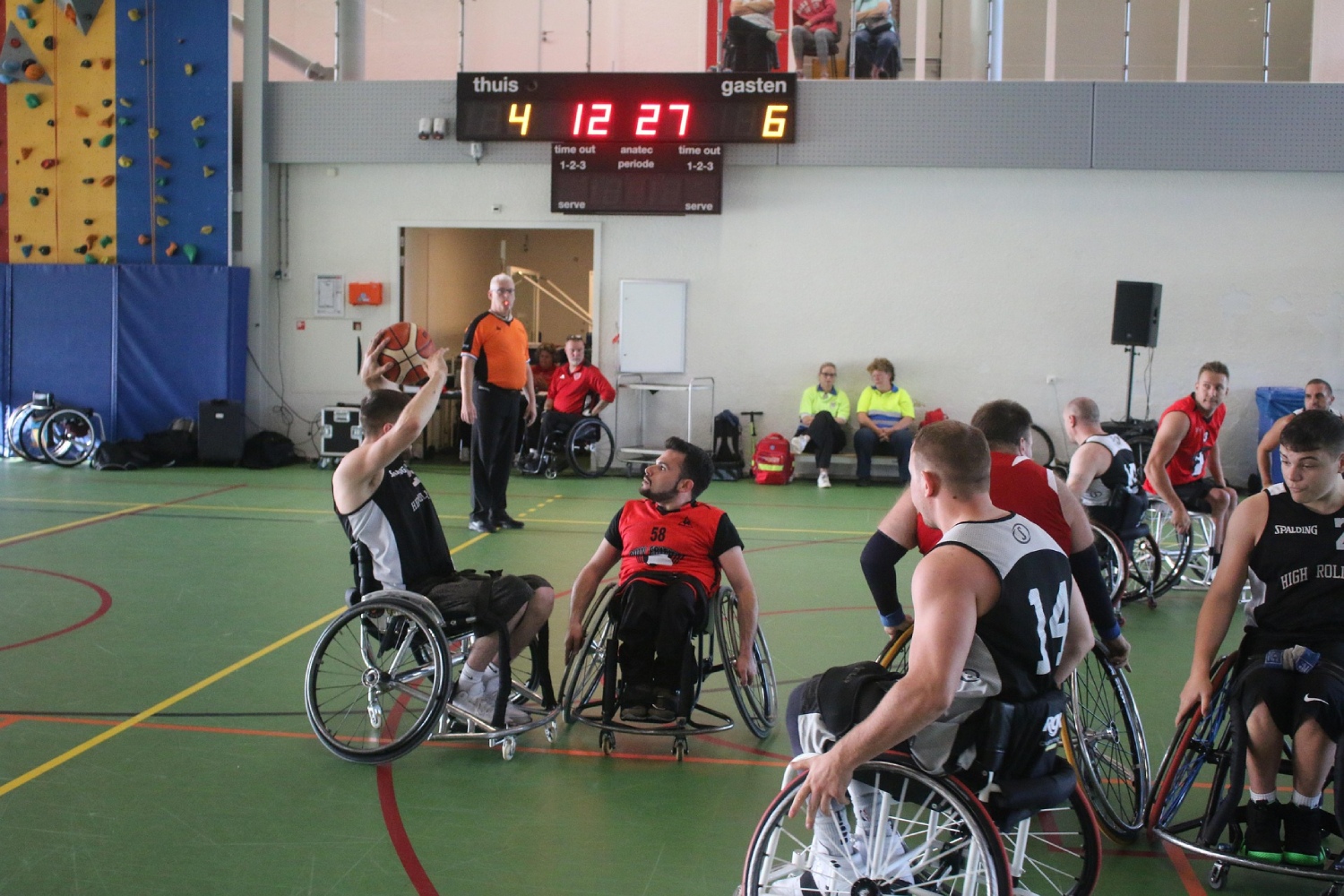 We all make adaptations every day, such as putting on sunglasses, using a ladder, or donning a baseball glove. Adaptations just make activities easier, safer, or possible…and they can be provided for youth of any ability. Hosted by a director experienced in adaptive programming, this specialized module shows program staff tons of creative adaptations for differently abled youth.
We all make adaptations every day, such as putting on sunglasses, using a ladder, or donning a baseball glove. Adaptations just make activities easier, safer, or possible…and they can be provided for youth of any ability. Hosted by a director experienced in adaptive programming, this specialized module shows program staff tons of creative adaptations for differently abled youth.
Rainy Day Games
All Weather Fun
Faith Evans
 Foul weather is an opportunity to play, as you'll learn in this upbeat module on indoor games that cost little or nothing. Using materials you can easily find around your camp, you'll learn step-by-step instructions for creating activities that engage campers, stimulate staff, and transform "Oh no, not another rainy day..." to "Hey, it's raining! Can we play that cool game again?"
Foul weather is an opportunity to play, as you'll learn in this upbeat module on indoor games that cost little or nothing. Using materials you can easily find around your camp, you'll learn step-by-step instructions for creating activities that engage campers, stimulate staff, and transform "Oh no, not another rainy day..." to "Hey, it's raining! Can we play that cool game again?"
Speaking of Camp
Parents' Advice and Reflections on the Power of Camp
Dr. Chris Thurber
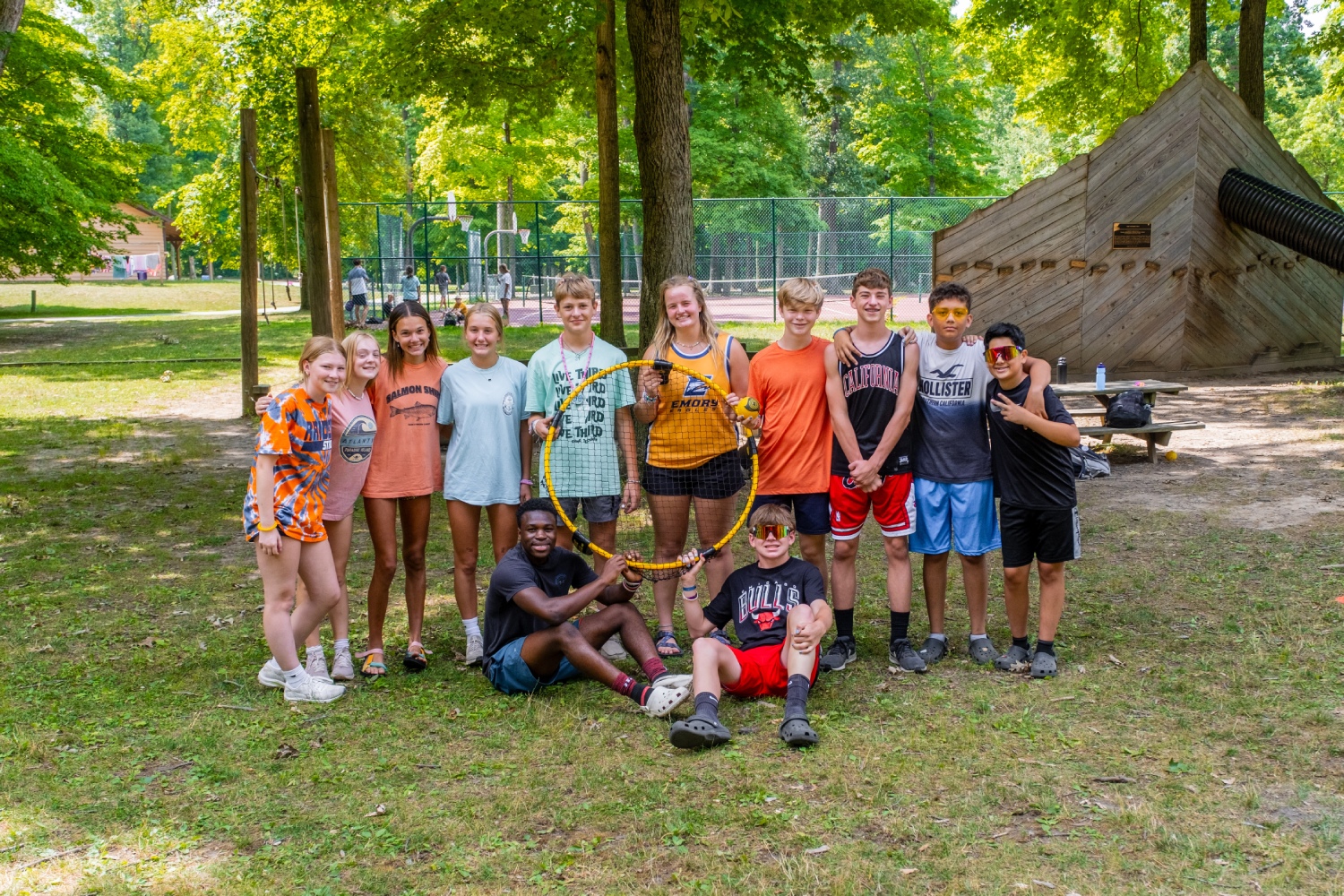 Here's what all parents want you to know before becoming the substitute caregiver for their most precious possession—their child. Listen carefully here to what moms and dads believe is the value of the camp experience, the important role you play, and the ways in which camp changes children's lives. Nowhere else can you hear real parents sharing valuable advice for youth development professionals.
Here's what all parents want you to know before becoming the substitute caregiver for their most precious possession—their child. Listen carefully here to what moms and dads believe is the value of the camp experience, the important role you play, and the ways in which camp changes children's lives. Nowhere else can you hear real parents sharing valuable advice for youth development professionals.
Woodworking Projects by Hand - Advanced: Boxes
Dr. Chris Thurber
 Boxes epitomize handcrafted woodworking and require considerable measuring and cutting skill to get right. In this advanced video, Chris teaches three different ways to construct a pint-sized box with a whisper-quiet leather hinge. For variety, you can build your box cubic, oblong, or wide, with mitered corners or butt-jointed pillar corners made of a contrasting wood species. A classic.
Boxes epitomize handcrafted woodworking and require considerable measuring and cutting skill to get right. In this advanced video, Chris teaches three different ways to construct a pint-sized box with a whisper-quiet leather hinge. For variety, you can build your box cubic, oblong, or wide, with mitered corners or butt-jointed pillar corners made of a contrasting wood species. A classic.
Woodworking Projects by Hand - Advanced: Picture Frames
Dr. Chris Thurber
 Create an heirloom-quality picture frame from clear New Zealand pine-or any other species of 1x3 strapping-then learn to master the miter box for accurate 45-degree cuts. Chris provides detailed directions for using fluted dowels and glue to produce tight, strong joints. Plus, learn to construct a homemade clamping board that provides three dimensions of pressure.
Create an heirloom-quality picture frame from clear New Zealand pine-or any other species of 1x3 strapping-then learn to master the miter box for accurate 45-degree cuts. Chris provides detailed directions for using fluted dowels and glue to produce tight, strong joints. Plus, learn to construct a homemade clamping board that provides three dimensions of pressure.
Woodworking Projects by Hand - Beginner: Curio Shelves
Dr. Chris Thurber
 Clear pine boards are transformed with careful cutting and creative fastening to produce a curio shelf for displaying prized memorabilia. Chris reviews the pros and cons of miter boxes vs. woodworking vices for cutting stock and how best to fasten parts with nails and glue. Plus, learn how to make a simple hanger for your shelf using leather scraps and brass upholstery tacks.
Clear pine boards are transformed with careful cutting and creative fastening to produce a curio shelf for displaying prized memorabilia. Chris reviews the pros and cons of miter boxes vs. woodworking vices for cutting stock and how best to fasten parts with nails and glue. Plus, learn how to make a simple hanger for your shelf using leather scraps and brass upholstery tacks.
Woodworking Projects by Hand - Beginner: Cutting Boards
Dr. Chris Thurber
 Vivid, step-by-step instructions for a basic woodworking favorite: the rectangular cutting board. Using reclaimed walnut, Chris demonstrates the use of a measuring tape, speed square, pull saw, block plane, and various grits of sandpaper to create a lustrous cutting board with a food-safe finish. Plus, learn how to make laser-straight cuts and avoid tear-out while planing end-grain.
Vivid, step-by-step instructions for a basic woodworking favorite: the rectangular cutting board. Using reclaimed walnut, Chris demonstrates the use of a measuring tape, speed square, pull saw, block plane, and various grits of sandpaper to create a lustrous cutting board with a food-safe finish. Plus, learn how to make laser-straight cuts and avoid tear-out while planing end-grain.
Woodworking Projects by Hand - Intermediate: Coat Hook Racks
Dr. Chris Thurber
 Sticks lying on the forest floor become the rustic centerpiece of a functional and stylish set of coat hooks. Plus, learn what makes a high-quality auger bit and see why lining your vice jaws with hardwood saves time. Chris also demonstrates whittling, planing, and hand-drilling. Careful finishing elevates your coat rack from rudimentary to refined, while preserving its natural charm.
Sticks lying on the forest floor become the rustic centerpiece of a functional and stylish set of coat hooks. Plus, learn what makes a high-quality auger bit and see why lining your vice jaws with hardwood saves time. Chris also demonstrates whittling, planing, and hand-drilling. Careful finishing elevates your coat rack from rudimentary to refined, while preserving its natural charm.
Woodworking Projects by Hand - Intermediate: Ping Pong Paddles
Dr. Chris Thurber
 Table tennis (aka ping pong) was introduced in 1901 to North America. Since then, this fast-paced sport has become a staple of summer youth programs. In this intermediate-level video, Chris demonstrates how to get coping saws and woodworking vices to cooperate in the creation of a customized table tennis paddle made of ¼" plywood, 100-grit sandpaper, and a reclaimed ash bough.
Table tennis (aka ping pong) was introduced in 1901 to North America. Since then, this fast-paced sport has become a staple of summer youth programs. In this intermediate-level video, Chris demonstrates how to get coping saws and woodworking vices to cooperate in the creation of a customized table tennis paddle made of ¼" plywood, 100-grit sandpaper, and a reclaimed ash bough.
Woodworking with Hand Tools, Part I
Setting Up Shop
Dr. Chris Thurber
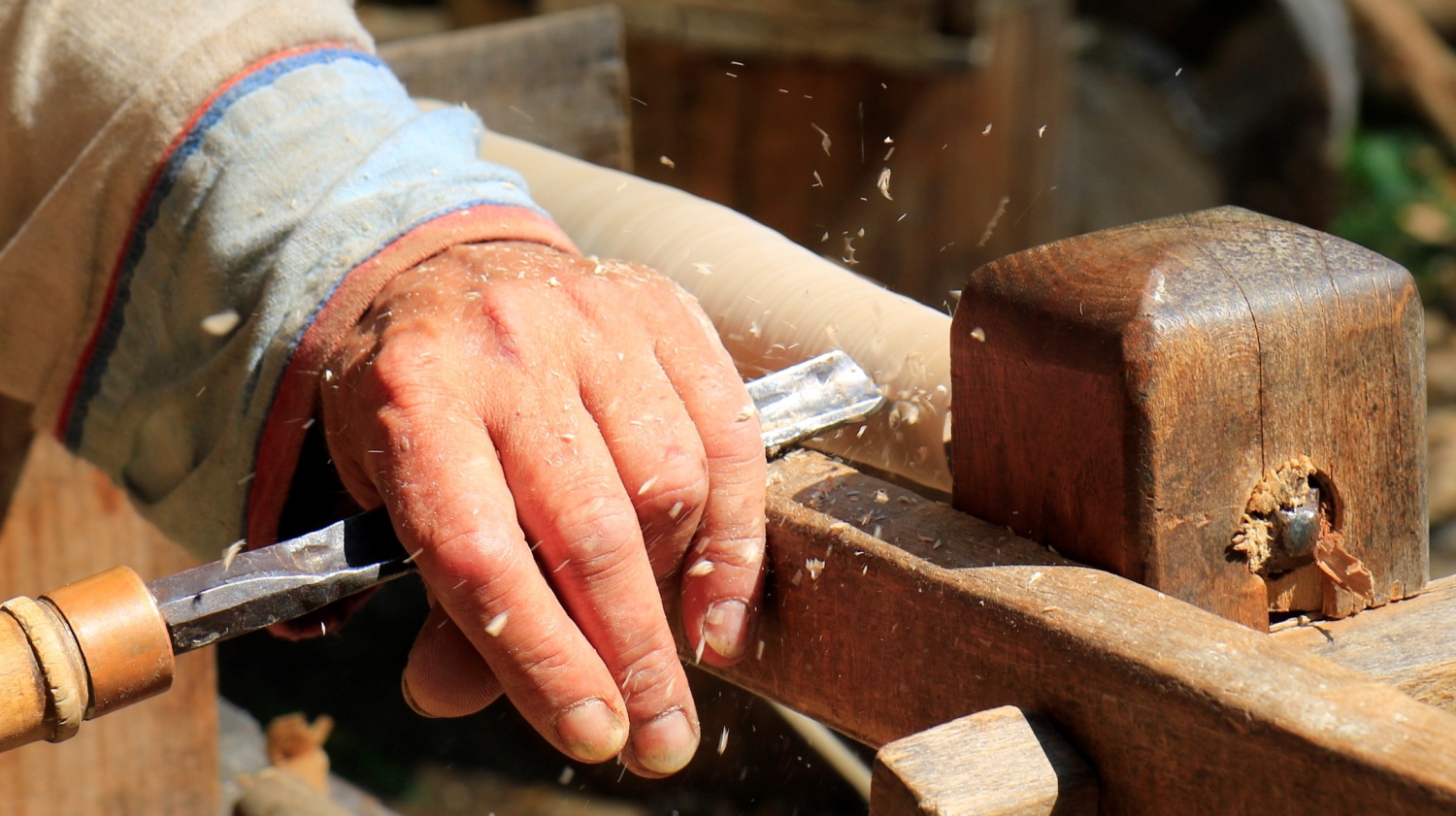 The elegance of traditional woodworking is matched only by its beauty. But the creative process is what pulls young people in and keeps then engaged, right from the start. In Part 1 of this innovative three-part series, you’ll learn why woodworking with hand tools is superior to power tools in youth programs, how to make a sturdy workbench, install beefy vices, and set-up proper lighting.
The elegance of traditional woodworking is matched only by its beauty. But the creative process is what pulls young people in and keeps then engaged, right from the start. In Part 1 of this innovative three-part series, you’ll learn why woodworking with hand tools is superior to power tools in youth programs, how to make a sturdy workbench, install beefy vices, and set-up proper lighting.
Woodworking with Hand Tools, Part II
Tools and Supplies
Dr. Chris Thurber
 In Part 2 of this three-part series, Chris explains details of the 15 hand-tools and 5 supplies every traditional woodworker needs. From pencils to block planes and hammers to beeswax, you'll learn surprising facts about the 20 ingredients you’ll need to make every project in the EOT library, plus hundreds more. See how manual tools harness wood's beauty when handled skillfully.
In Part 2 of this three-part series, Chris explains details of the 15 hand-tools and 5 supplies every traditional woodworker needs. From pencils to block planes and hammers to beeswax, you'll learn surprising facts about the 20 ingredients you’ll need to make every project in the EOT library, plus hundreds more. See how manual tools harness wood's beauty when handled skillfully.
Woodworking with Hand Tools, Part III
Safety and Hacks
Dr. Chris Thurber
 Protecting your eyes, lungs, and hands is the foundation of shop safety. Unfortunately, most woodworkers neglect the protections and procedures that prolong life and limb. In Part 3 of this three-part series, take a detailed look at safety glasses, sniff around for good dusk masks, and slice through the myths about cut gloves. Bonus footage includes Chris's Top-Ten shop hacks!
Protecting your eyes, lungs, and hands is the foundation of shop safety. Unfortunately, most woodworkers neglect the protections and procedures that prolong life and limb. In Part 3 of this three-part series, take a detailed look at safety glasses, sniff around for good dusk masks, and slice through the myths about cut gloves. Bonus footage includes Chris's Top-Ten shop hacks!
Youth Inspired
How Kids Want You to Behave
Dr. Chris Thurber
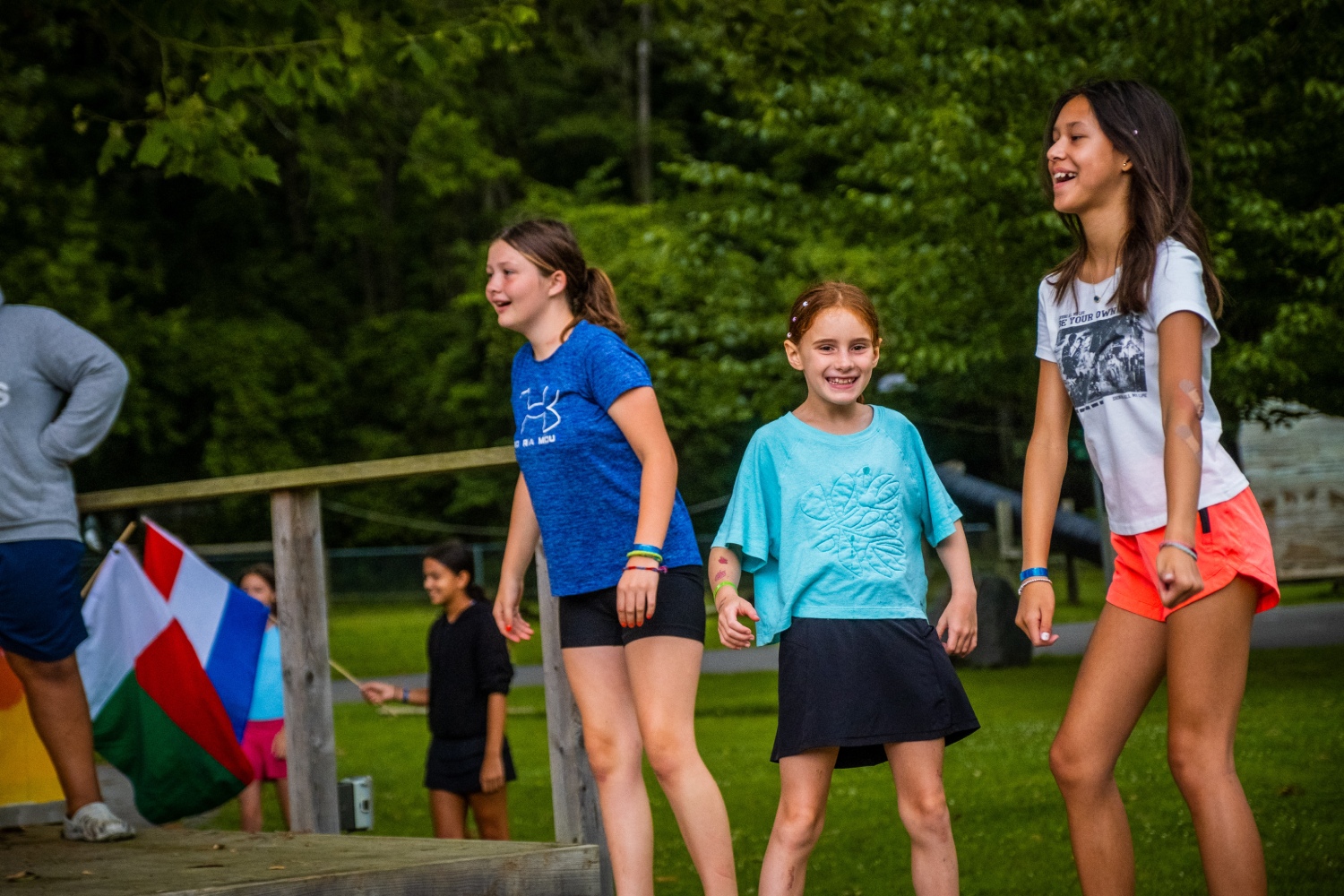 Of all the staff training content available, the testimonials in this module are the most indispensable. The authentic voices of children and teens in this clip anthology provide candid advice to adults about the importance of balance, rules, having fun, keeping your cool and—above all—spending time with young people. Learn from experience what leadership practices separate the best from the rest.
Of all the staff training content available, the testimonials in this module are the most indispensable. The authentic voices of children and teens in this clip anthology provide candid advice to adults about the importance of balance, rules, having fun, keeping your cool and—above all—spending time with young people. Learn from experience what leadership practices separate the best from the rest.
Attention Deficit Hyperactivity Disorder
Promoting Compliance and Focus
Dr. Sarah Levin Allen
 With the right set of leadership skills and treatments, ADHD can be effectively managed in any youth program. That said, staff must realize that all young people are energetic (and sometimes hyperactive), have trouble paying attention and get distracted. This scientific module provides thirteen universal tools that promote attention and minimize distracting, hyperactive behavior. A must-see video.
With the right set of leadership skills and treatments, ADHD can be effectively managed in any youth program. That said, staff must realize that all young people are energetic (and sometimes hyperactive), have trouble paying attention and get distracted. This scientific module provides thirteen universal tools that promote attention and minimize distracting, hyperactive behavior. A must-see video.
Autism Spectrum Disorder
Strategies for Leadership and Connection
Sylvia van Meerten
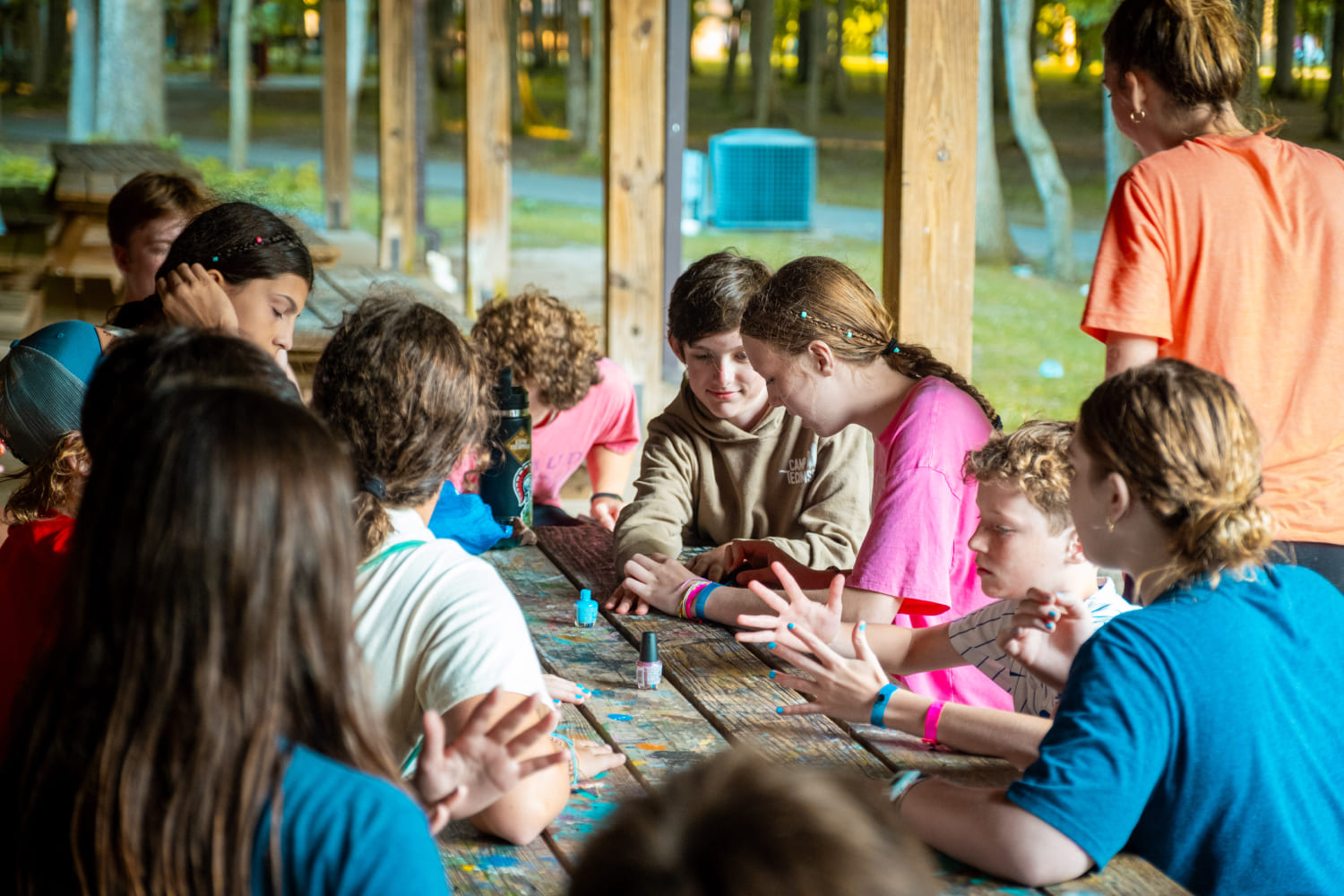 Communication difficulties, focused interests and insistence on sameness can be challenging to manage. Unless you have the right skills. By sampling real behavioral and emotional challenges at a camp for ASD youth, this compelling module teaches best practices for reducing anxiety, promoting compliance, managing meltdowns and communicating effectively with autistic children.
Communication difficulties, focused interests and insistence on sameness can be challenging to manage. Unless you have the right skills. By sampling real behavioral and emotional challenges at a camp for ASD youth, this compelling module teaches best practices for reducing anxiety, promoting compliance, managing meltdowns and communicating effectively with autistic children.
Bullies and Targets, Part I
Prevention
Luci Macli
 Did you know that about 75% of boys and girls report being both bullies and targets at one time or another? That means deciphering who the “real” bully is can be difficult. But what if you could prevent bullying altogether? This revealing module shows how staff can create a nearly bully-free culture with a warm tone, firm expectations, vigilant presence, and kind example.
Did you know that about 75% of boys and girls report being both bullies and targets at one time or another? That means deciphering who the “real” bully is can be difficult. But what if you could prevent bullying altogether? This revealing module shows how staff can create a nearly bully-free culture with a warm tone, firm expectations, vigilant presence, and kind example.
Bullies and Targets, Part II
Intervention
Betsy Martin
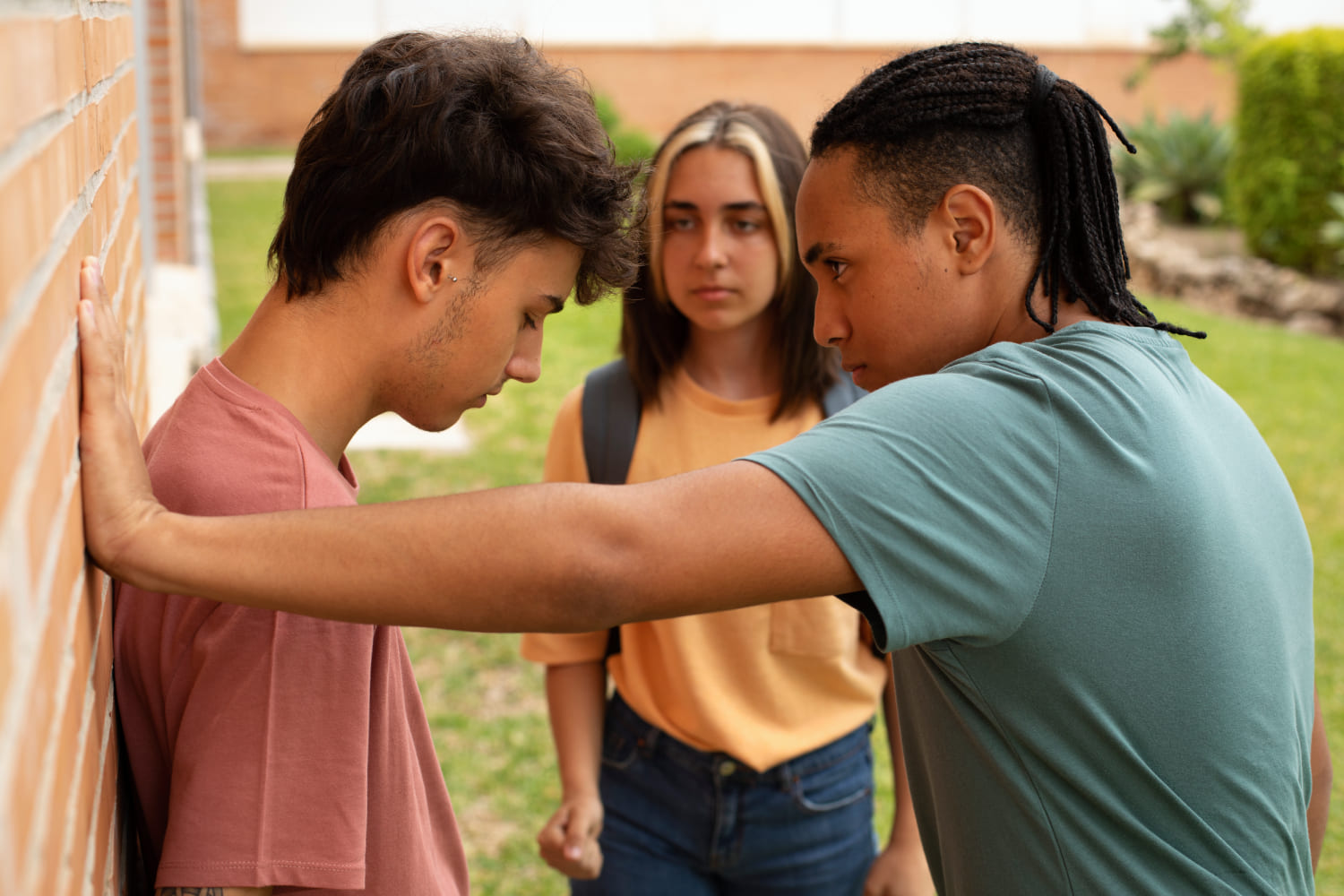 Some bullying behavior is so violent that dismissal is required. For everything else, you’ll need the strong discipline tools in this module. Research shows that zero-tolerance policies fail to teach social skills. Instead, enlightened intervention for bullying requires consistent enforcement of your rules, thoughtful teaching of peaceful interaction, and praise for good behavior.
Some bullying behavior is so violent that dismissal is required. For everything else, you’ll need the strong discipline tools in this module. Research shows that zero-tolerance policies fail to teach social skills. Instead, enlightened intervention for bullying requires consistent enforcement of your rules, thoughtful teaching of peaceful interaction, and praise for good behavior.
Children with Verbal Learning Disabilities
Using Language to Boost Social Connection
Cindy Ziobrowski
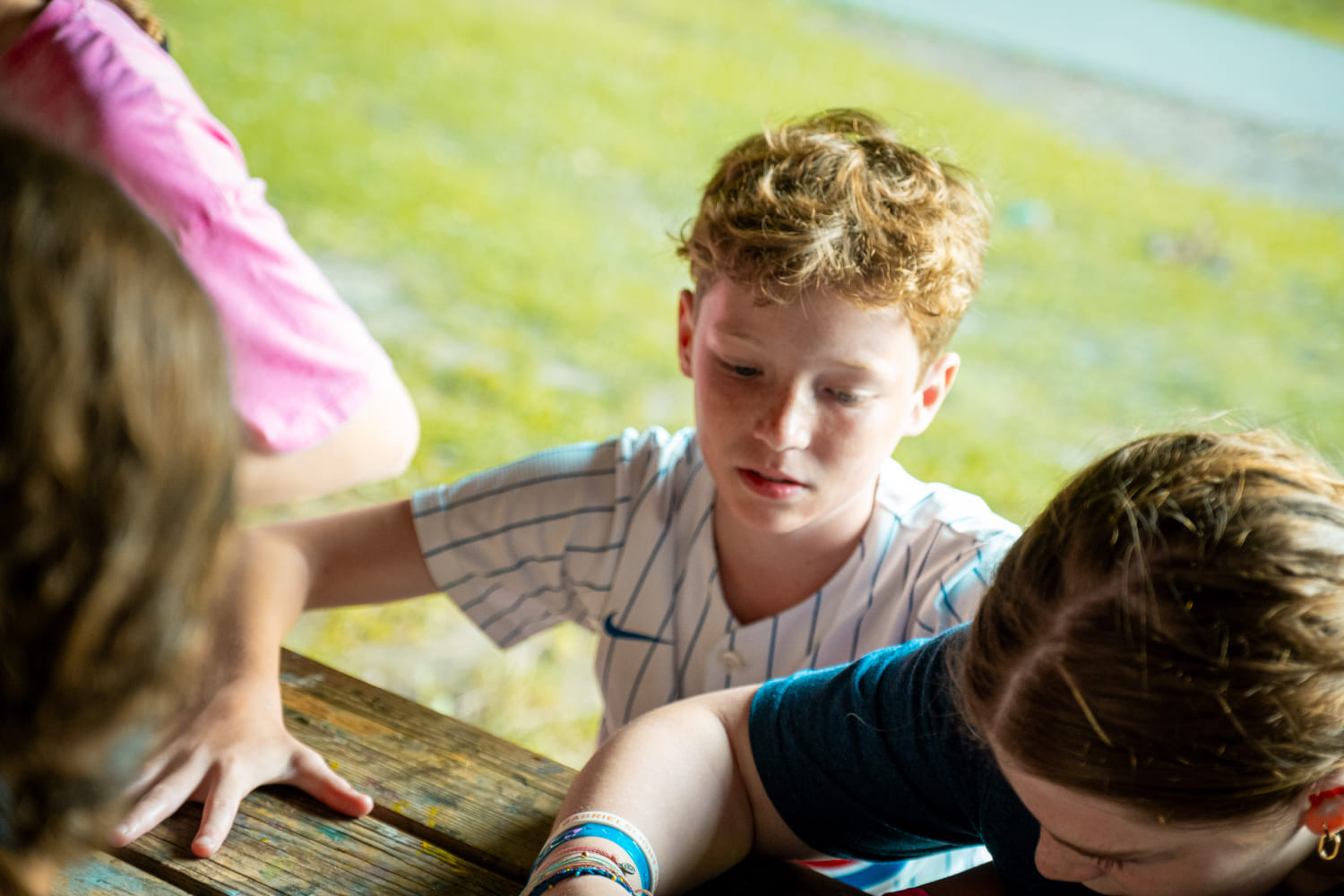 All children benefit from refining their communication and social skills, but how can you teach campers to use their words in ways that build connections with others? This specialized module showcases ways to capitalize on your camp's rich social environment and boost campers' tact, friendship skills, and language skills. This is the perfect toolkit for working with young, immature, or developmentally delayed youth.
All children benefit from refining their communication and social skills, but how can you teach campers to use their words in ways that build connections with others? This specialized module showcases ways to capitalize on your camp's rich social environment and boost campers' tact, friendship skills, and language skills. This is the perfect toolkit for working with young, immature, or developmentally delayed youth.
Cultural Exchange Excellence
Top Ten Tips for International Staff
Jeff Daly
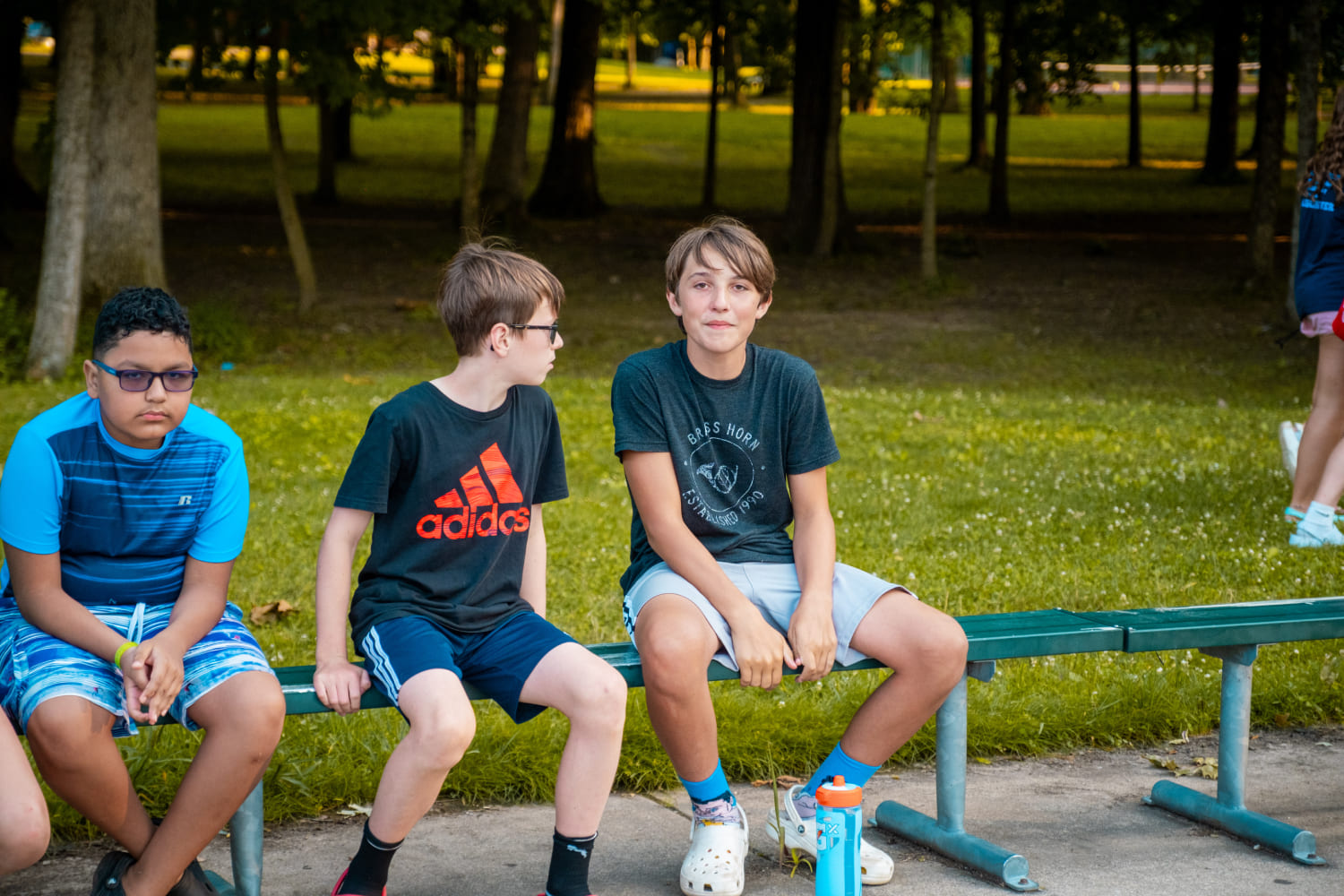 Prevent homesickness, promote adjustment, and increase excellence with this insider's guide for foreign staff. Whether your cultural exchange participants are working on the waterfront, the fields, the kitchen, or the courts, they will love hearing Scott's hilarious take on The Look, The Accent, The Food, The Drink, The Tongue, The Glamour, The Pits, The Parents, The Sex (spoiler alert), and The End.
Prevent homesickness, promote adjustment, and increase excellence with this insider's guide for foreign staff. Whether your cultural exchange participants are working on the waterfront, the fields, the kitchen, or the courts, they will love hearing Scott's hilarious take on The Look, The Accent, The Food, The Drink, The Tongue, The Glamour, The Pits, The Parents, The Sex (spoiler alert), and The End.
Good Sportsmanship vs. Foul Play
You Make the Call
Dr. Joel Haber
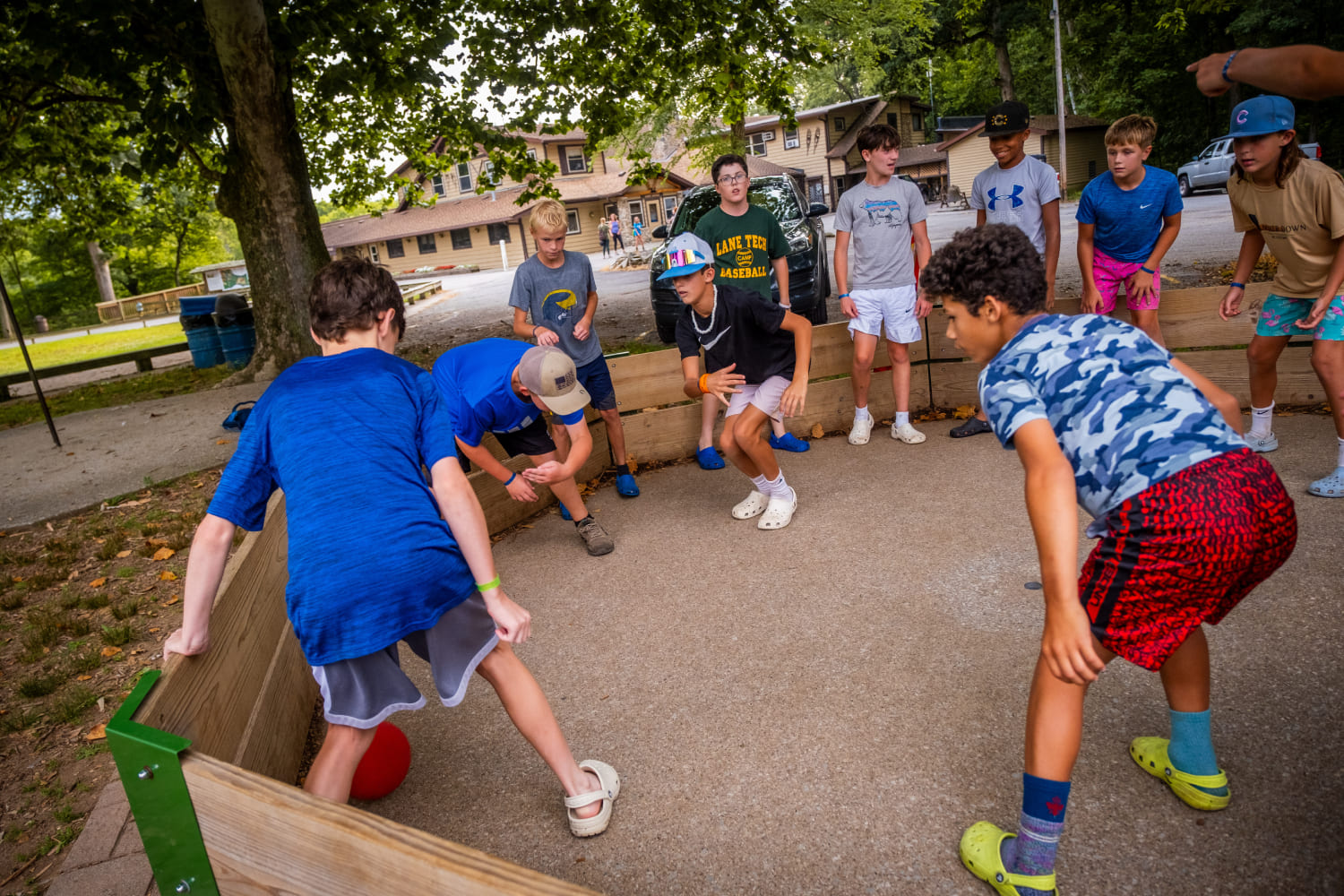 Pop culture may celebrate "trash talk" or "dissing" in sports, but just because a behavior is common doesn't mean it's healthy. Day camps and resident camps are ideal places to create nurturing, alternative cultures. The scenarios in this module teach staff to distinguish good from bad sportsmanship and use positive motivation to pick teams fairly, prevent foul play, and promote healthy teamwork.
Pop culture may celebrate "trash talk" or "dissing" in sports, but just because a behavior is common doesn't mean it's healthy. Day camps and resident camps are ideal places to create nurturing, alternative cultures. The scenarios in this module teach staff to distinguish good from bad sportsmanship and use positive motivation to pick teams fairly, prevent foul play, and promote healthy teamwork.
Helping Kids Fit In
Accelerating Social Awareness and Development
Meg Clark
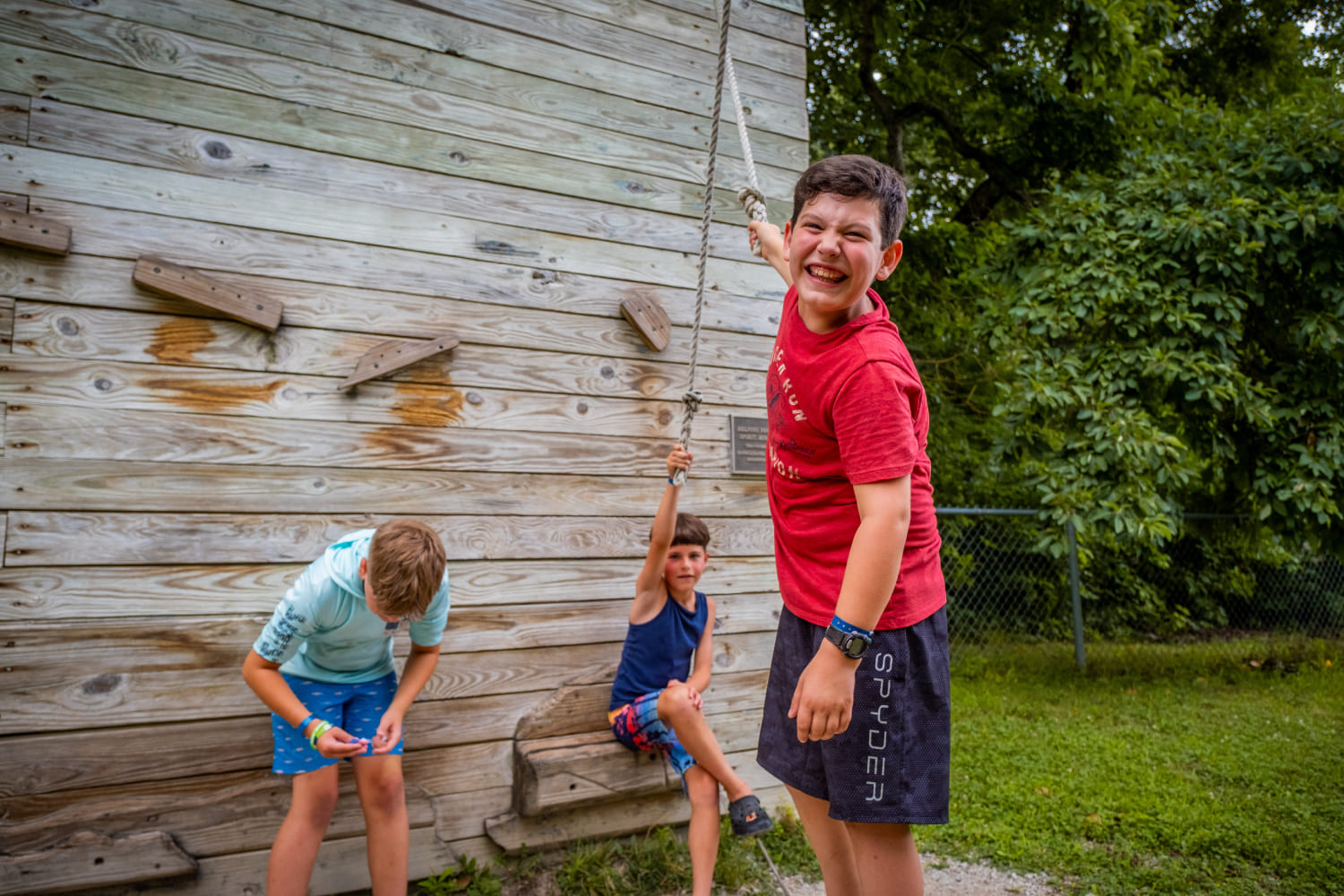 One of the things young people like most about camp is the freedom to be themselves. In that spirit, most social blunders at camp get laughed off or politely ignored. But sometimes, a camper's behavior becomes an obstacle to forming lasting friendships. This module helps ensure that all campers get sensitive and effective coaching from staff.
One of the things young people like most about camp is the freedom to be themselves. In that spirit, most social blunders at camp get laughed off or politely ignored. But sometimes, a camper's behavior becomes an obstacle to forming lasting friendships. This module helps ensure that all campers get sensitive and effective coaching from staff.
Homesickness at Day & Resident Camps, Part I
Best Practices for Youth Leaders
Dr. Chris Thurber
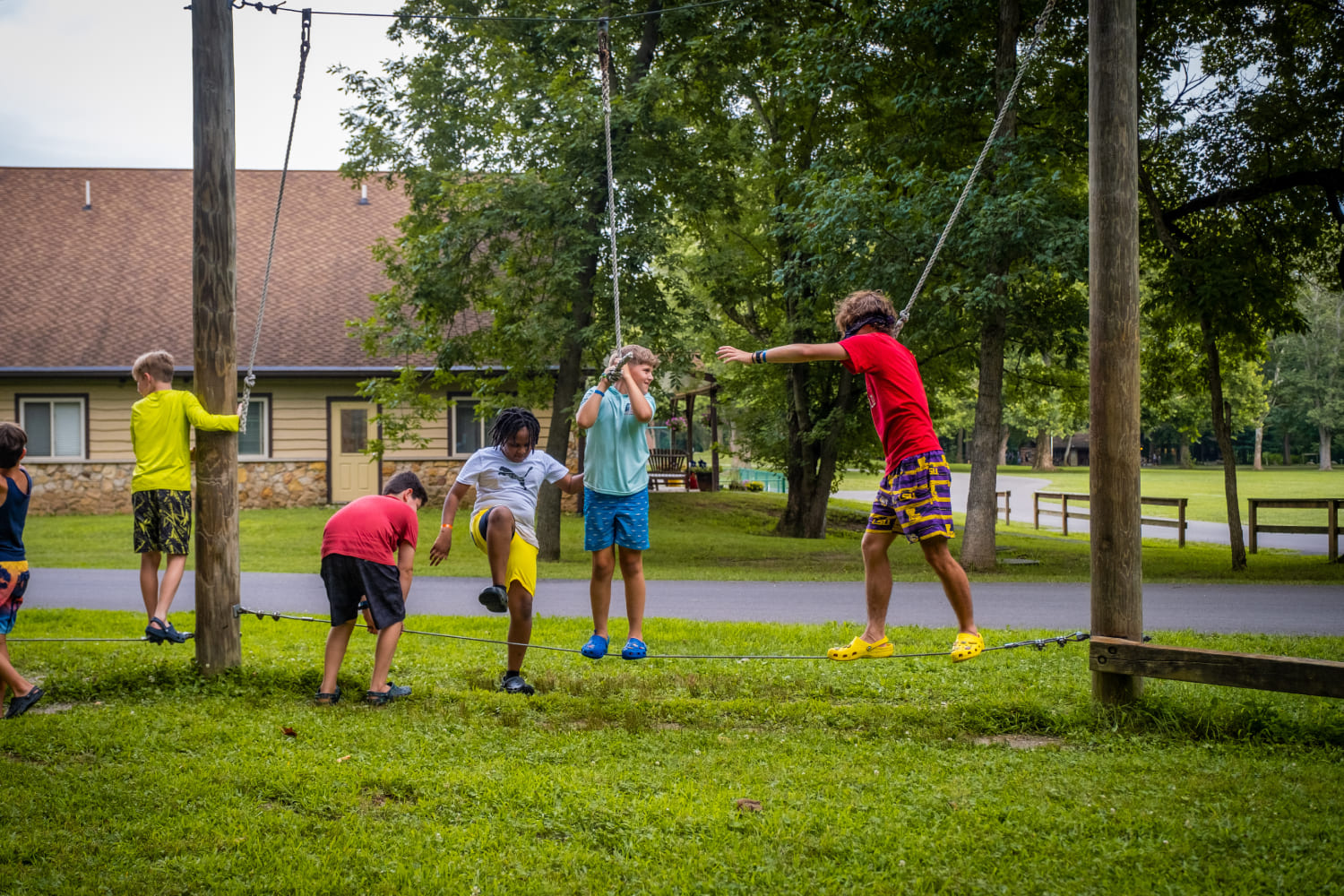 Nearly all people miss things about home when they’re away. Left untreated, intense homesickness can ruin a child’s stay and soak up staff time. Here in Part I of this series you’ll find the essential tools for recognizing homesickness and treating it effectively in any setting. Build confidence that you can help campers cope and have a great time away from home.
Nearly all people miss things about home when they’re away. Left untreated, intense homesickness can ruin a child’s stay and soak up staff time. Here in Part I of this series you’ll find the essential tools for recognizing homesickness and treating it effectively in any setting. Build confidence that you can help campers cope and have a great time away from home.
Homesickness at Day & Resident Camps, Part II
Supportive Conversation Demonstration
Dr. Chris Thurber
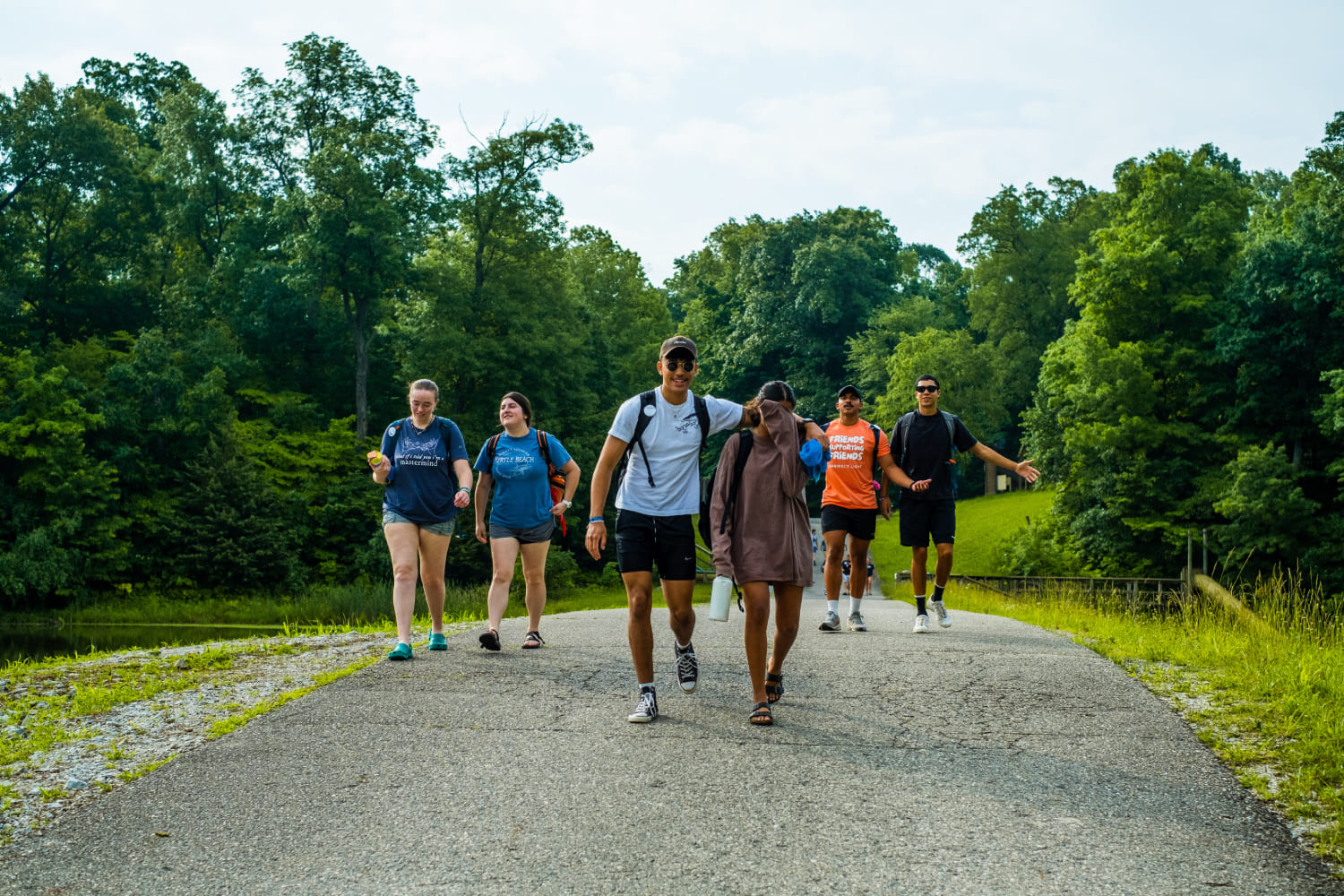 Well-meaning staff commonly make the mistake of extending conversations about homesickness to an unhealthy duration. Part II of this module series contains an entire, unedited conversation with an actual homesick camper. Although every supportive conversation with a homesick boy or girl is different, the format in this compelling module serves as a valuable template.
Well-meaning staff commonly make the mistake of extending conversations about homesickness to an unhealthy duration. Part II of this module series contains an entire, unedited conversation with an actual homesick camper. Although every supportive conversation with a homesick boy or girl is different, the format in this compelling module serves as a valuable template.
Listening with More Than Ears
Empathy for Youth Leaders
David Conley
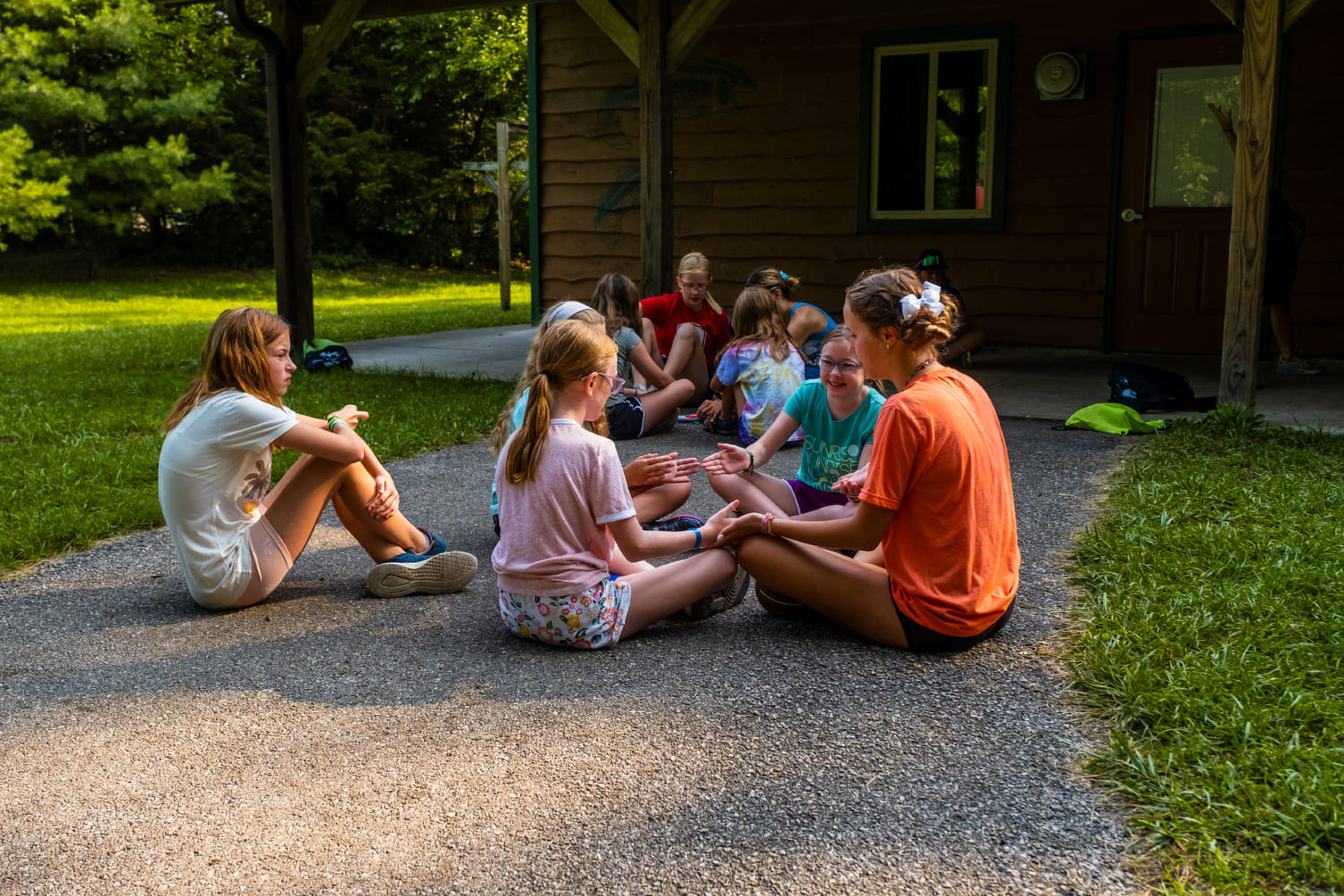 When leaders show a deep understanding of what others are experiencing, that’s empathy. And empathy creates trust, creativity, and happiness. Using realistic examples from a variety of youth programs, this module brings empathy to life and demonstrates how restraint, reflection, rephrasing, labeling, and summarizing without judgment coalesce to form effective, empathic listening.
When leaders show a deep understanding of what others are experiencing, that’s empathy. And empathy creates trust, creativity, and happiness. Using realistic examples from a variety of youth programs, this module brings empathy to life and demonstrates how restraint, reflection, rephrasing, labeling, and summarizing without judgment coalesce to form effective, empathic listening.
Preventing Gossip and Relational Aggression
Toward Emotional Safety and Inclusiveness
Dr. Joel Haber
 Some people assume that gossip, rumors, and other "mean girl" behavior is just part of growing up. The fact is, this kind of relational aggression can happen among girls and boys—even among male and female staff—and no one should passively accept it as normal. This module, hosted by an international expert on bullying, helps staff understand what relational aggression looks like and how to stop it.
Some people assume that gossip, rumors, and other "mean girl" behavior is just part of growing up. The fact is, this kind of relational aggression can happen among girls and boys—even among male and female staff—and no one should passively accept it as normal. This module, hosted by an international expert on bullying, helps staff understand what relational aggression looks like and how to stop it.
Skillful Discipline, Part I
Creative Behavior Management and Alternatives to Punishment
Evan Heltay
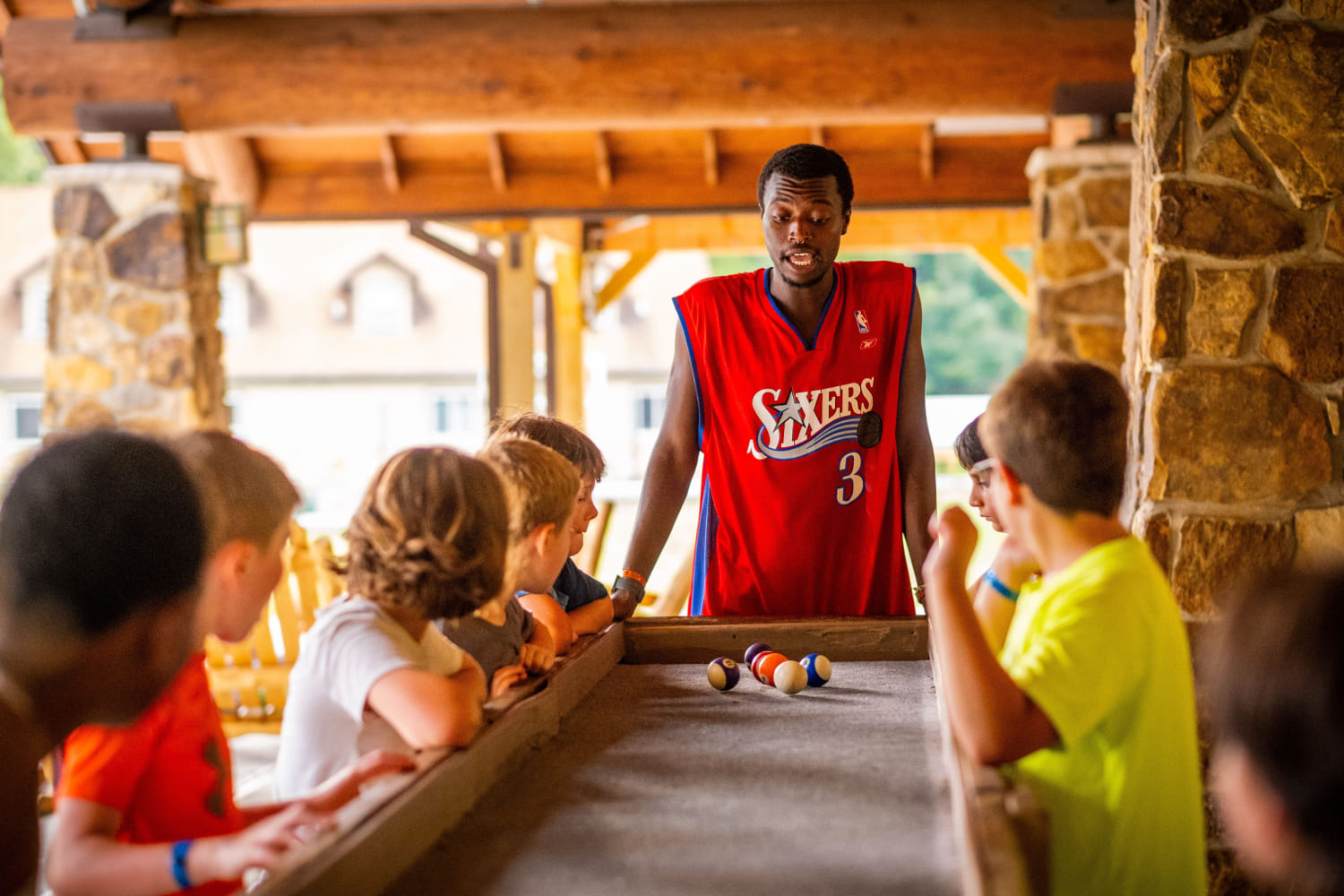 The biggest concern that every new staff member has is that the children won't listen and follow directions. No wonder! If young people aren't compliant, your job gets pretty tough. This innovative module illustrates the six prevention strategies you can use to promote good behavior. Then, you'll learn six core behavior management strategies to use for any misbehavior.
The biggest concern that every new staff member has is that the children won't listen and follow directions. No wonder! If young people aren't compliant, your job gets pretty tough. This innovative module illustrates the six prevention strategies you can use to promote good behavior. Then, you'll learn six core behavior management strategies to use for any misbehavior.
Skillful Discipline, Part II
Advanced Behavior Management and Alternatives to Punishment
Evan Heltay
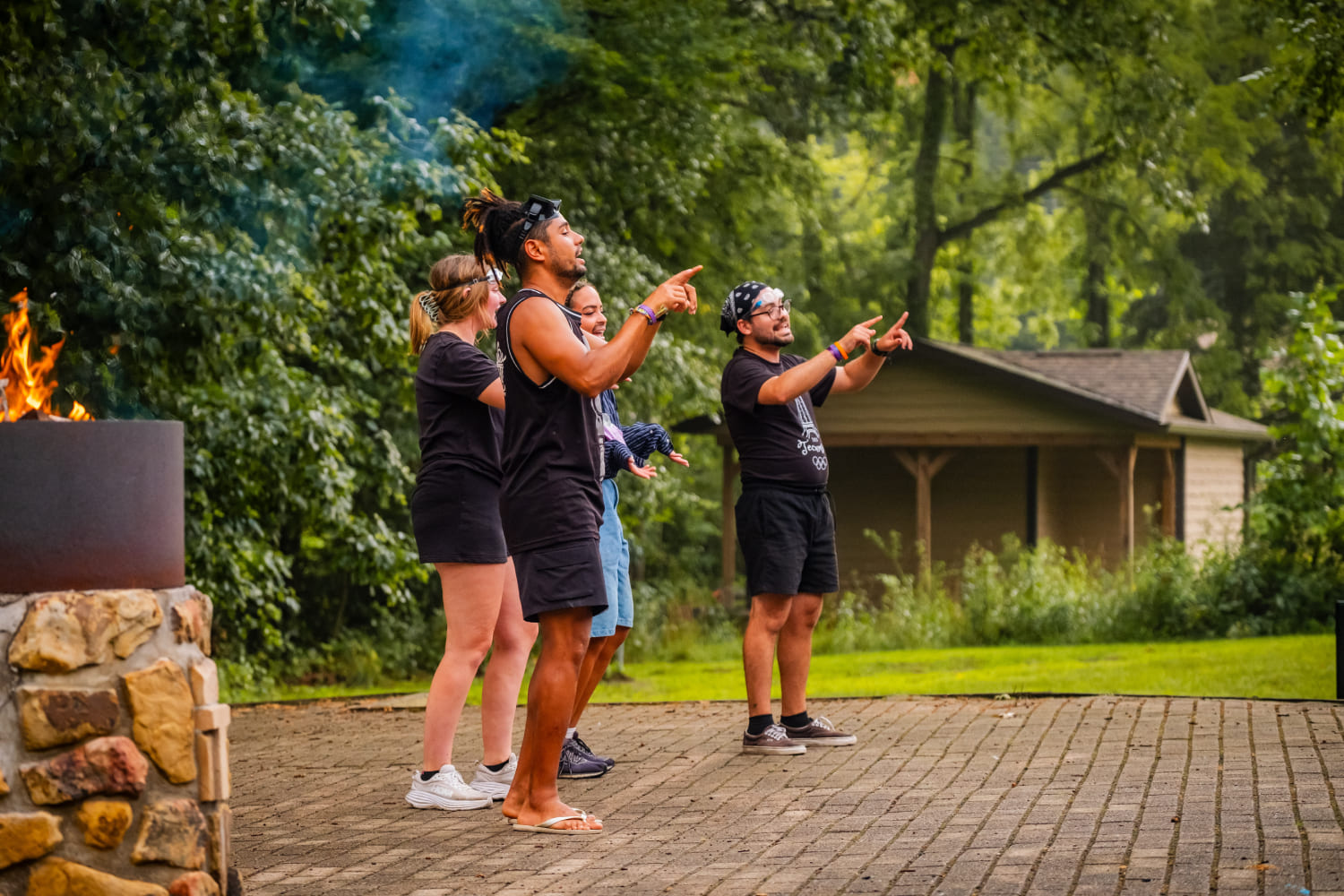 After mastering the powerful strategies in Skillful Discipline Part I, you’ll be ready to expand your behavior management repertoire. This practical module includes seven more field-tested prevention techniques that promote good behavior, plus seven commanding interventions for misbehaviors. Fourteen fresh approaches that promote durable behavior change.
After mastering the powerful strategies in Skillful Discipline Part I, you’ll be ready to expand your behavior management repertoire. This practical module includes seven more field-tested prevention techniques that promote good behavior, plus seven commanding interventions for misbehaviors. Fourteen fresh approaches that promote durable behavior change.
Suicidality in Youth Programs, Part I
Assessment and Support Basics
David Conley
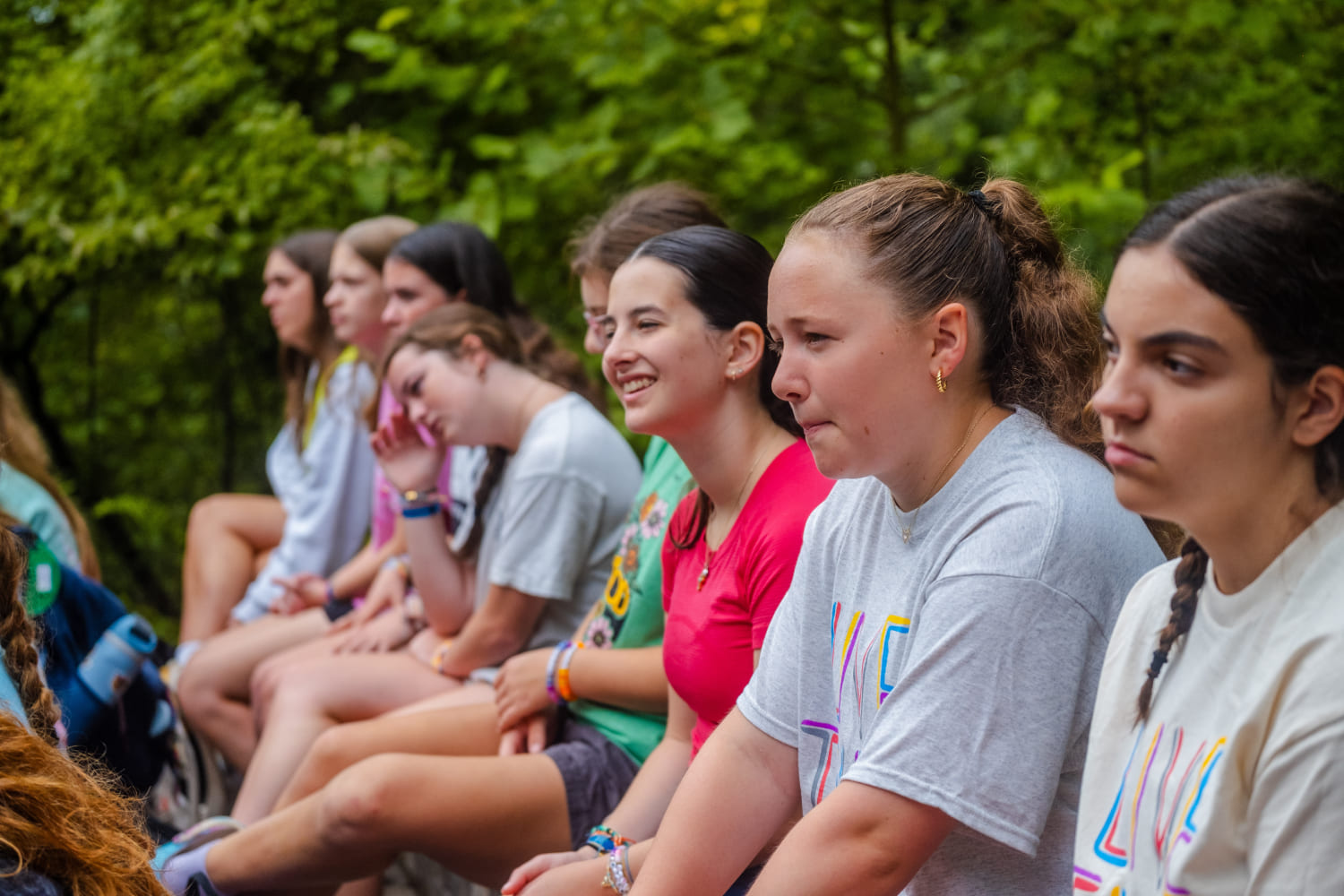 Lay assessment of suicidality requires patience, empathy, a clear explanation of confidentiality, and a timely referral to a qualified professional. Although rare in youth, suicidal thoughts, feelings, and behaviors are urgent matters for which all leaders need to be ready. Part 1 of this module features a guided, step-by-step case example of a conversation with a suicidal youngster.
Lay assessment of suicidality requires patience, empathy, a clear explanation of confidentiality, and a timely referral to a qualified professional. Although rare in youth, suicidal thoughts, feelings, and behaviors are urgent matters for which all leaders need to be ready. Part 1 of this module features a guided, step-by-step case example of a conversation with a suicidal youngster.
Suicidality in Youth Programs, Part II
Sidestepping Support Pitfalls
David Conley
 Talking about suicide makes most youth leaders uncomfortable. But avoiding the topic will leave you unprepared. To better equip you to provide support to a suicidal child or teen, Part 2 of this module demonstrates honest solutions to common pitfalls of lay assessment: avoiding the subject of suicide; minimizing expressions of distress; and overstating the parameters of confidentiality.
Talking about suicide makes most youth leaders uncomfortable. But avoiding the topic will leave you unprepared. To better equip you to provide support to a suicidal child or teen, Part 2 of this module demonstrates honest solutions to common pitfalls of lay assessment: avoiding the subject of suicide; minimizing expressions of distress; and overstating the parameters of confidentiality.
15 Passenger Van Safety
Professional Driving for Youth Leaders
Dr. Chris Thurber
 15-Passenger vans have unique handling characteristics that require special driving techniques and an understanding of proper weight distribution. This extended module reviews the essential pre-flight checks drivers must perform before transporting children, fundamental operator safety practices, and the proper way to load and drive a 15-passenger van. These detailed demonstrations are the perfect prelude to on-road practice.
15-Passenger vans have unique handling characteristics that require special driving techniques and an understanding of proper weight distribution. This extended module reviews the essential pre-flight checks drivers must perform before transporting children, fundamental operator safety practices, and the proper way to load and drive a 15-passenger van. These detailed demonstrations are the perfect prelude to on-road practice.
Active Lifeguarding
Preparation, Scanning, and Practice
Dr. Chris Thurber
 The camp tradition of hiring newly certified lifeguards without real-world experience is woefully inadequate. Inexperienced lifeguards are often poorly equipped, fail to scan properly, and neglect regular practice of emergency action plans. This crucial module teaches staff how to prepare for their work as lifeguards, scan for distressed or drowning campers, and practice skills and drills. A safety essential.
The camp tradition of hiring newly certified lifeguards without real-world experience is woefully inadequate. Inexperienced lifeguards are often poorly equipped, fail to scan properly, and neglect regular practice of emergency action plans. This crucial module teaches staff how to prepare for their work as lifeguards, scan for distressed or drowning campers, and practice skills and drills. A safety essential.
Alcohol Beverage Laws
Think Before You Drink
Jack Erler, Esq
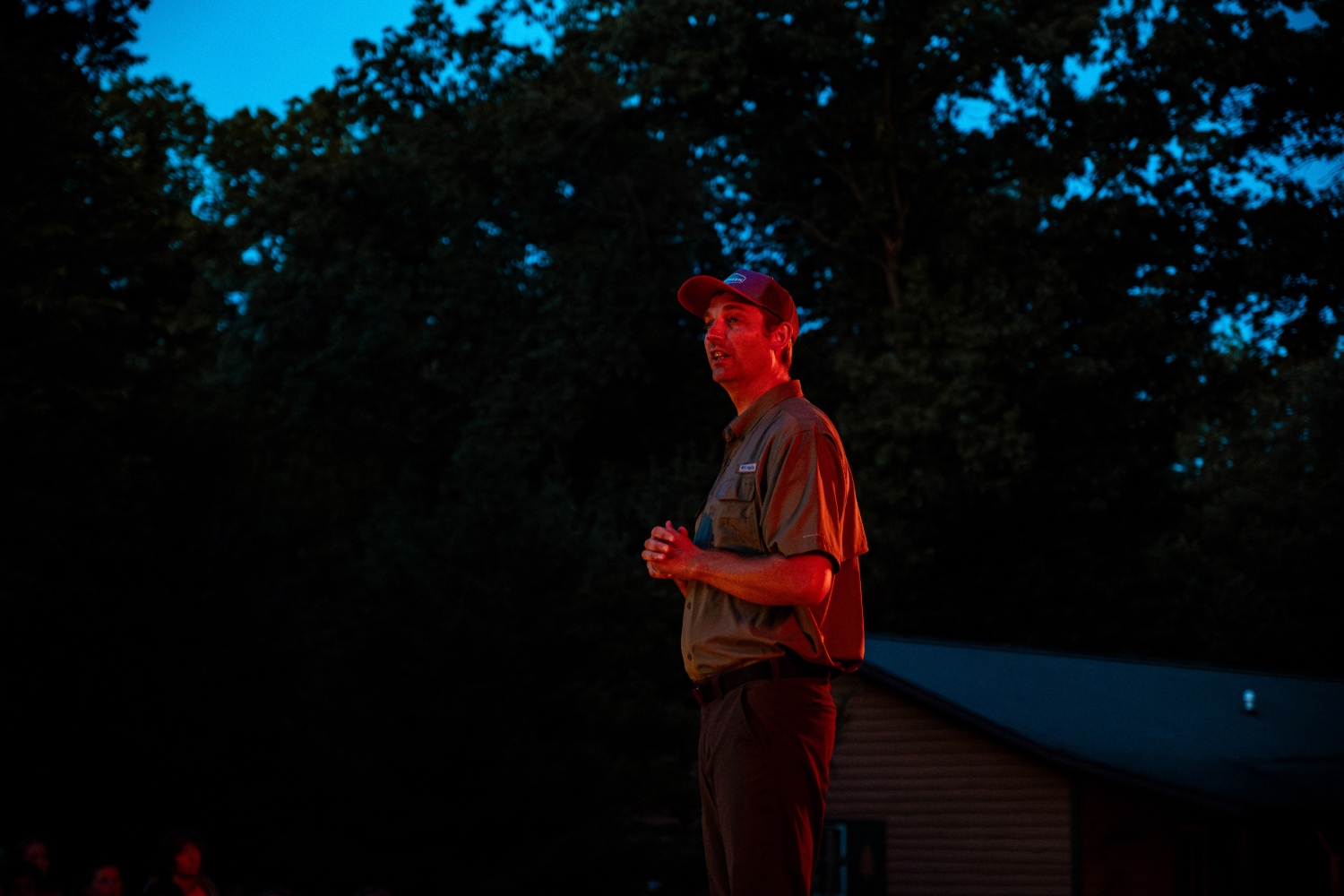 Each year, talented youth leaders are arrested and dismissed for dangerous alcohol violations. Rather than regretting a poor decision this season, consider the solid recommendations in this sobering module: Obey the law; don’t ask other staff to break the law; avoid the liability of supplying alcohol to minors; appoint a designated driver; and know your consumption limits.
Each year, talented youth leaders are arrested and dismissed for dangerous alcohol violations. Rather than regretting a poor decision this season, consider the solid recommendations in this sobering module: Obey the law; don’t ask other staff to break the law; avoid the liability of supplying alcohol to minors; appoint a designated driver; and know your consumption limits.
Anaphylactic Emergencies
First Aid for Severe Allergies
Dr. Laura Blaisdell
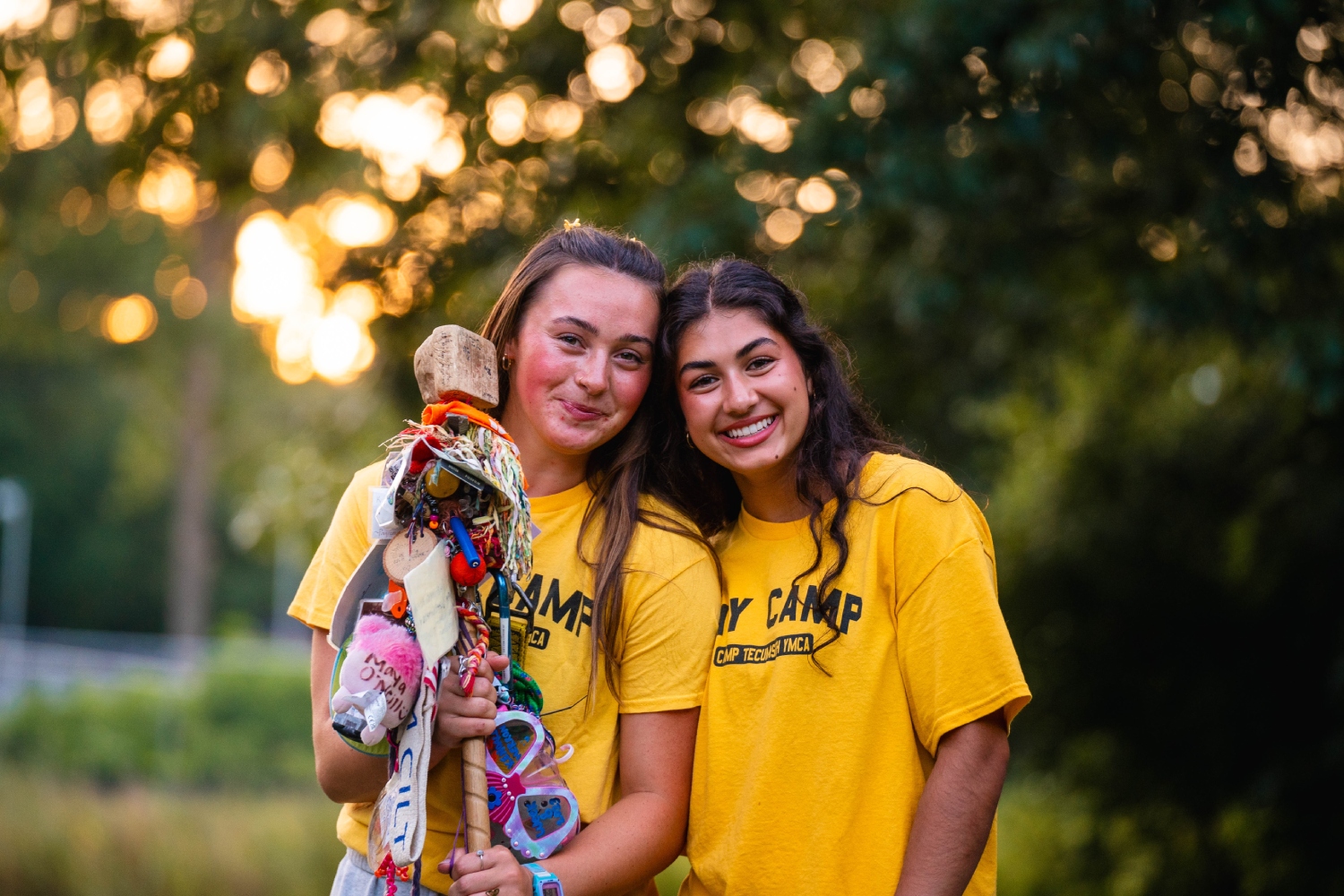 Your quick response to a severe allergic reaction could save a life this season. For that reason, all staff should know what anaphylaxis is, what the symptoms look like, how to treat it (with speed, calm and poise) and how best to coordinate care with health care professionals. Many associations and boards of health require this type of training so that all staff know—at a minimum—how to administer an EpiPen.
Your quick response to a severe allergic reaction could save a life this season. For that reason, all staff should know what anaphylaxis is, what the symptoms look like, how to treat it (with speed, calm and poise) and how best to coordinate care with health care professionals. Many associations and boards of health require this type of training so that all staff know—at a minimum—how to administer an EpiPen.
Child Welfare and Protection
International Best Practices and Policies
Dr. Chris Thurber & Jack Erler, Esq
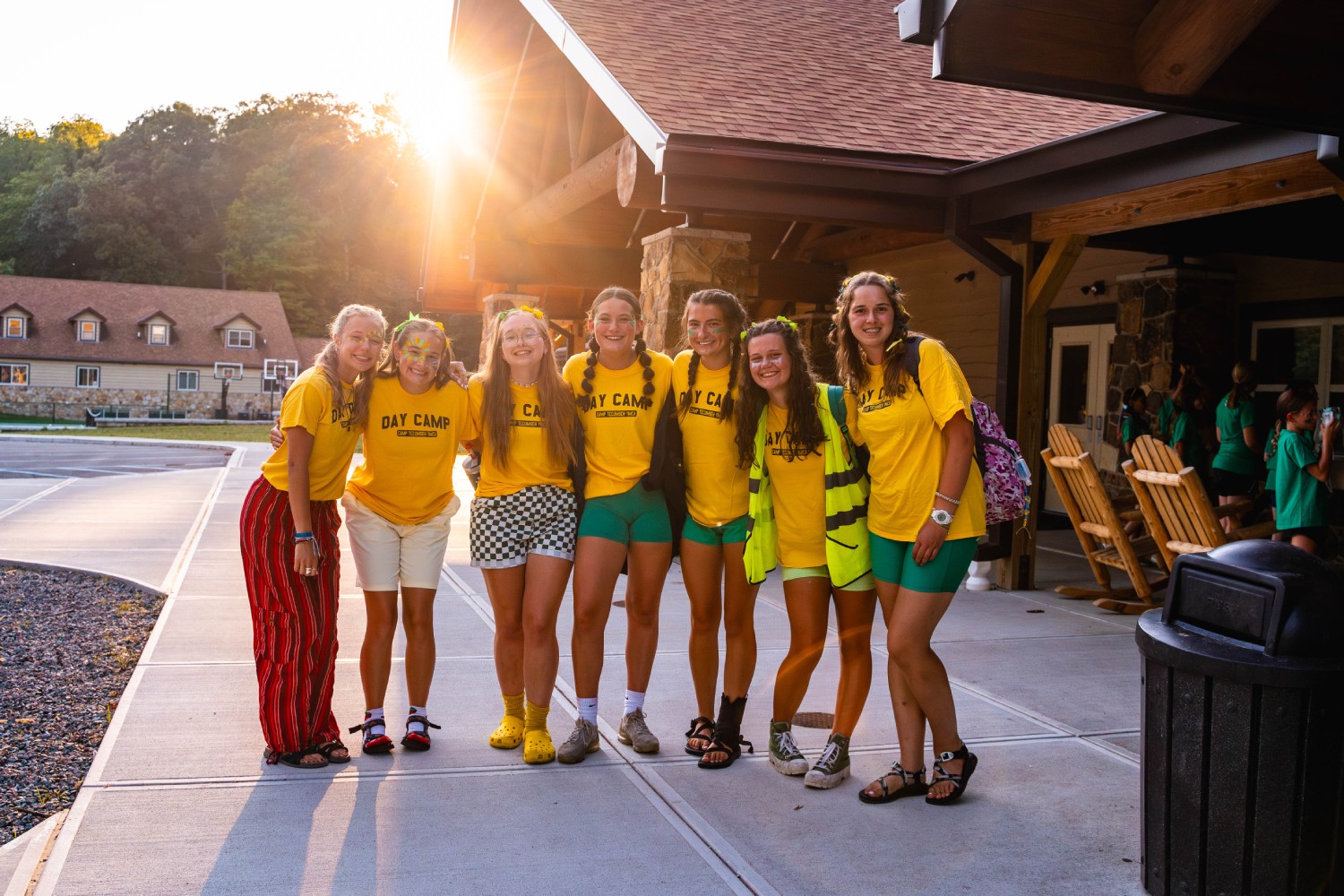 This extended course on child welfare and youth protection contains specialized content for staff at camps, schools, and other youth programs. Combining content from Dr. Christopher Thurber and attorney Jack Erler, this realistic module diminishes abuse potential by illustrating safe policies and sound practices with young people, as well as explaining ethical responses should you suspect abuse.
This extended course on child welfare and youth protection contains specialized content for staff at camps, schools, and other youth programs. Combining content from Dr. Christopher Thurber and attorney Jack Erler, this realistic module diminishes abuse potential by illustrating safe policies and sound practices with young people, as well as explaining ethical responses should you suspect abuse.
Confidentiality for Youth Professionals
It's Not All Secret
Dr. Sarah Levin Allen
 Camps encourage parents to disclose all private medical, mental health, and personal information that will help the camp staff and health care team work with each child. Yet few front-line staff understand the legal and ethical limits of confidentiality. This module clarifies exactly how to protect campers' privacy and take the necessary steps to prevent the unauthorized disclosure of confidential information.
Camps encourage parents to disclose all private medical, mental health, and personal information that will help the camp staff and health care team work with each child. Yet few front-line staff understand the legal and ethical limits of confidentiality. This module clarifies exactly how to protect campers' privacy and take the necessary steps to prevent the unauthorized disclosure of confidential information.
Cyberbullying and Sexting
What Youth Leaders Need to Know
Dr. Joel Haber
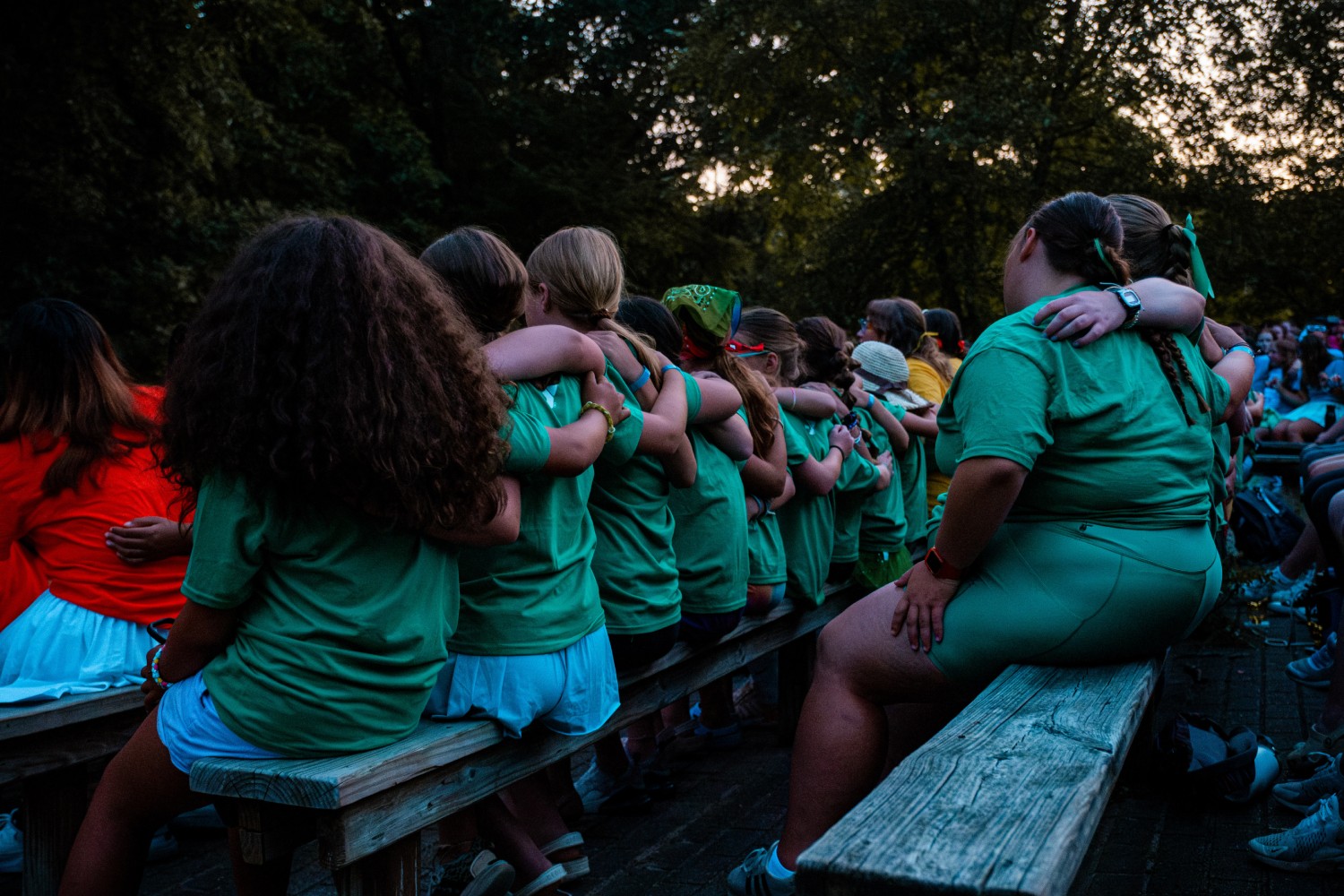 Computers and social networking sites help young people learn and connect. The virtual world also provides opportunities for cyberbullying and sexting—hostile or sexualized messages from one young person to another. This provocative, contemporary module shows how cyberbullying and sexting have infiltrated summer programs and exactly what to do about it.
Computers and social networking sites help young people learn and connect. The virtual world also provides opportunities for cyberbullying and sexting—hostile or sexualized messages from one young person to another. This provocative, contemporary module shows how cyberbullying and sexting have infiltrated summer programs and exactly what to do about it.
Duty of Care, Part I
The Concept of In Loco Parentis
Dan Weir
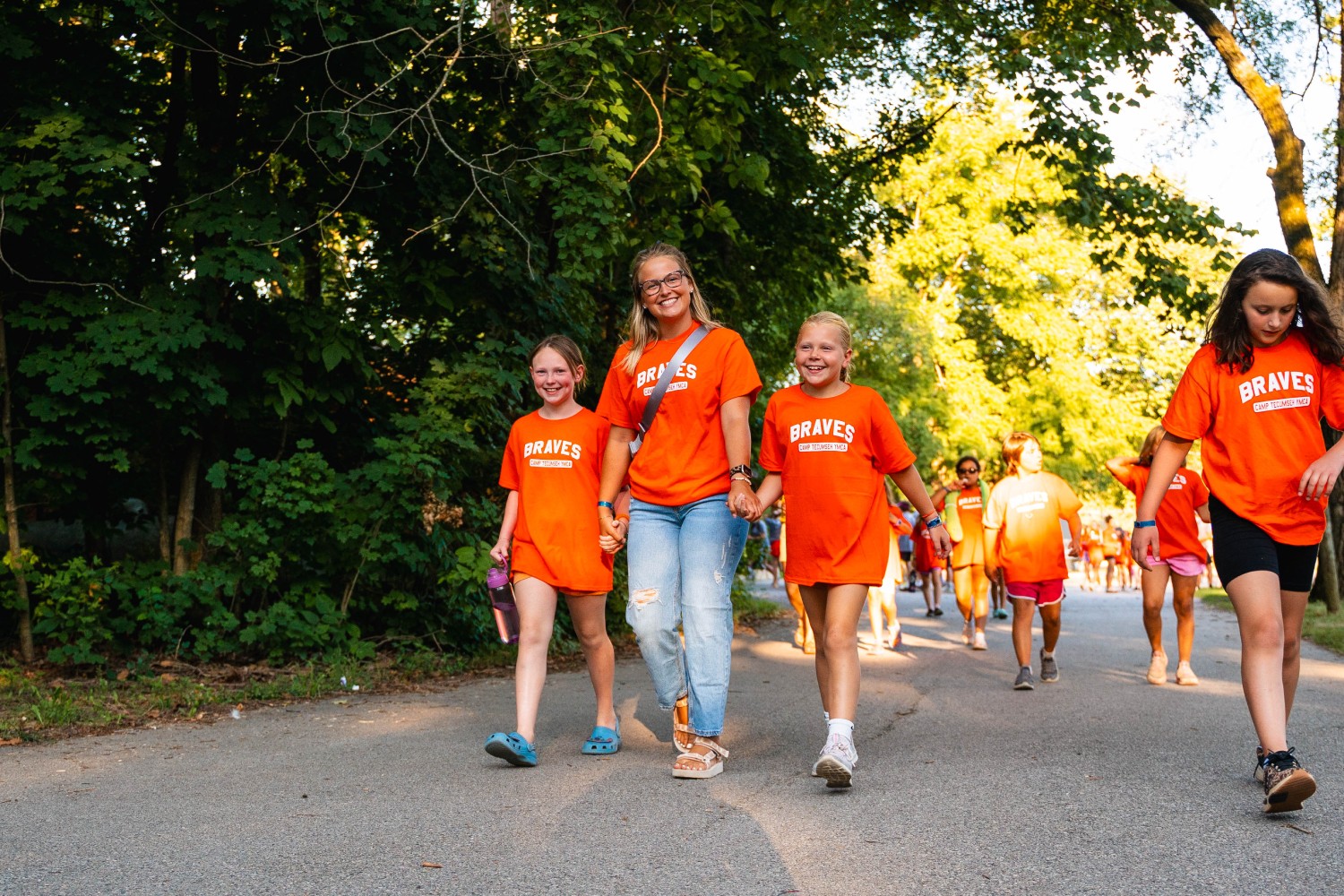 Think this is just a casual summer job? Think again. Your job as a youth leader includes the enormous responsibility to care for the participating children as if they were your own. You function in place of the parents, or in loco parentis. With startling clarity, this module highlights the responsibilities of all youth leaders and the grave consequences of neglecting that duty.
Think this is just a casual summer job? Think again. Your job as a youth leader includes the enormous responsibility to care for the participating children as if they were your own. You function in place of the parents, or in loco parentis. With startling clarity, this module highlights the responsibilities of all youth leaders and the grave consequences of neglecting that duty.
Duty of Care, Part II
Applied Strategies for Acting as In Loco Parentis
Dan Weir
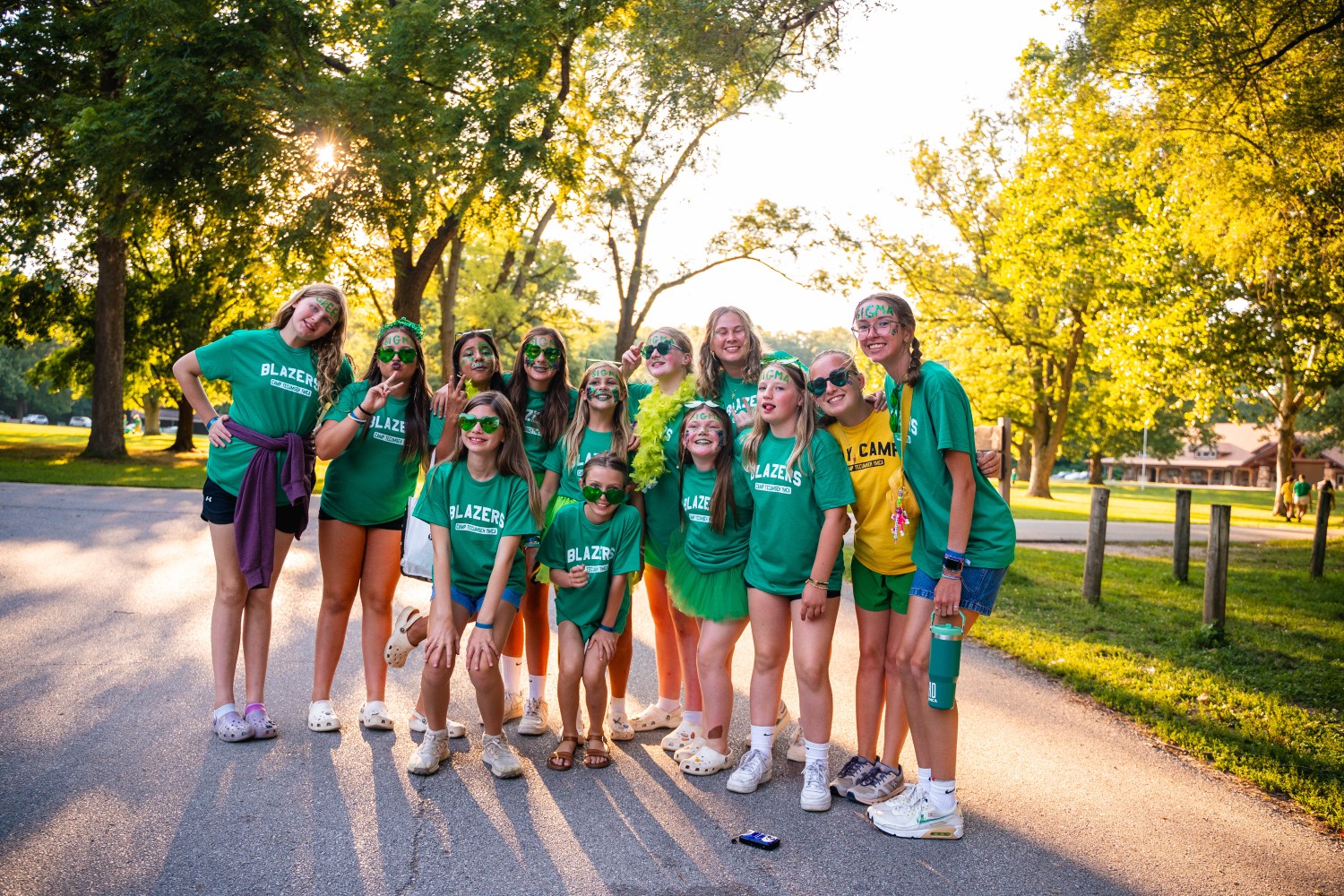 In Part I of this module series, you learned how duty of care concepts applied to your job as a youth leader. Here in Part II, you’ll learn seven essential strategies to help you act in a reasonably prudent manner in your role as in loco parentis: self-assessment, participant assessment, equipment assessment, risk analysis, continuous evaluation, go/no-go, and procedure compliance.
In Part I of this module series, you learned how duty of care concepts applied to your job as a youth leader. Here in Part II, you’ll learn seven essential strategies to help you act in a reasonably prudent manner in your role as in loco parentis: self-assessment, participant assessment, equipment assessment, risk analysis, continuous evaluation, go/no-go, and procedure compliance.
Fire Building and Fire Safety
Traditional Campfire Basics
Faith Evans
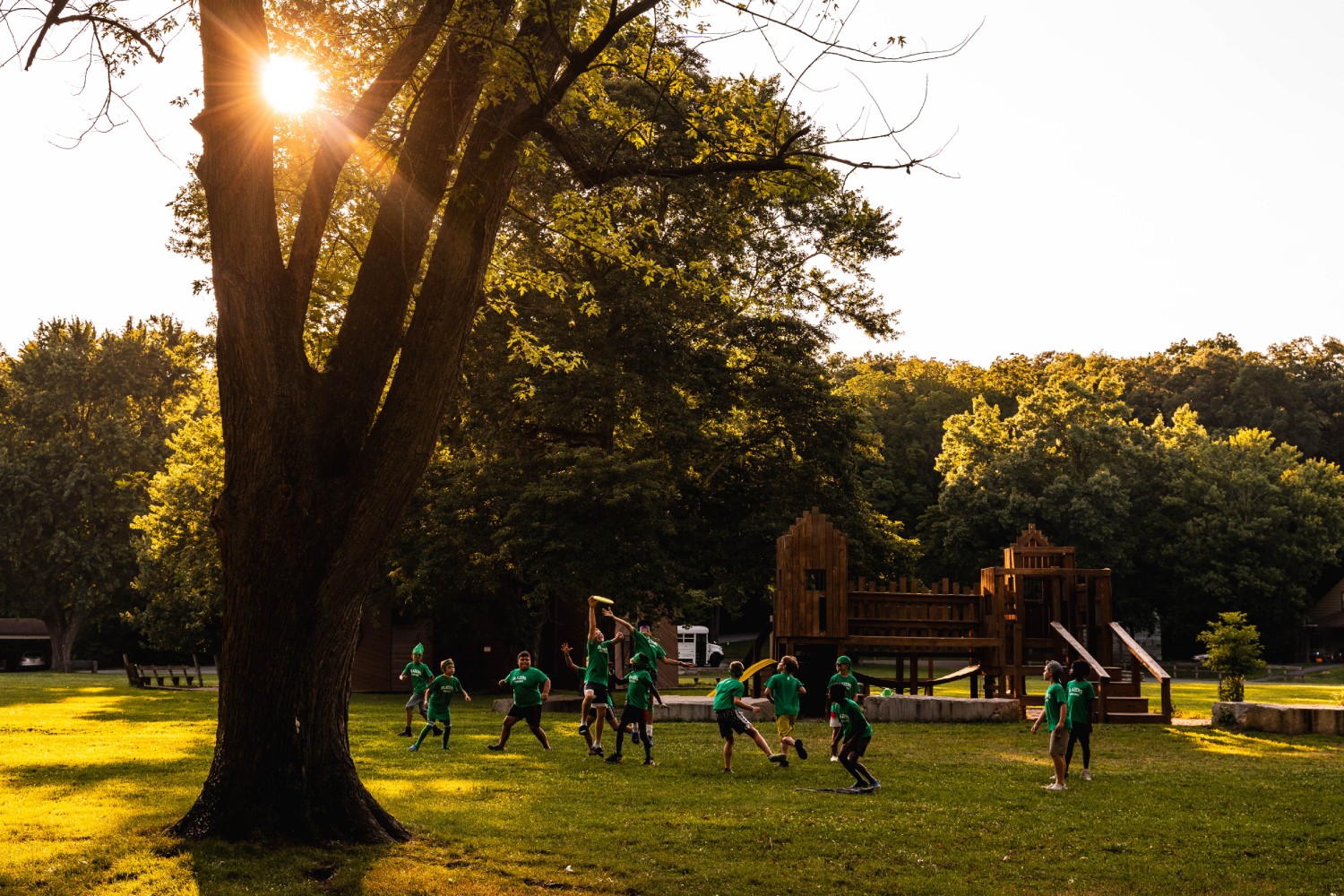 Nothing says camp like a fire, but few outdoor enthusiasts know how to build a safe fire that starts with a single match. In this enlightening (pun intended) module, viewers will learn how to prepare a fire ring, assemble tinder, kindling, and fuel wood, and then light, stoke, and properly extinguish a campfire…all in accordance with Leave-No-Trace practices. First aid for burns is also included.
Nothing says camp like a fire, but few outdoor enthusiasts know how to build a safe fire that starts with a single match. In this enlightening (pun intended) module, viewers will learn how to prepare a fire ring, assemble tinder, kindling, and fuel wood, and then light, stoke, and properly extinguish a campfire…all in accordance with Leave-No-Trace practices. First aid for burns is also included.
Fire Evacuation Planning
Emergency Preparation in Action
Brad Wiggins
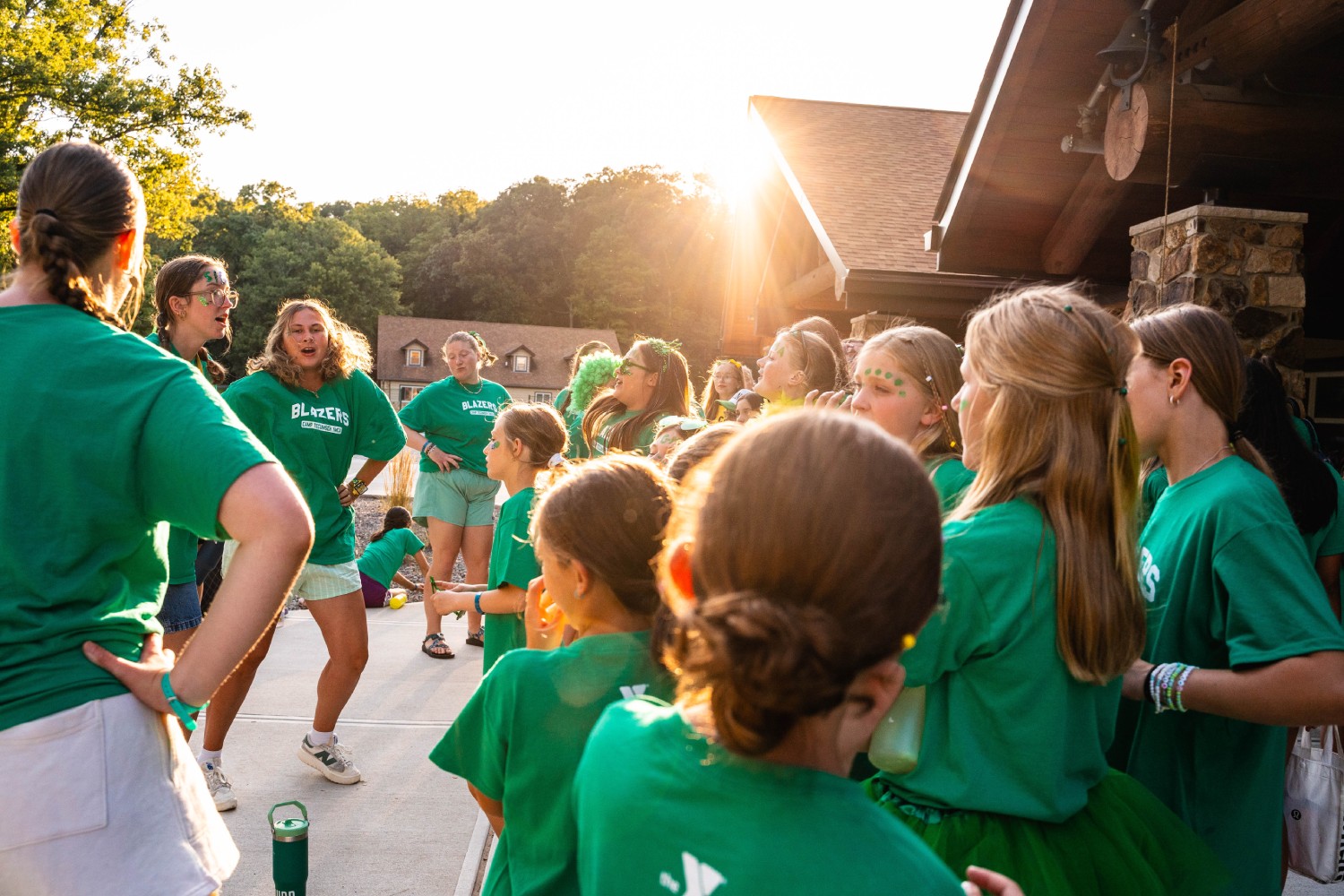 Most camps, parks and rec departments and afterschool programs have a written emergency action plan that includes fire evacuation. Precious few have practiced the plan or even trained their staff how to use an extinguisher. Join burn nurse Brad Wiggins and a team of professional firefighters for a thorough explanation of emergency planning and response, fire extinguishing and efficient evacuation.
Most camps, parks and rec departments and afterschool programs have a written emergency action plan that includes fire evacuation. Precious few have practiced the plan or even trained their staff how to use an extinguisher. Join burn nurse Brad Wiggins and a team of professional firefighters for a thorough explanation of emergency planning and response, fire extinguishing and efficient evacuation.
Kickin’ Kitchens
Hygiene and Safety Fundamentals
Dr. Chris Thurber
 Want a kitchen that’s clean, safe, and organized? Here is the required module for all kitchen staff, including international hires. From proper handwashing and food handling to knife safety and kitchen communication, this video has it all. Bonus tips on arranging pantries and walk-ins will save you time and prevent injuries. It’s time to inspire the changes necessary to make your most important program shine.
Want a kitchen that’s clean, safe, and organized? Here is the required module for all kitchen staff, including international hires. From proper handwashing and food handling to knife safety and kitchen communication, this video has it all. Bonus tips on arranging pantries and walk-ins will save you time and prevent injuries. It’s time to inspire the changes necessary to make your most important program shine.
Lifeguarding Skills Verification
Ensuring Proficiency Beyond Certification
Dr. Cathy Scheder
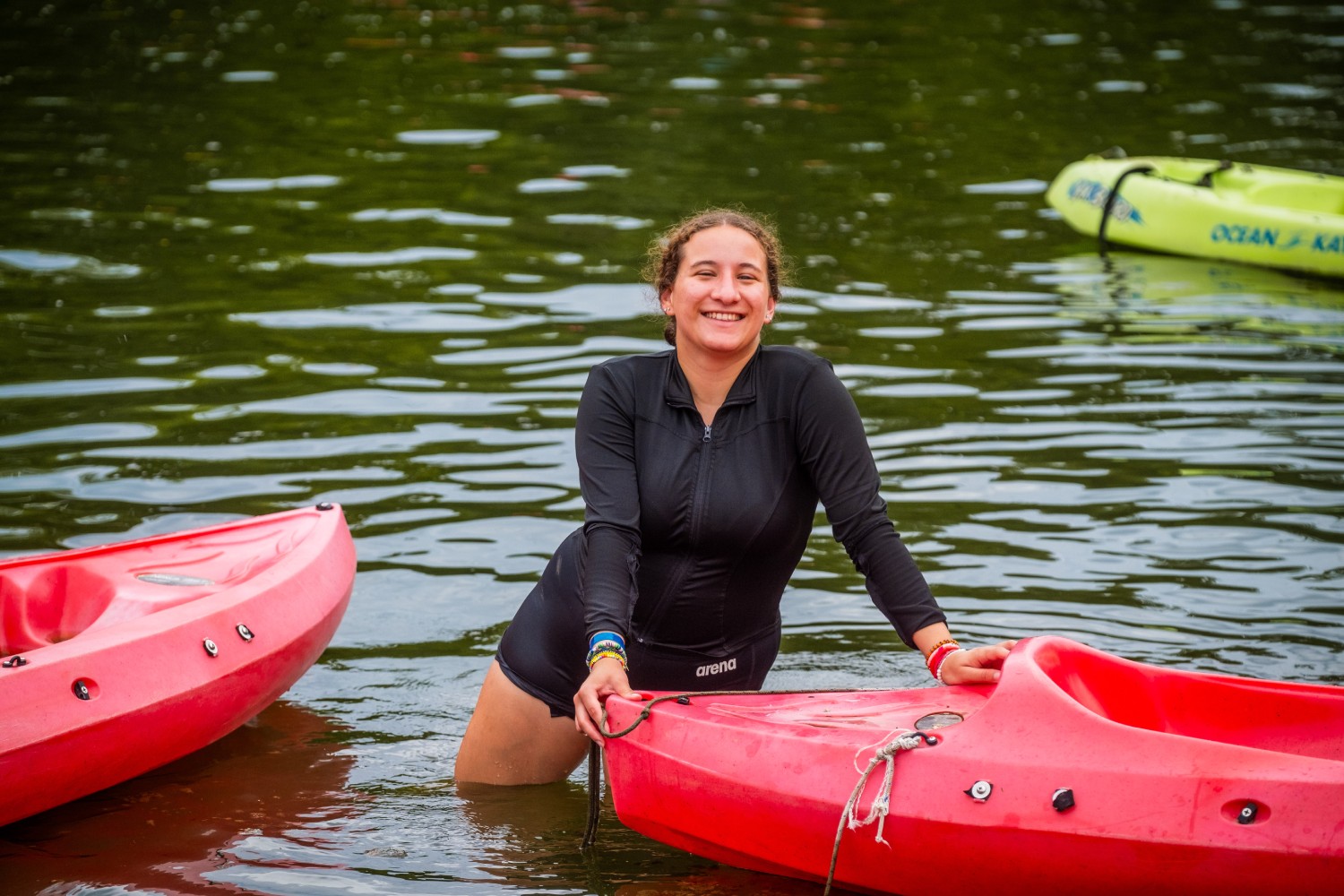 A certified lifeguard does not necessarily make a qualified lifeguard, which is why most accrediting organizations for youth programs require a skills verification for waterfront staff. In this practical module, Cathy Scheder—aquatics guru and author of Camp Waterfront Management—demonstrates how to translate a paper certification to a real-life verification of proficiency on your unique waterfront.
A certified lifeguard does not necessarily make a qualified lifeguard, which is why most accrediting organizations for youth programs require a skills verification for waterfront staff. In this practical module, Cathy Scheder—aquatics guru and author of Camp Waterfront Management—demonstrates how to translate a paper certification to a real-life verification of proficiency on your unique waterfront.
Lockdown Drills for Youth Programs
Planning, Practice, and Protection
Scott Arizala & Sarah Kurtz McKinnon
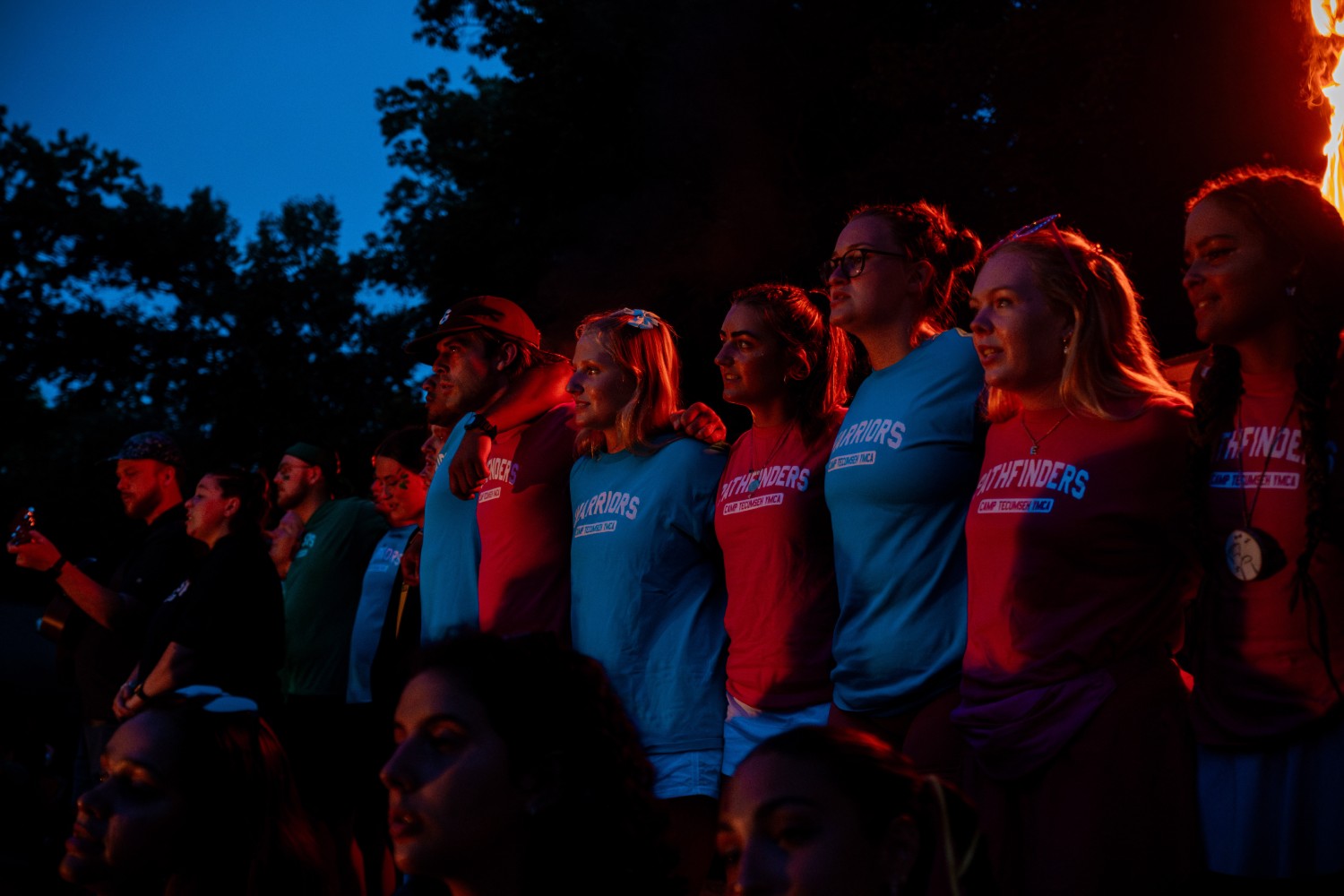 All over the world, violence is an unfortunate part of life. Therefore, all youth programs need specialized emergency action plans (EAPs) and opportunities to practice those plans. Written and filmed in collaboration with law enforcement and risk management experts, this sobering video illustrates the design and execution of both lockdown and run-and-hide scenarios in response to an active shooter.
All over the world, violence is an unfortunate part of life. Therefore, all youth programs need specialized emergency action plans (EAPs) and opportunities to practice those plans. Written and filmed in collaboration with law enforcement and risk management experts, this sobering video illustrates the design and execution of both lockdown and run-and-hide scenarios in response to an active shooter.
Look Before You Leap, Part I
Avoiding Accidents through Rules and Observations
Dr. Chris Thurber
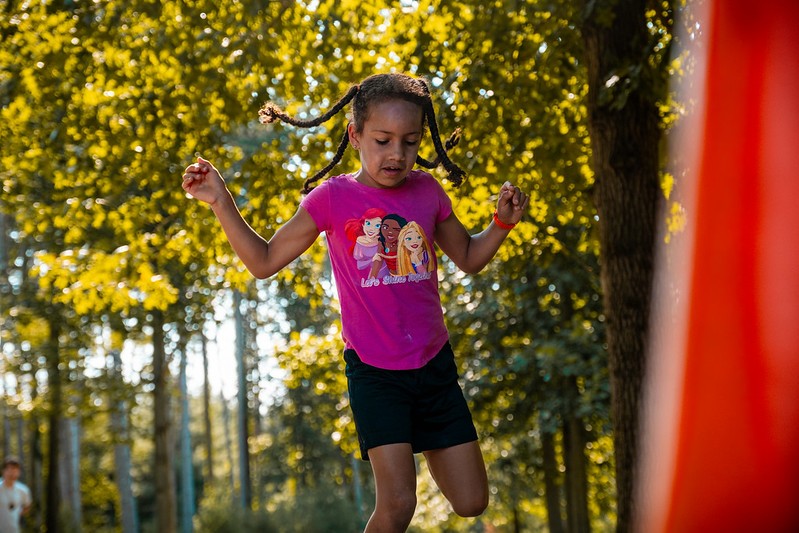 Here's a sobering fact: Accidents are the leading cause of death among adolescents and young adults. But Chris's seven principles of awareness can instantly reverse that trend. Sure, teens and young staff are more impulsive and less experienced than you'd like, but they can all learn mindful concepts that allow them to anticipate consequences before putting themselves or someone else in danger.
Here's a sobering fact: Accidents are the leading cause of death among adolescents and young adults. But Chris's seven principles of awareness can instantly reverse that trend. Sure, teens and young staff are more impulsive and less experienced than you'd like, but they can all learn mindful concepts that allow them to anticipate consequences before putting themselves or someone else in danger.
Look Before You Leap, Part II
Avoiding Accidents through Respect and Reflection
Dr. Chris Thurber
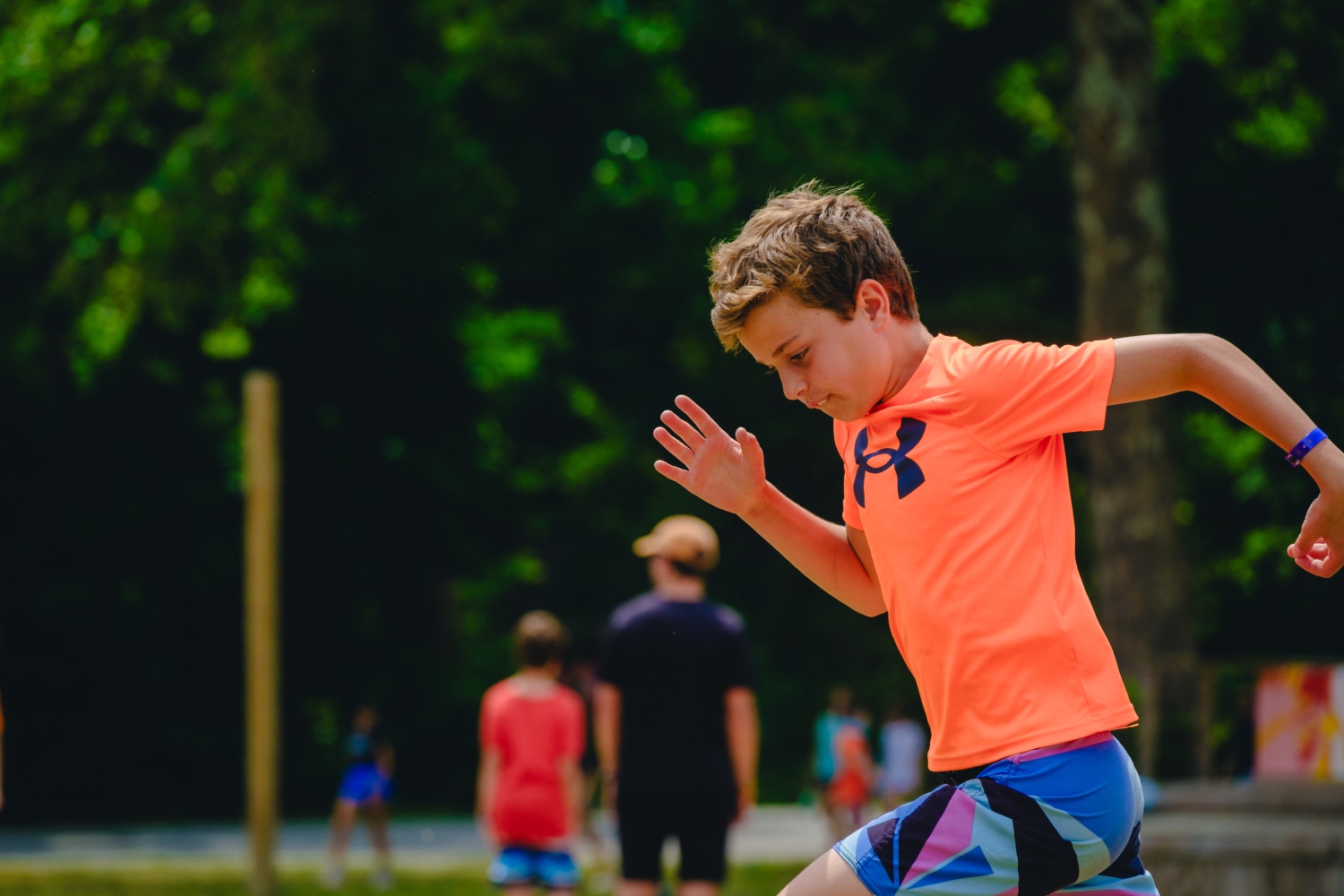 Learn more keys to creating a community where common sense is actually common. Part II of this ground-breaking module series describes load limits, future-focused thinking, and other best practices for staff to behave in ways that minimize risk and maximize healthy outcomes. There is no such thing as a perfectly safe youth program, but there are effective ways to prevent human error.
Learn more keys to creating a community where common sense is actually common. Part II of this ground-breaking module series describes load limits, future-focused thinking, and other best practices for staff to behave in ways that minimize risk and maximize healthy outcomes. There is no such thing as a perfectly safe youth program, but there are effective ways to prevent human error.
Medical Preparation for Burn Camps
Healthy Habits Make Happy Kids
Brad Wiggins
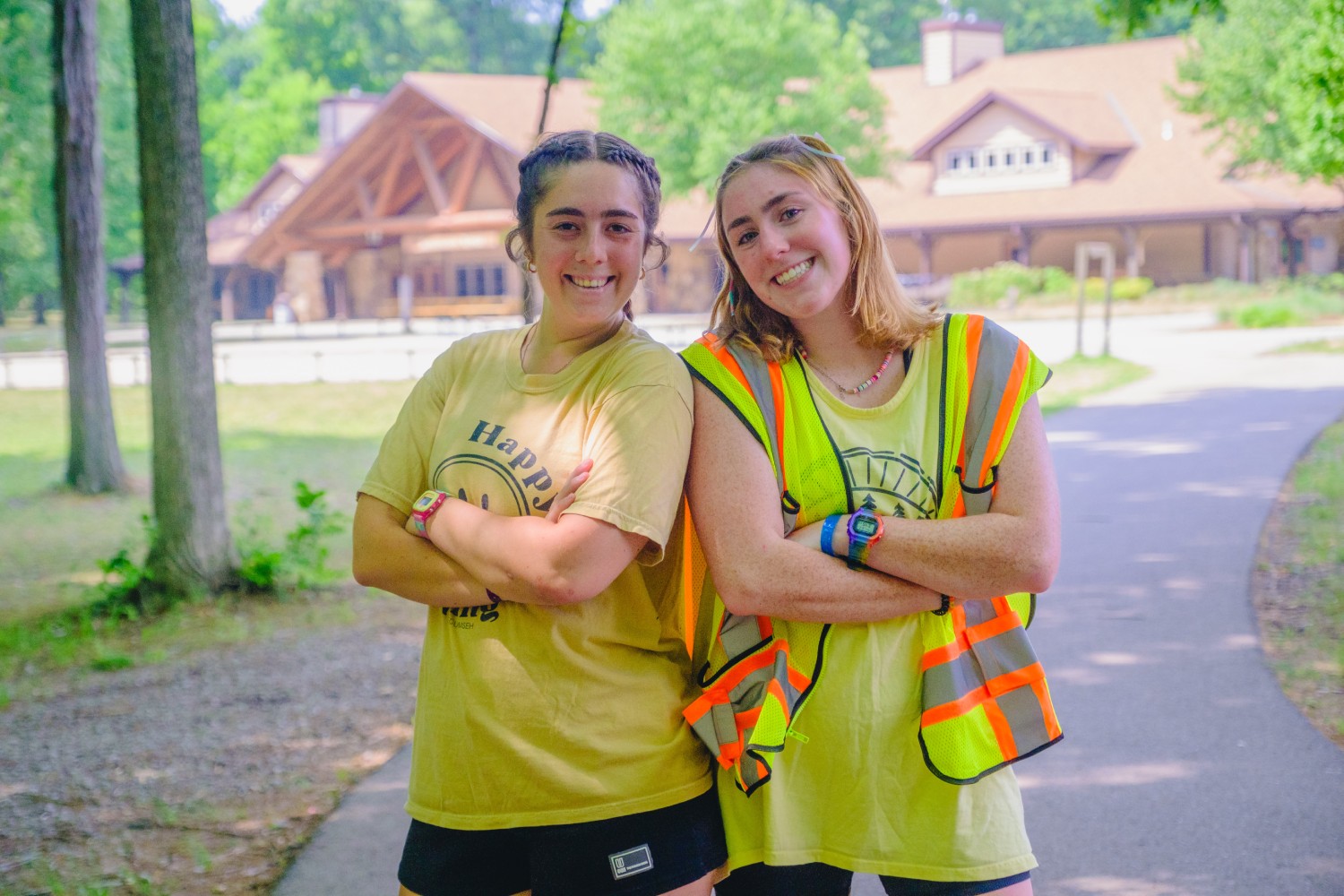 In this companion module to his series on psychosocial preparation for burn camps, burn nurse Brad Wiggins explains the essential components of medical preparation. From revising applications to stocking the health center; from adapting activities to consulting local burn centers, this module helps you get it right the first time. Learn from a pro how to help young burn survivors succeed.
In this companion module to his series on psychosocial preparation for burn camps, burn nurse Brad Wiggins explains the essential components of medical preparation. From revising applications to stocking the health center; from adapting activities to consulting local burn centers, this module helps you get it right the first time. Learn from a pro how to help young burn survivors succeed.
Out of the Pool and Into the Wild
Lifeguarding in Natural Aquatic Environments
Dr. Cathy Scheder
 Murky water, mucky bottoms, intense glare, vast acreage, chilly air, burning sun, and even swift currents. Are you ready for the transition from a pool to a lake or river? Most lifeguards hired to work at camps and outdoor youth programs were trained in the controlled environments of classrooms and swimming pools. Step up your game by learning to guard effectively in changing, natural environments.
Murky water, mucky bottoms, intense glare, vast acreage, chilly air, burning sun, and even swift currents. Are you ready for the transition from a pool to a lake or river? Most lifeguards hired to work at camps and outdoor youth programs were trained in the controlled environments of classrooms and swimming pools. Step up your game by learning to guard effectively in changing, natural environments.
Preventing and Reporting Child Abuse Part 1
Preventing and Reporting Child Abuse Part 1
Isaac Mamaysky
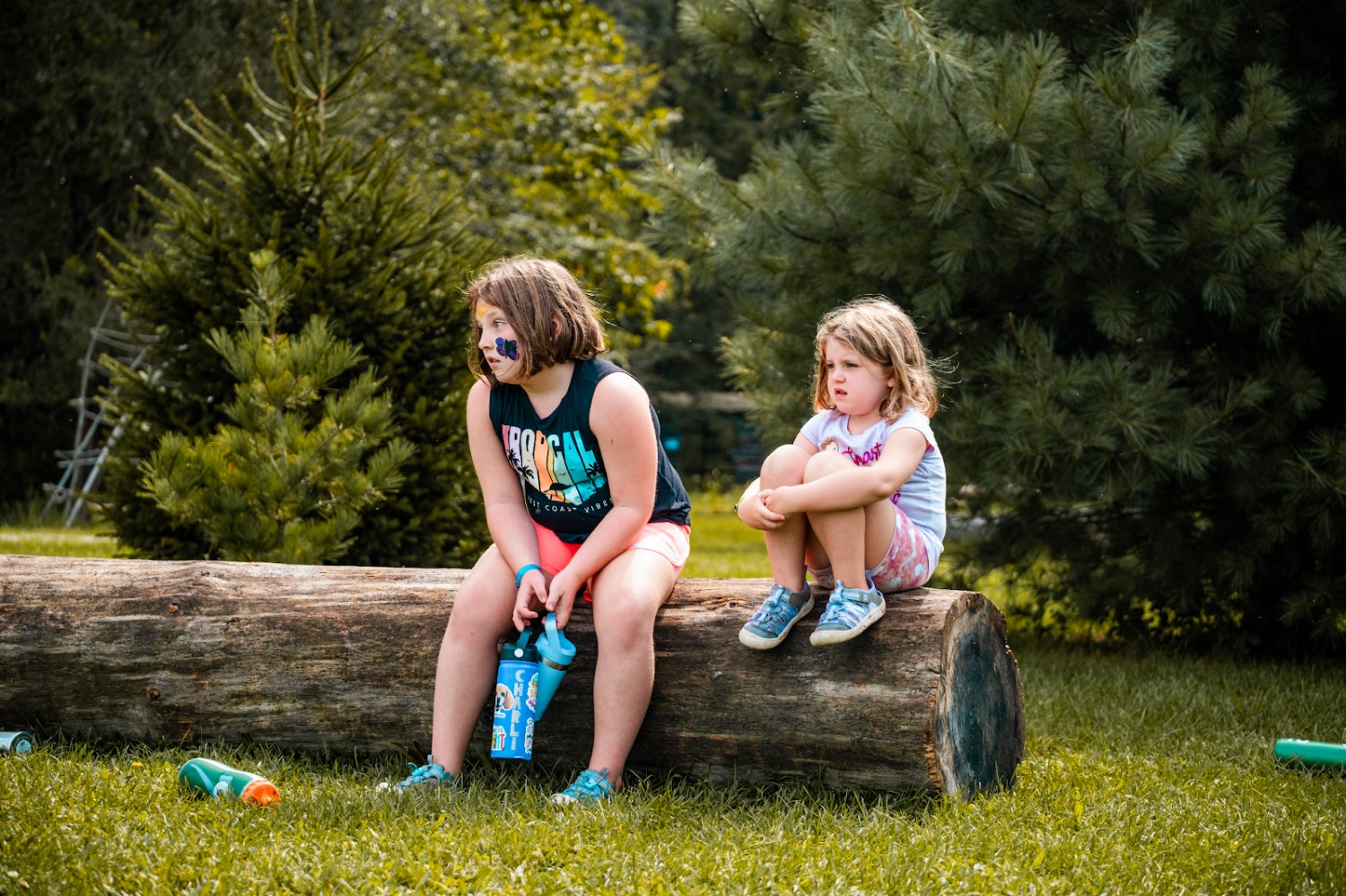 To ensure the safety and well-being of all children under our care, it is imperative that every staff member is equipped with the knowledge and resources to prevent and report any incidents of child abuse. In this crucial video presentation, led by one of the camp world’s most respected attorneys Isaac Mamaysky, participants will gain comprehensive insights into the laws and protocols surrounding the prevention and reporting of child abuse. This meticulously curated module delves into identifying signs of abuse, appropriate intervention strategies, and the legal obligations of staff members.
To ensure the safety and well-being of all children under our care, it is imperative that every staff member is equipped with the knowledge and resources to prevent and report any incidents of child abuse. In this crucial video presentation, led by one of the camp world’s most respected attorneys Isaac Mamaysky, participants will gain comprehensive insights into the laws and protocols surrounding the prevention and reporting of child abuse. This meticulously curated module delves into identifying signs of abuse, appropriate intervention strategies, and the legal obligations of staff members.
Preventing and Reporting Child Abuse Part 2
Preventing and Reporting Child Abuse Part 2
Isaac Mamaysky
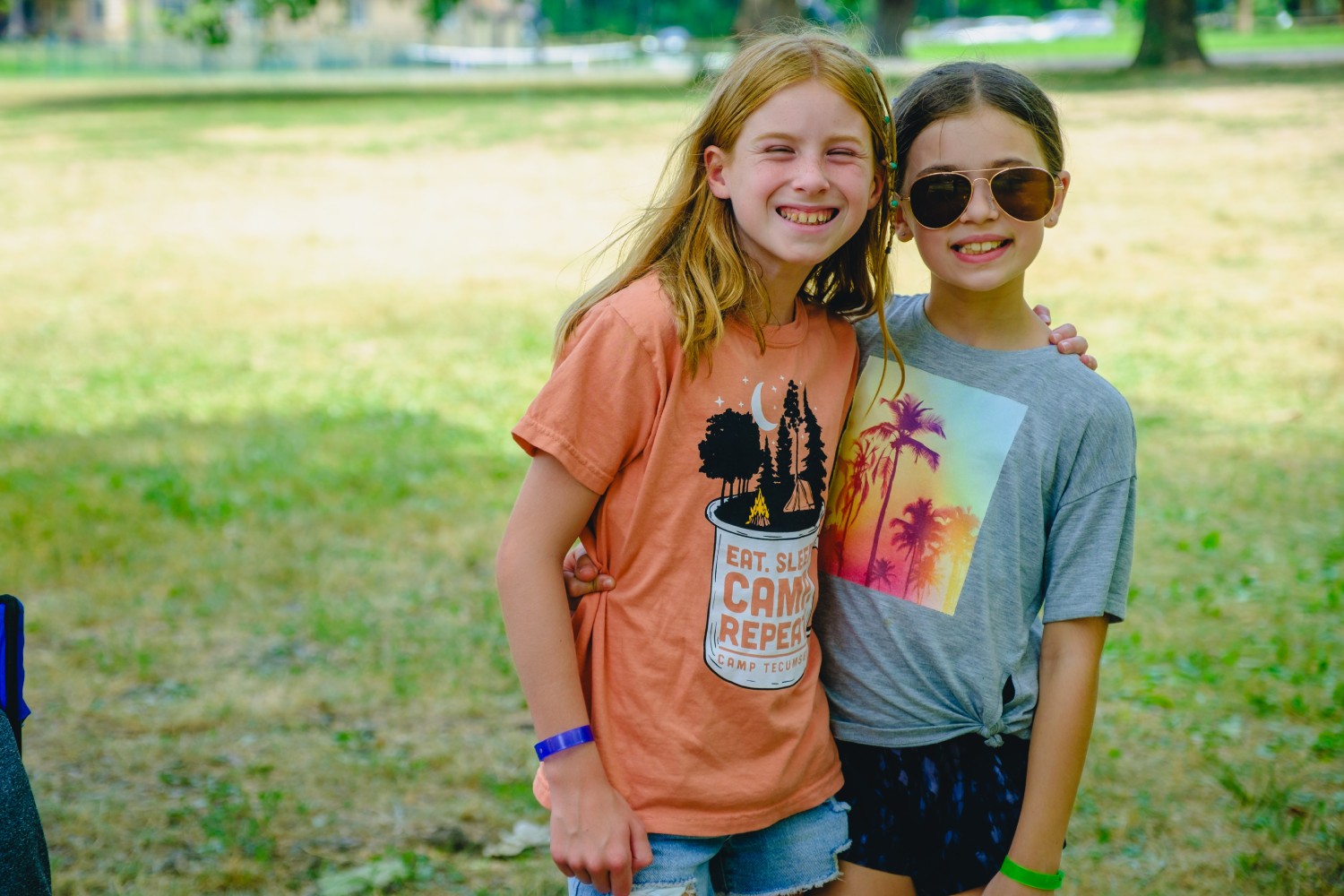 In Part 2 of our comprehensive series on Preventing and Reporting Child Abuse, one of the camp world’s most respected attorneys Isaac Mamaysky delves even deeper into the critical subject matter. Building upon the foundational knowledge established in Part 1, this installment provides advanced insights and practical strategies for effectively addressing and responding to instances of child abuse.
In Part 2 of our comprehensive series on Preventing and Reporting Child Abuse, one of the camp world’s most respected attorneys Isaac Mamaysky delves even deeper into the critical subject matter. Building upon the foundational knowledge established in Part 1, this installment provides advanced insights and practical strategies for effectively addressing and responding to instances of child abuse.
Regional Disaster Management for Youth Programs
Your Best Chance is to Prepare for the Worst
Brad Wiggins
 Every season, natural disasters decimate youth programs worldwide. And although careful preparation and routine practice saves lives, many directors don’t know where to start. Using actual disaster footage and expert advice from a Red Cross CEO, this detailed module explains the fundamental components of program readiness, parent communication, evacuation and shelter-in-place planning.
Every season, natural disasters decimate youth programs worldwide. And although careful preparation and routine practice saves lives, many directors don’t know where to start. Using actual disaster footage and expert advice from a Red Cross CEO, this detailed module explains the fundamental components of program readiness, parent communication, evacuation and shelter-in-place planning.
Safe Touch & Safe Talk, Part I
Universal Standards for Respectful Treatment of Youth
Dr. Chris Thurber
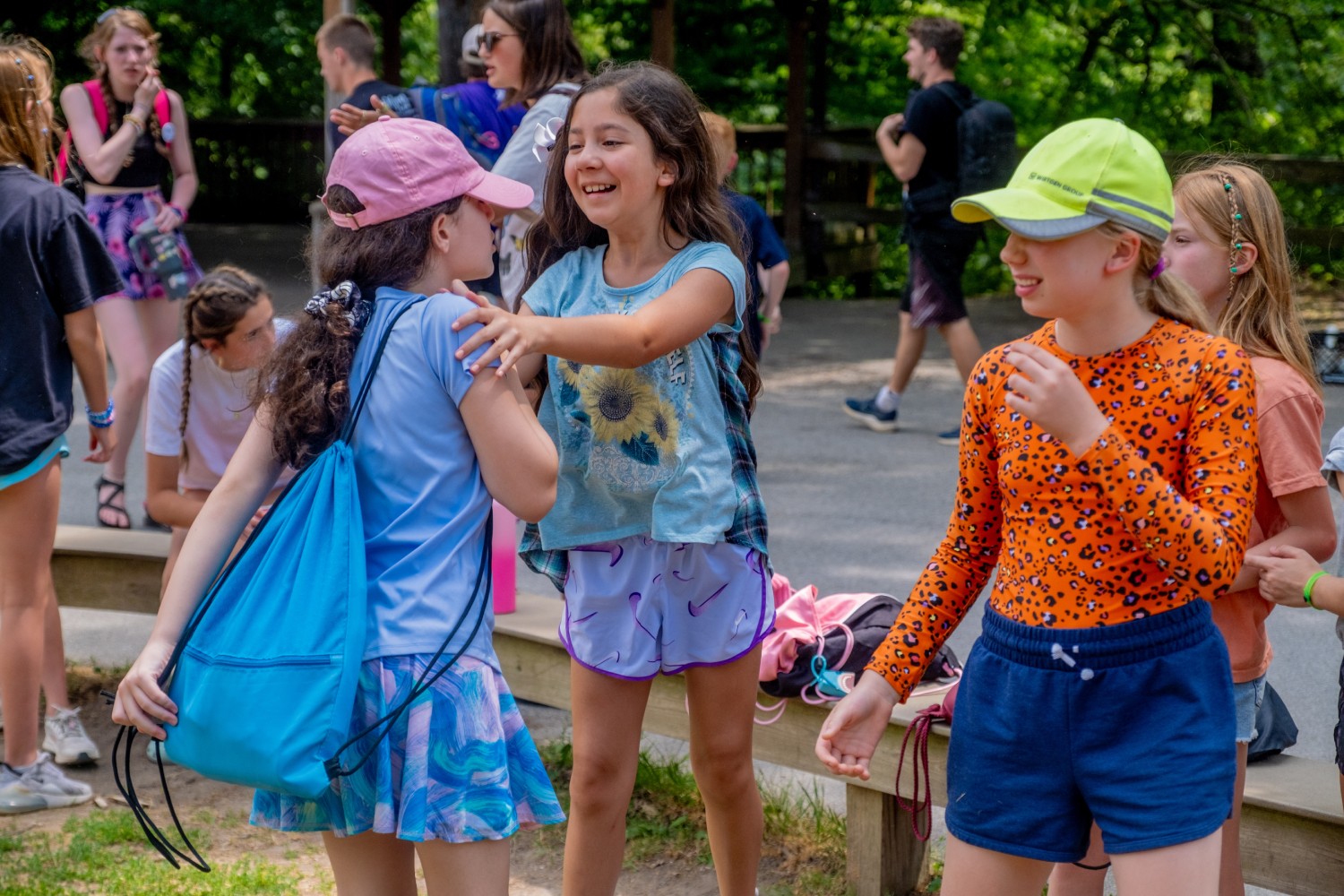 One essential component at any high-quality day or overnight camp is the physical and emotional safety of the campers and staff. Although every camp has slightly different guidelines, this frank module demonstrates the essentials of what's forbidden and what's permitted. Adhering to these safe touch and safe talk rules helps protect your campers and you.
One essential component at any high-quality day or overnight camp is the physical and emotional safety of the campers and staff. Although every camp has slightly different guidelines, this frank module demonstrates the essentials of what's forbidden and what's permitted. Adhering to these safe touch and safe talk rules helps protect your campers and you.
Safe Touch & Safe Talk, Part II
Preserving Professional Boundaries with Youth
Dr. Chris Thurber & Jack Erler, Esq
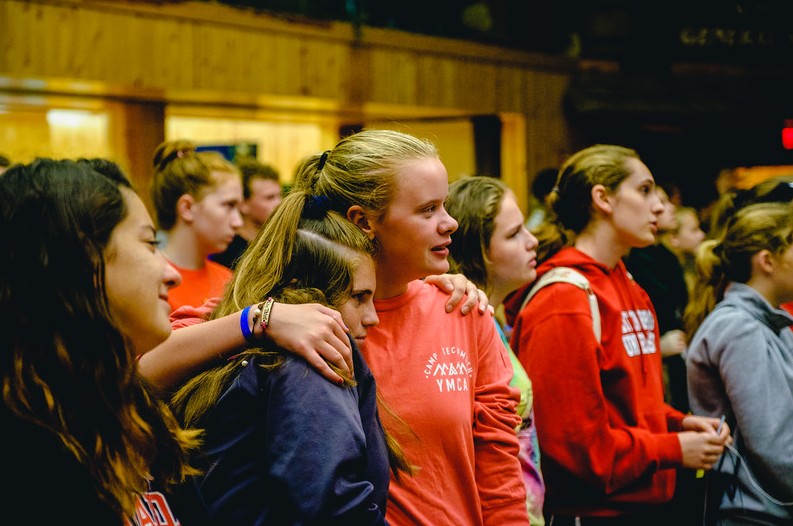 The only risk management video that elucidates our universal human vulnerability to cross boundaries with young people. Guidelines for safe touch and safe talk (covered in Part I of this series) are only half of the child welfare and protection picture. Youth leaders must also look inward to recognize the unhealthy seeds of secrets, rule-bending, favoritism, over-sharing. A must-see sequel.
The only risk management video that elucidates our universal human vulnerability to cross boundaries with young people. Guidelines for safe touch and safe talk (covered in Part I of this series) are only half of the child welfare and protection picture. Youth leaders must also look inward to recognize the unhealthy seeds of secrets, rule-bending, favoritism, over-sharing. A must-see sequel.
Sexual Harassment Awareness, Part I
Identification and Prevention for Youth Leaders
Isaac Mamaysky
 To reduce liability and create a safe culture at camp, employees must know their rights and responsibilities regarding sexual harassment. This carefully constructed module, hosted by one of the camp world’s most respected attorneys, reviews sexual harassment laws and the proper way to respond if you observe or experience any unwelcome sexual advances, touch, language, or requests for favors.
To reduce liability and create a safe culture at camp, employees must know their rights and responsibilities regarding sexual harassment. This carefully constructed module, hosted by one of the camp world’s most respected attorneys, reviews sexual harassment laws and the proper way to respond if you observe or experience any unwelcome sexual advances, touch, language, or requests for favors.
Sexual Harassment Awareness, Part II
Advanced Responsibilities and Recourse for Youth Leaders
Isaac Mamaysky
 This advanced second chapter goes into depth about what constitutes sexual harassment, which behaviors are unwelcome by one's colleagues, key differences between harassment and assault, and what actions staff can take if they believe they have been harassed or assaulted. Attorney Erler also discusses the core features of healthy relationships and the best ways to create an inclusive community.
This advanced second chapter goes into depth about what constitutes sexual harassment, which behaviors are unwelcome by one's colleagues, key differences between harassment and assault, and what actions staff can take if they believe they have been harassed or assaulted. Attorney Erler also discusses the core features of healthy relationships and the best ways to create an inclusive community.
Shockingly Professional Talk, Part I
Conversational Skills for Sensitive Issues
Niambi Jaha-Echols
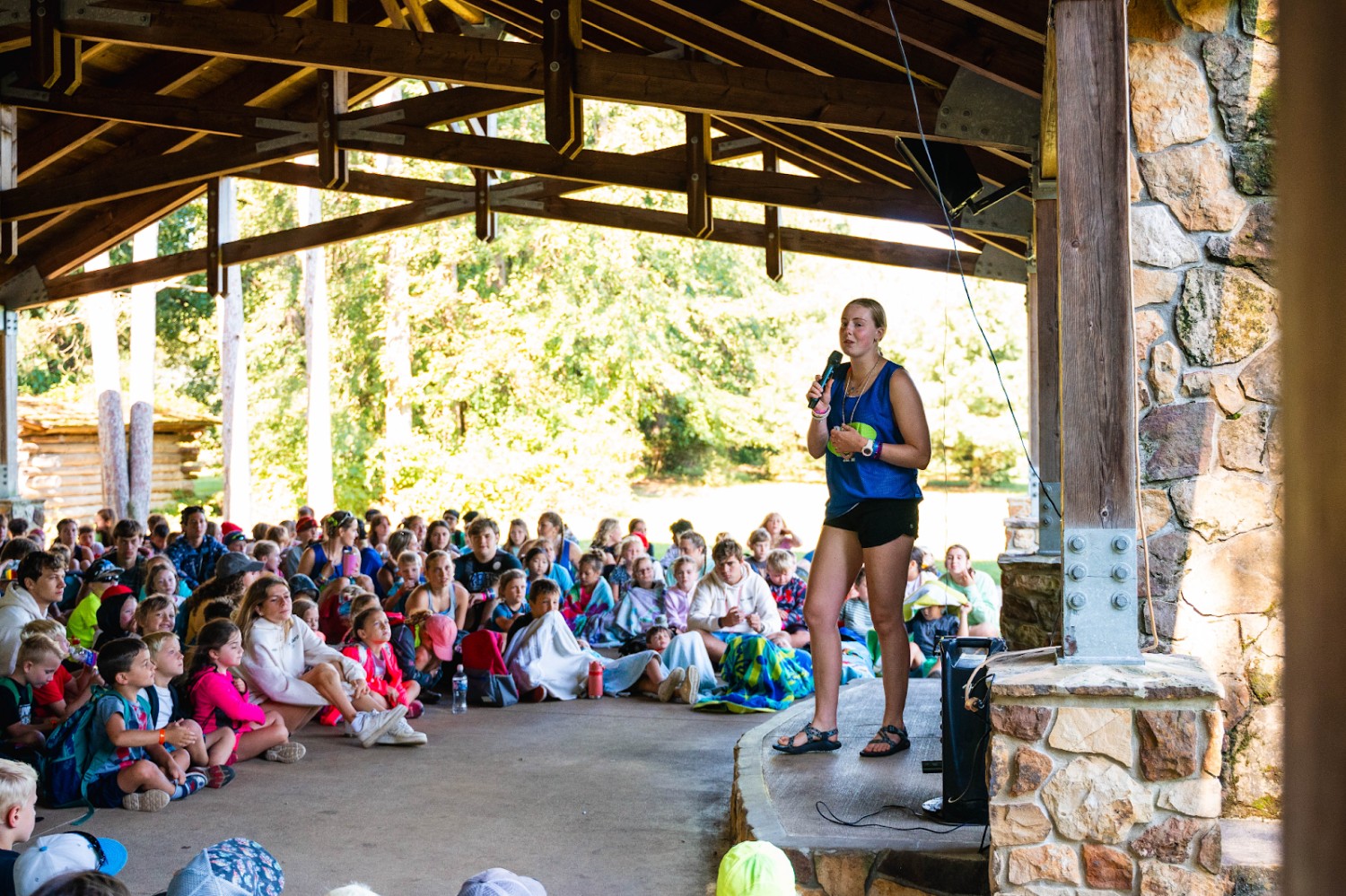 Young people are curious about everything, so they naturally pose challenging questions to youth leaders they trust. But knowing how to respond supportively and appropriately takes finesse. Hosts Jaha-Echols and Thurber offer elegant ways to respond to youngsters’ questions about sex, drugs, religion, politics, racism, and stereotypes with respect, calm, and an open mind.
Young people are curious about everything, so they naturally pose challenging questions to youth leaders they trust. But knowing how to respond supportively and appropriately takes finesse. Hosts Jaha-Echols and Thurber offer elegant ways to respond to youngsters’ questions about sex, drugs, religion, politics, racism, and stereotypes with respect, calm, and an open mind.
Shockingly Professional Talk, Part II
Self-Reflection Skills for Sensitive Issues
Niambi Jaha-Echols
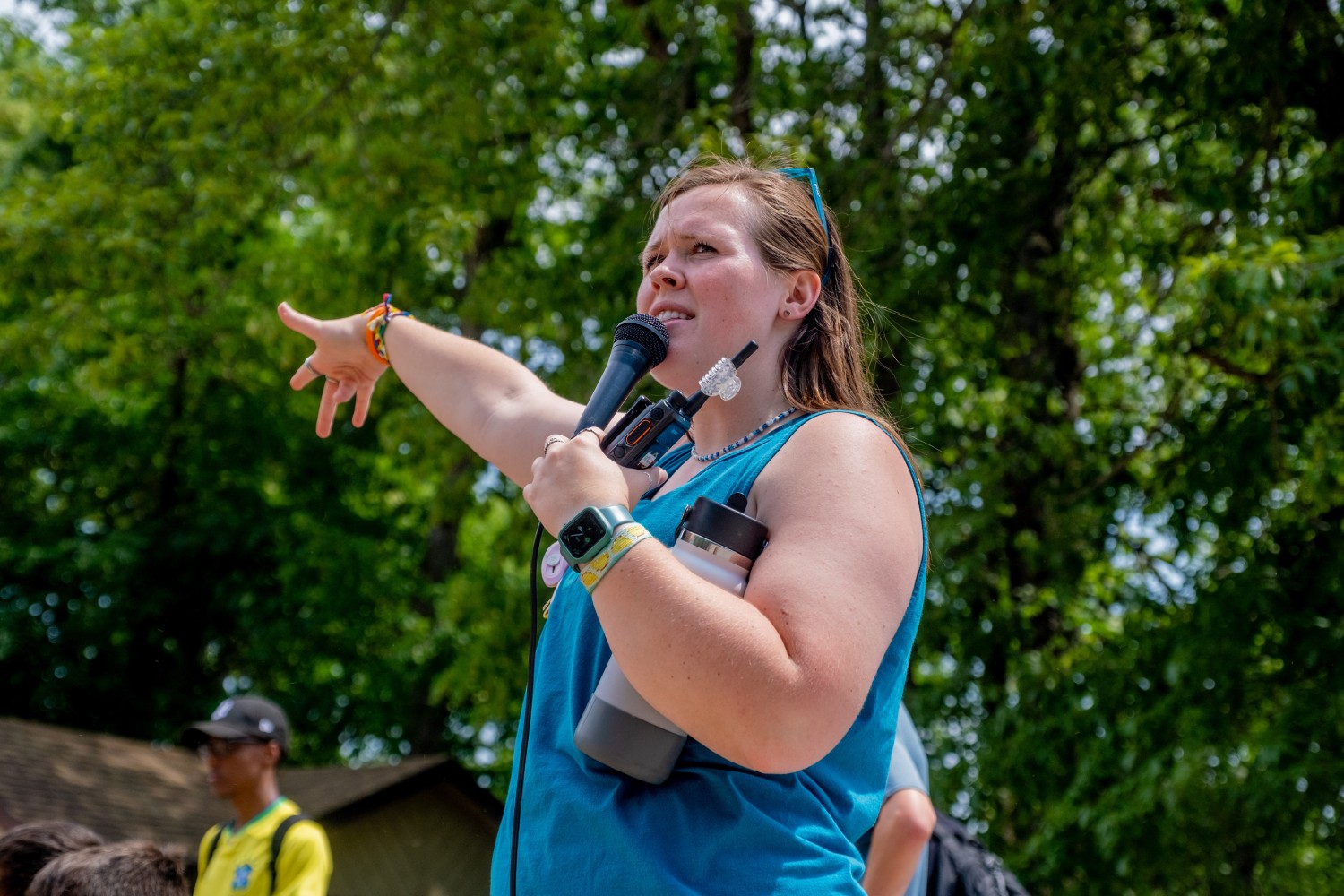 Controversial, thoughtless, or inflammatory comments and questions can throw even the most talented youth leaders into a tailspin. In Part II of Sensitive Issues, Jaha-Echols and Thurber complete their discussion of conversational skills and offer three powerful self-reflection skills for staying calm, understanding personal triggers, and responding with respect and discretion.
Controversial, thoughtless, or inflammatory comments and questions can throw even the most talented youth leaders into a tailspin. In Part II of Sensitive Issues, Jaha-Echols and Thurber complete their discussion of conversational skills and offer three powerful self-reflection skills for staying calm, understanding personal triggers, and responding with respect and discretion.
Staff Use of the Internet
Promoting Online Leadership-by-Example
Tim Huchton
 The Internet is public space. If you take your responsibilities as a youth development professional seriously, then your behavior in that space, like all your other public behavior, must set a sterling example for young people to follow. This provocative module provides practical guidelines that promote leadership and integrity. Now is the time to clean up your online presence.
The Internet is public space. If you take your responsibilities as a youth development professional seriously, then your behavior in that space, like all your other public behavior, must set a sterling example for young people to follow. This provocative module provides practical guidelines that promote leadership and integrity. Now is the time to clean up your online presence.
Standard Precautions in Youth Programs
Prevention, Protection, and Disposal
Dr. Chris Thurber & Scott Arizala
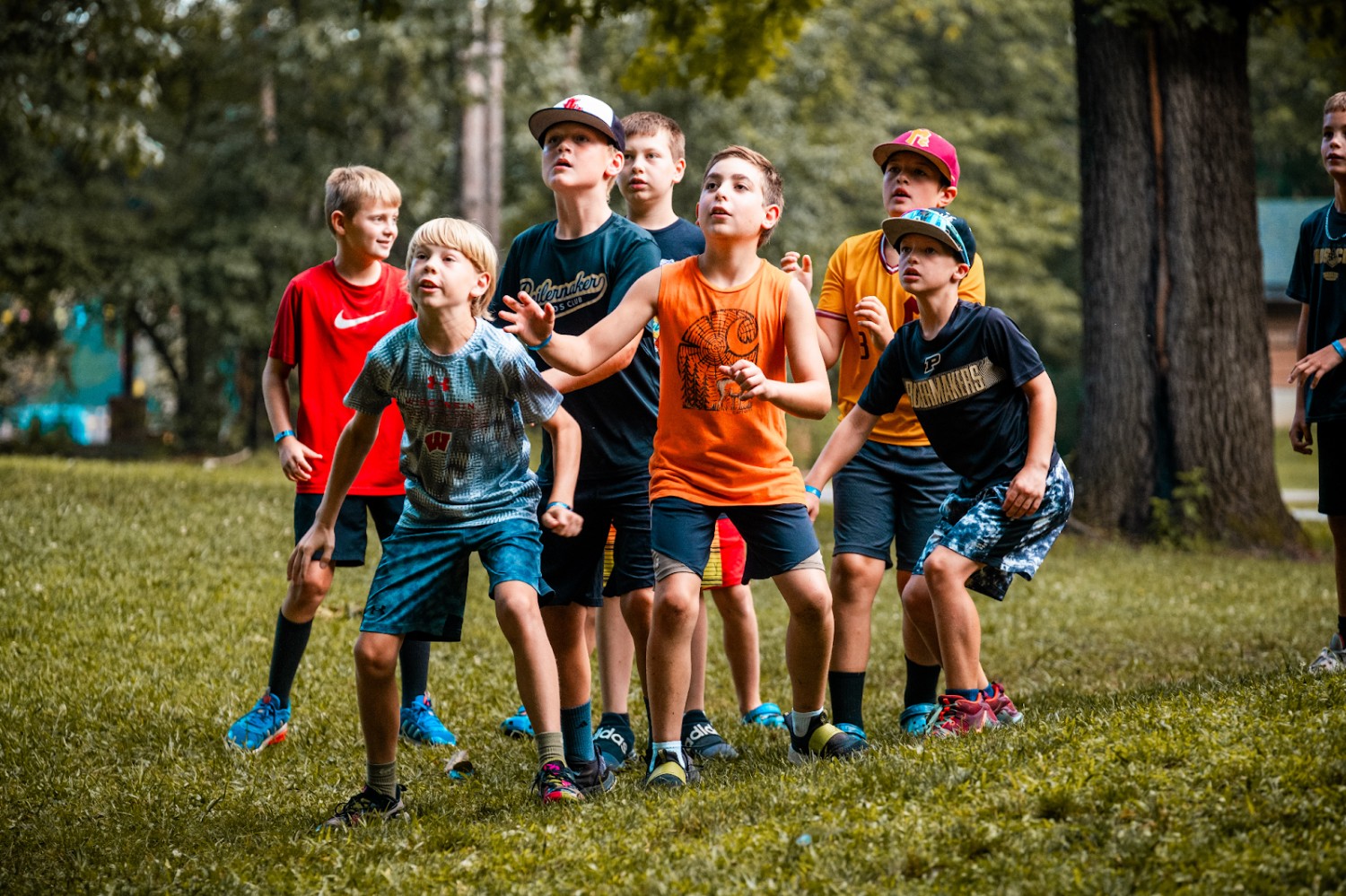 Bodily excretions are part of life, so all youth leaders need to know how to protect themselves and others. Blood, mucus, saliva, feces, urine, and other fluids can contain harmful viruses and bacteria that can be transmitted from one person to another. To keep your community healthy, this explicit video demonstrates the CDC’s "Standard Precautions" guidelines for prevention, protection, and disposal.
Bodily excretions are part of life, so all youth leaders need to know how to protect themselves and others. Blood, mucus, saliva, feces, urine, and other fluids can contain harmful viruses and bacteria that can be transmitted from one person to another. To keep your community healthy, this explicit video demonstrates the CDC’s "Standard Precautions" guidelines for prevention, protection, and disposal.
Swim Checks in Action
Best Practices for Participant Classification
Dr. Cathy Scheder
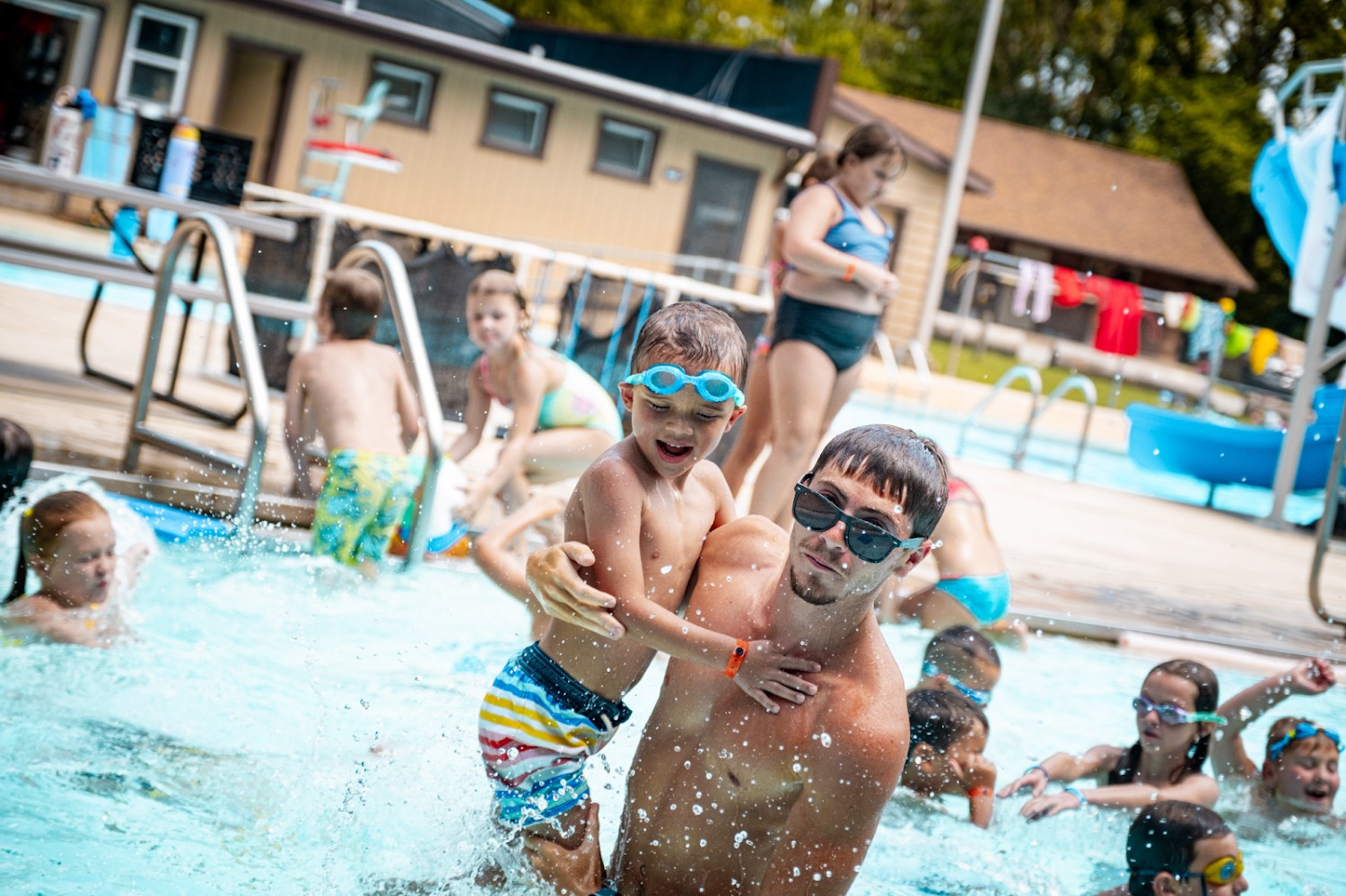 Swimming is among the oldest and most traditional outdoor activities, but do you know how comfortable and competent each of your participants is in the water? To boost the safety and enjoyment of both youngsters and adults, this practical module shows aquatic staff how to reassure participants, categorize them reliably, and set everyone up for success on the waterfront.
Swimming is among the oldest and most traditional outdoor activities, but do you know how comfortable and competent each of your participants is in the water? To boost the safety and enjoyment of both youngsters and adults, this practical module shows aquatic staff how to reassure participants, categorize them reliably, and set everyone up for success on the waterfront.
Waterfront Safety Design
Top Ten Tips in Action
Dr. Chris Thurber
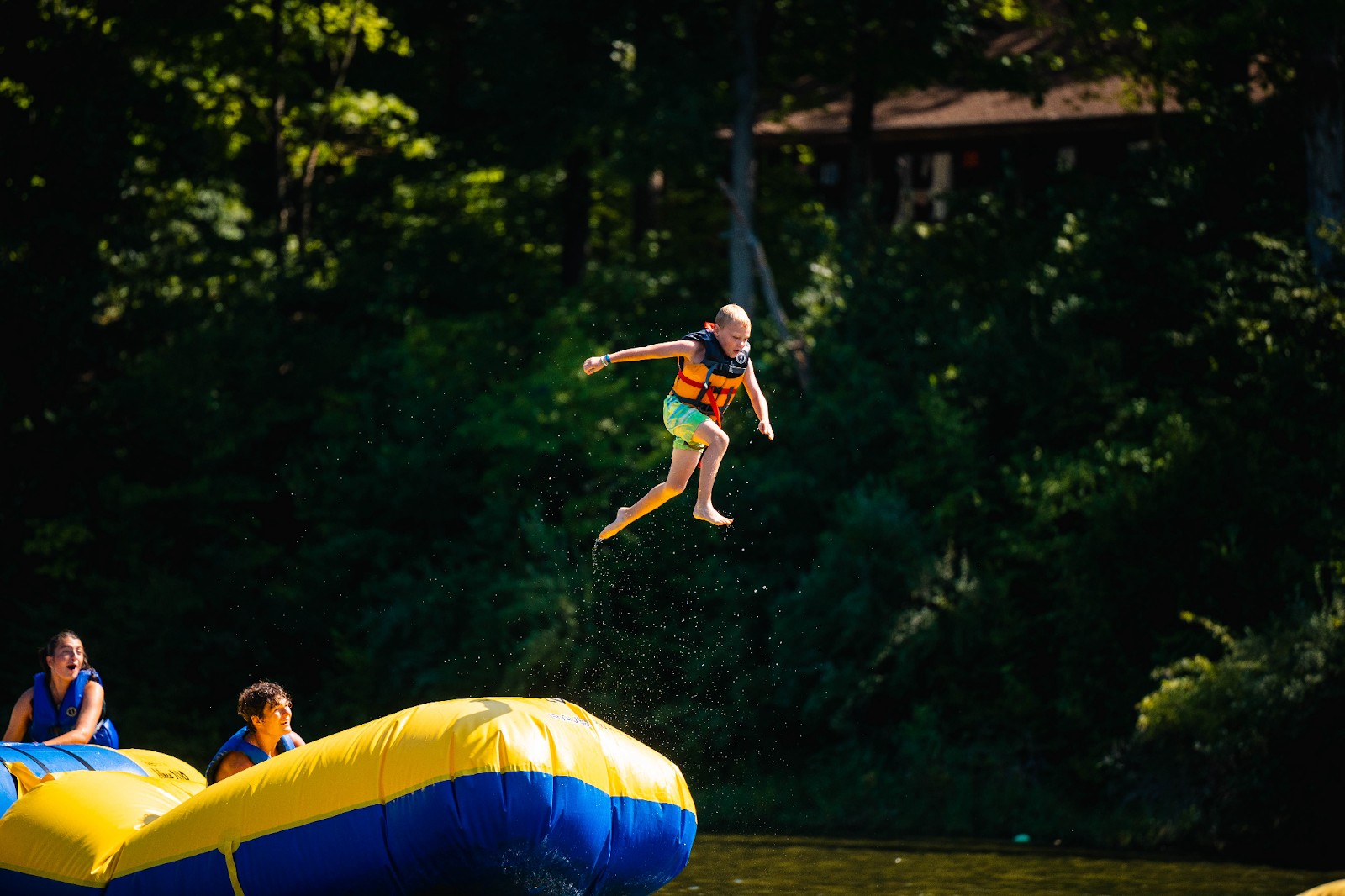 Certifications on your waterfront mean nothing without common sense and experience. This practical module is loaded with professional advice that will help you save lives and prevent injuries. From preventing slips, pinches and burns to building moorings and gates that last, this clear explanation of robust waterfront design principles is what all aquatics staff need to ensure a safe and happy season.
Certifications on your waterfront mean nothing without common sense and experience. This practical module is loaded with professional advice that will help you save lives and prevent injuries. From preventing slips, pinches and burns to building moorings and gates that last, this clear explanation of robust waterfront design principles is what all aquatics staff need to ensure a safe and happy season.
Weather Watch
Atmospheric ABCs for Summer Program Staff
Steve Maguire
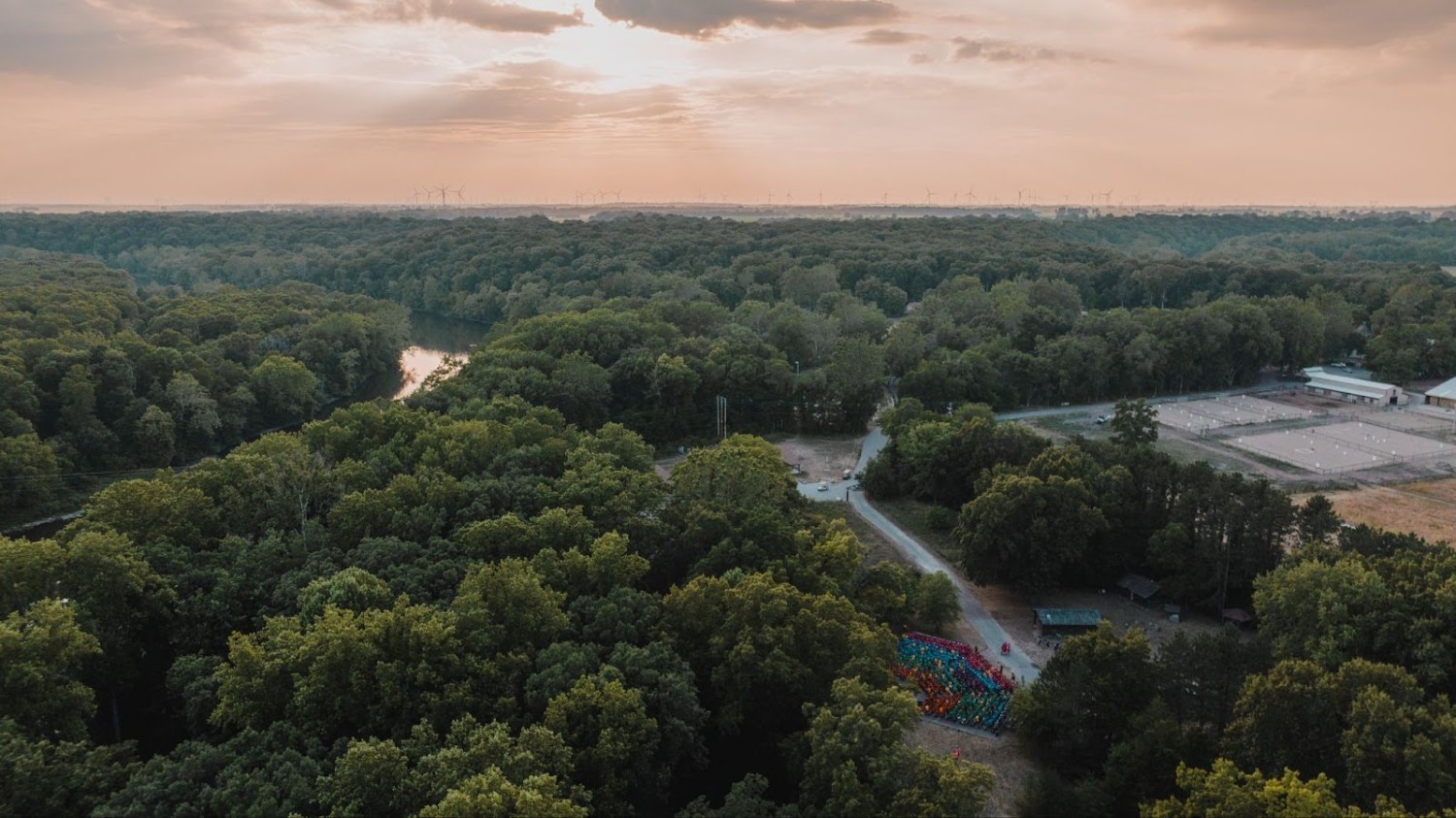 Weather will affect everything you do at your camp, school, or youth program. Using clear examples and practical techniques, this fact-packed module will teach you what causes weather change, how to predict the weather, and what to do when foul weather strikes. Bonus footage on lightning safety for outdoor programs is a must-see for all youth leaders.
Weather will affect everything you do at your camp, school, or youth program. Using clear examples and practical techniques, this fact-packed module will teach you what causes weather change, how to predict the weather, and what to do when foul weather strikes. Bonus footage on lightning safety for outdoor programs is a must-see for all youth leaders.
Wilderness Wellness
Promoting Health in Outdoor Youth Programs
Dr. Laura Blaisdell
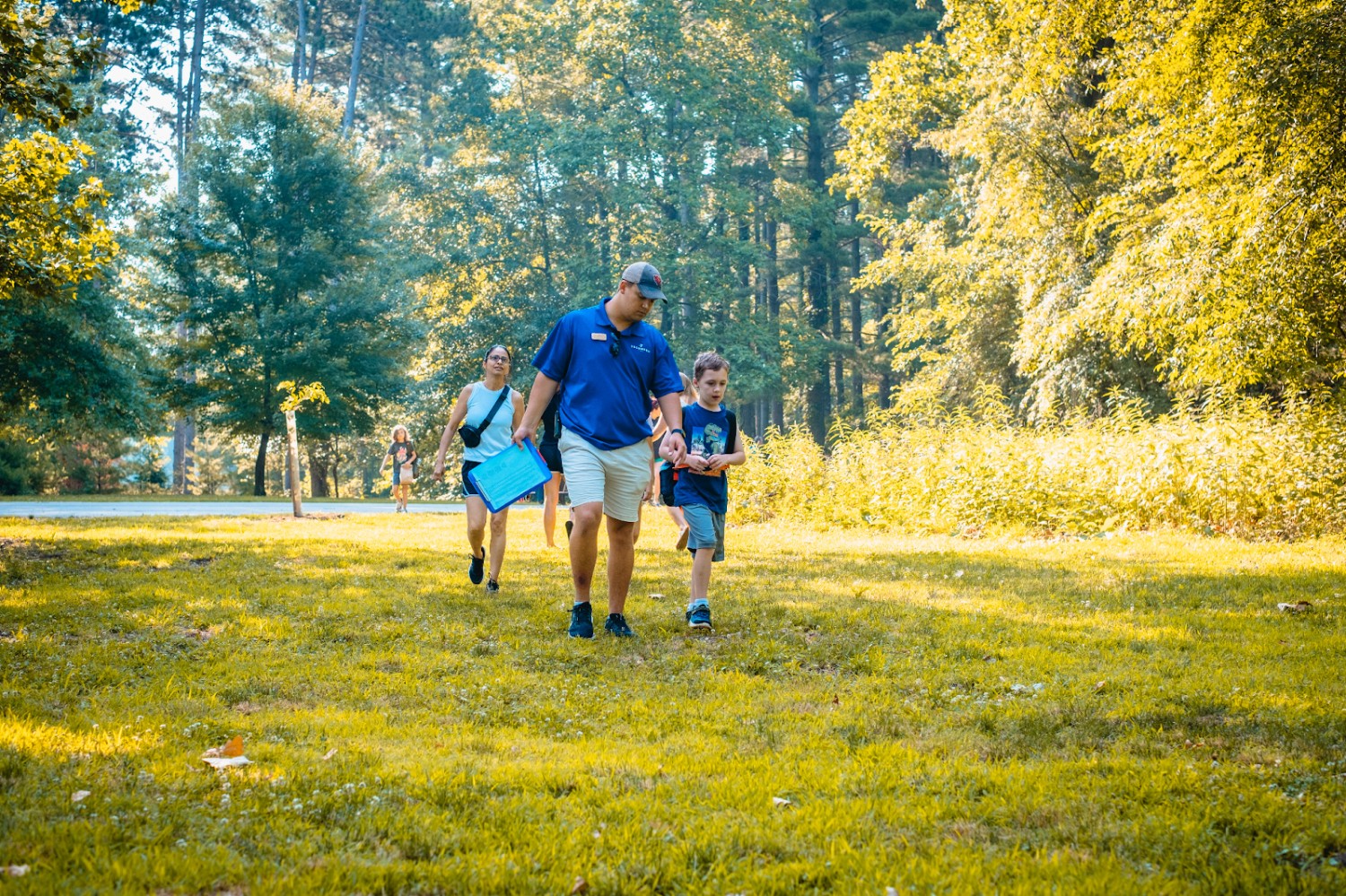 The healthy examples, watchful eyes and wise treatment of frontline staff can prevent small cuts and coughs from becoming serious infections and illnesses. Pediatrician and mother Dr. Laura Baisdell gets down and dirty to discuss key components of wilderness wellness. Everything from hydration and hand washing to insect bites and sneezing etiquette is covered (with an elbow, of course) in this module.
The healthy examples, watchful eyes and wise treatment of frontline staff can prevent small cuts and coughs from becoming serious infections and illnesses. Pediatrician and mother Dr. Laura Baisdell gets down and dirty to discuss key components of wilderness wellness. Everything from hydration and hand washing to insect bites and sneezing etiquette is covered (with an elbow, of course) in this module.
Wise Use of Time Off
Camp is a Marathon not a Sprint
Tim Huchton
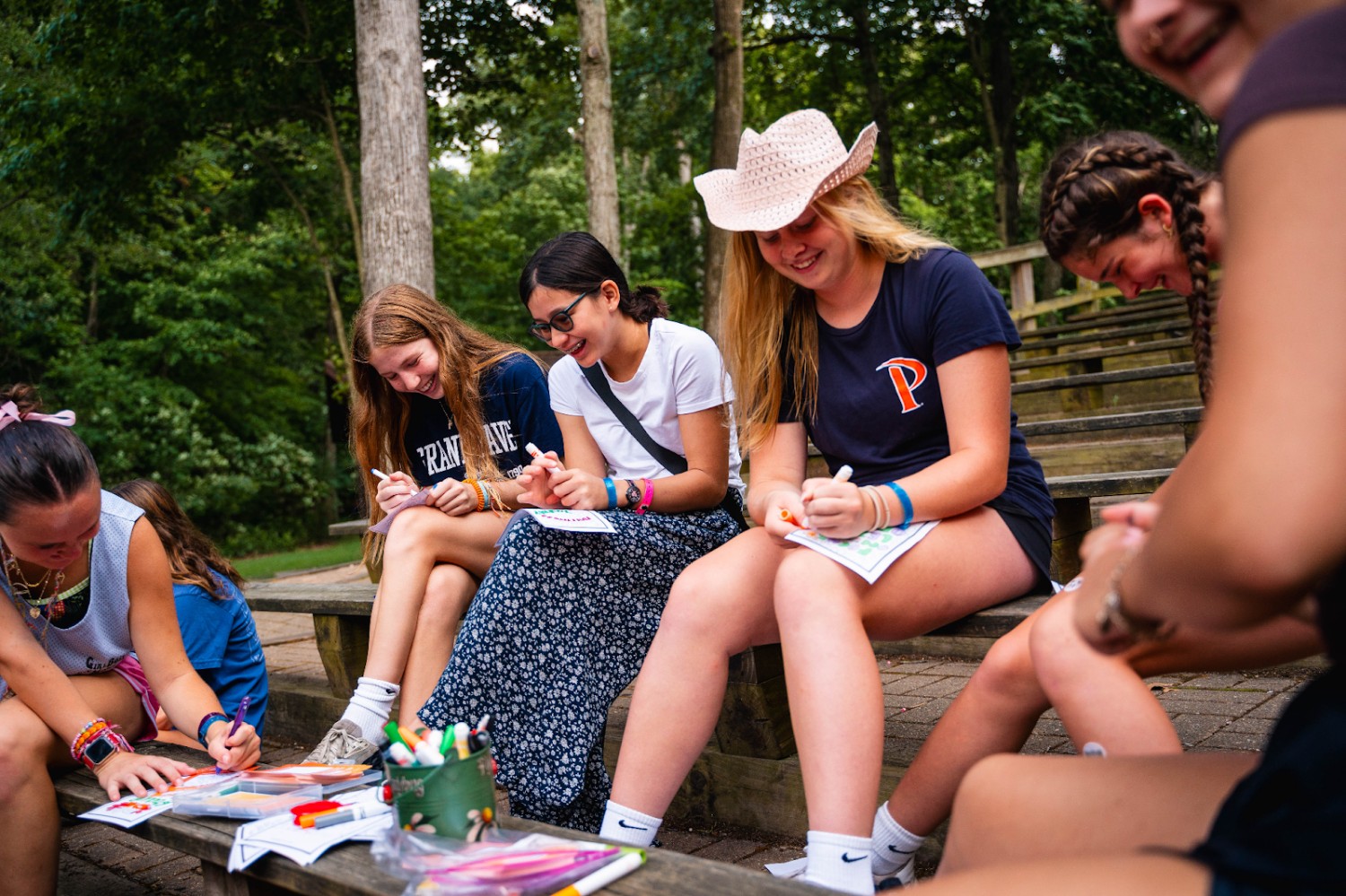 Whether you work at day or overnight camp, you'll need to spend your time off wisely so when you're on duty you're ready for anything. Working at camp takes energy and patience, but if you return to camp exhausted or hung-over, you're likely to burn out quickly. This candid module provides solid advice on managing stress and returning refreshed from time off.
Whether you work at day or overnight camp, you'll need to spend your time off wisely so when you're on duty you're ready for anything. Working at camp takes energy and patience, but if you return to camp exhausted or hung-over, you're likely to burn out quickly. This candid module provides solid advice on managing stress and returning refreshed from time off.
Achieving Supervisory Balance
Priorities, Positivity, and Procrastination
David Conley
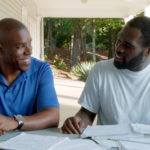 Even experienced supervisors struggle to set priorities, stay positive, and keep on top of their to-do list. This advanced module offers practical strategies for getting things done efficiently and effectively, without doing all the work yourself. Learn how to support your team, delegate tasks, prevent procrastination, maintain a positive attitude, and have enough time for yourself.
Even experienced supervisors struggle to set priorities, stay positive, and keep on top of their to-do list. This advanced module offers practical strategies for getting things done efficiently and effectively, without doing all the work yourself. Learn how to support your team, delegate tasks, prevent procrastination, maintain a positive attitude, and have enough time for yourself.
Advanced Staff Supervision, Part I
PEEPL Power, Part I
Dr. Chris Thurber
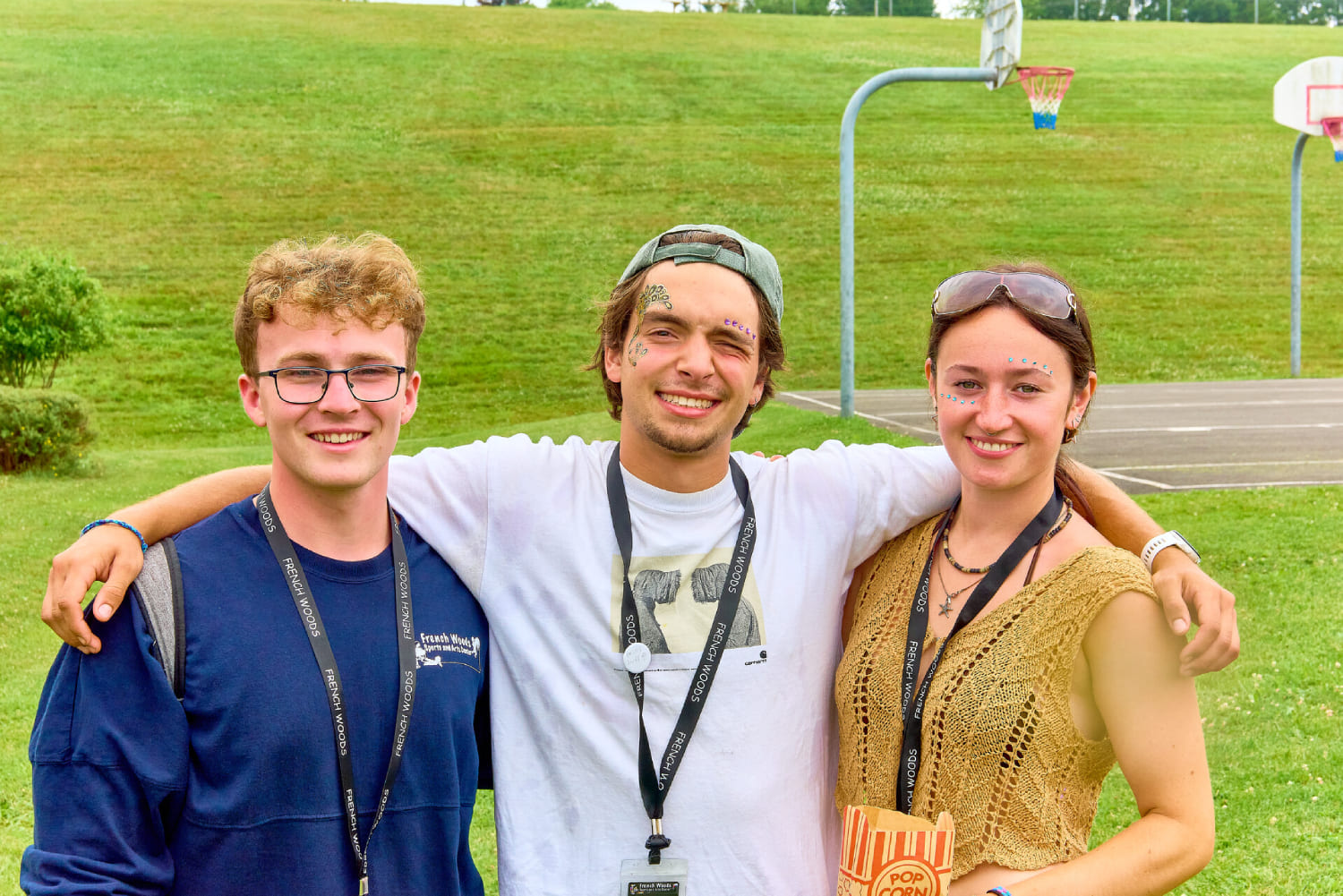 When experienced staff are promoted to supervisory positions at camp, they face the double challenge of having zero formal management training and becoming a boss of their peers. This two-part module, developed over 25 years of in-camp management experience, clearly illustrates five principles of supervisory success: Prepare, Encourage, Evaluate, Participate, and Learn. Part I: Prepare and Encourage.
When experienced staff are promoted to supervisory positions at camp, they face the double challenge of having zero formal management training and becoming a boss of their peers. This two-part module, developed over 25 years of in-camp management experience, clearly illustrates five principles of supervisory success: Prepare, Encourage, Evaluate, Participate, and Learn. Part I: Prepare and Encourage.
Advanced Staff Supervision, Part II
PEEPL Power, Part II
Dr. Chris Thurber
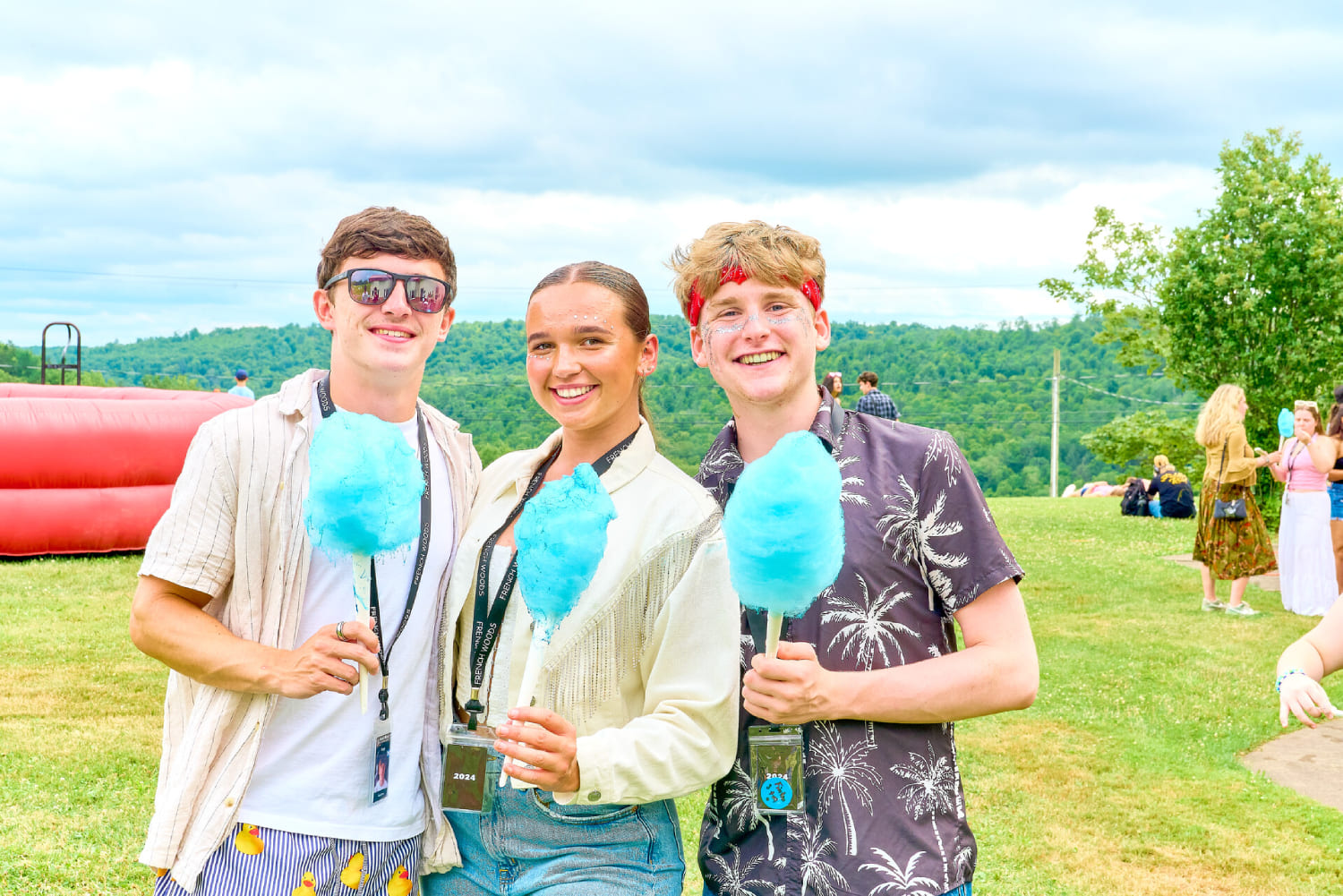 When experienced staff are promoted to supervisory positions at camp, they face the double challenge of having zero formal management training and becoming a boss of their peers. This two-part module, developed over 25 years of in-camp management experience, clearly illustrates five principles of supervisory success: Prepare, Encourage, Evaluate, Participate, and Learn. Part II: Evaluate, Participate, and Learn.
When experienced staff are promoted to supervisory positions at camp, they face the double challenge of having zero formal management training and becoming a boss of their peers. This two-part module, developed over 25 years of in-camp management experience, clearly illustrates five principles of supervisory success: Prepare, Encourage, Evaluate, Participate, and Learn. Part II: Evaluate, Participate, and Learn.
Behavior-Based Interviewing
Innovative Staff Selection for Peak Performance
Gary Forster
 Most hiring interviews combine small talk with some predictable questions that prospective staff answer in predictable ways. “Well, my biggest weakness is that I work so hard.” Enough! In this refreshingly original module, directors will master a simple strategy that transforms superficial interviews into compelling conversations that reveal volumes about a person’s inner strengths and attitudes.
Most hiring interviews combine small talk with some predictable questions that prospective staff answer in predictable ways. “Well, my biggest weakness is that I work so hard.” Enough! In this refreshingly original module, directors will master a simple strategy that transforms superficial interviews into compelling conversations that reveal volumes about a person’s inner strengths and attitudes.
Customer Service Excellence
Details, Language, and Solutions
Kurt Podeszwa
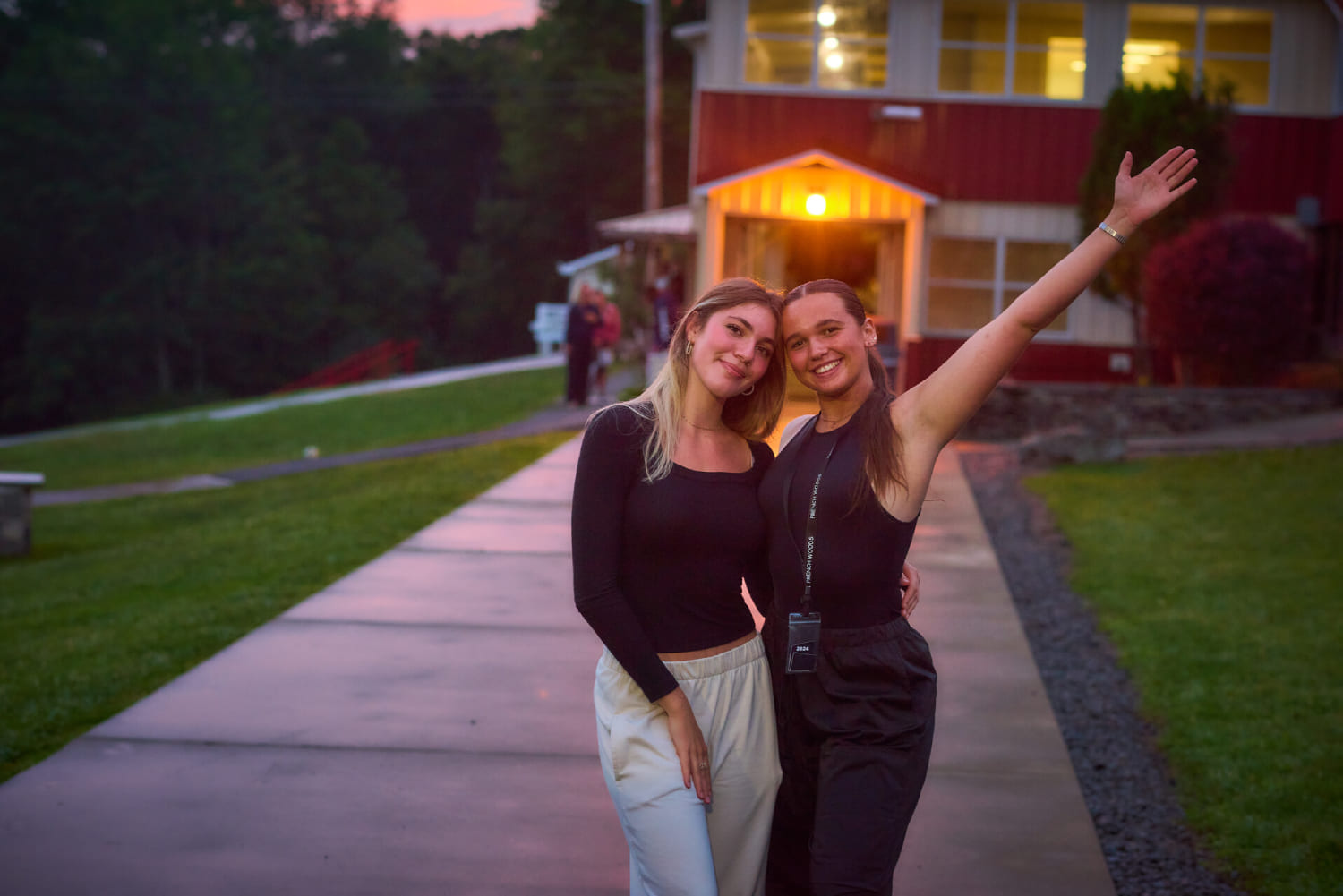 Bad days get worse fast when customer service stinks. We've all experienced terrible customer service in airports, in restaurants, and over the phone with so-called "specialists". So, instead of listening carefully because the menu has changed, climb aboard with Harley-riding Marine, Kurt Podeszwa, to learn all the industry best-practices for providing exceptional customer service.
Bad days get worse fast when customer service stinks. We've all experienced terrible customer service in airports, in restaurants, and over the phone with so-called "specialists". So, instead of listening carefully because the menu has changed, climb aboard with Harley-riding Marine, Kurt Podeszwa, to learn all the industry best-practices for providing exceptional customer service.
Difficult Management Conversations, Part I
How Great Leaders Make It Look Easy
Scott Arizala
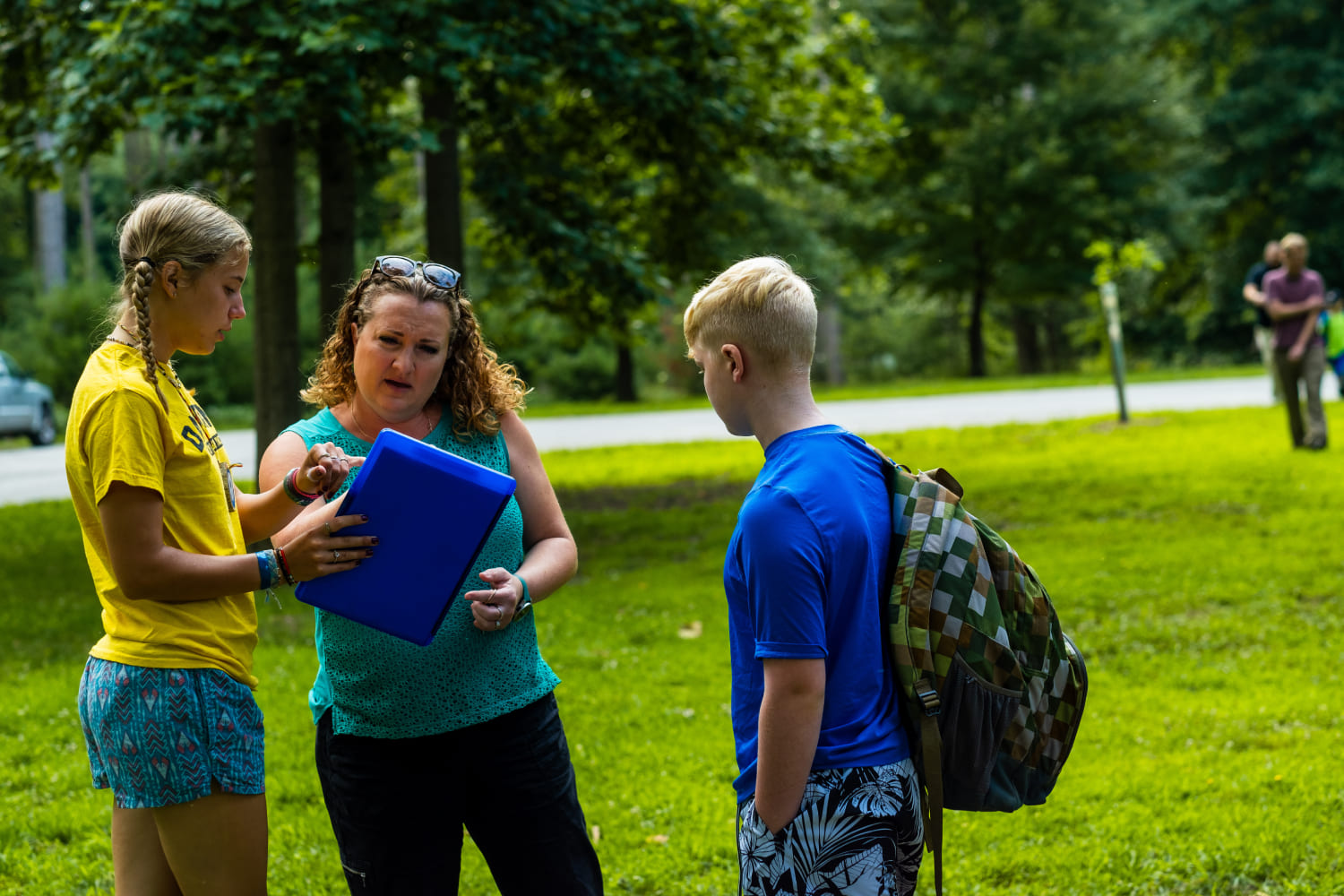 Staff who overstep boundaries, underperform, break rules, or fail to integrate feedback require careful conversations with top-level supervisors. Yet even experienced directors sometimes blanch when it’s time to confront staff in trouble. This advanced module guides experienced supervisors through a balanced and logical process for tackling the most difficult management conversations.
Staff who overstep boundaries, underperform, break rules, or fail to integrate feedback require careful conversations with top-level supervisors. Yet even experienced directors sometimes blanch when it’s time to confront staff in trouble. This advanced module guides experienced supervisors through a balanced and logical process for tackling the most difficult management conversations.
Difficult Management Conversations, Part II
Punch the Shark
Scott Arizala
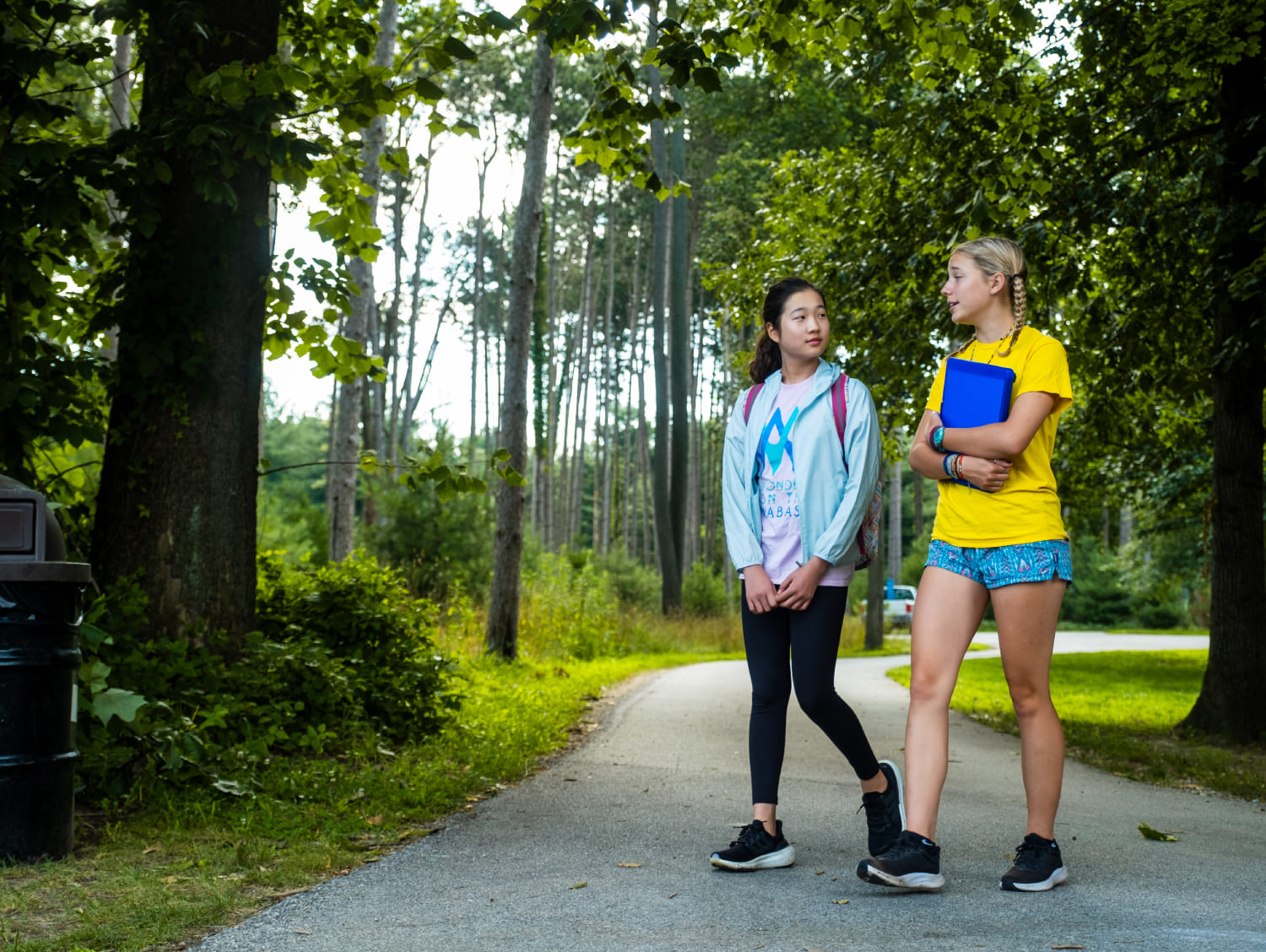 Having mastered techniques of listening, stating facts, and clarifying expectations in Part I of this module series, you’re now ready to "Punch the Shark." In this advanced module, you’ll learn a combination of bold and subtle techniques for brief conversations that immediately improve staff behavior. Rather than worry about confrontation, get the skills you need to make confrontation your transformative friend.
Having mastered techniques of listening, stating facts, and clarifying expectations in Part I of this module series, you’re now ready to "Punch the Shark." In this advanced module, you’ll learn a combination of bold and subtle techniques for brief conversations that immediately improve staff behavior. Rather than worry about confrontation, get the skills you need to make confrontation your transformative friend.
Firing a Staff Member
Professional Guidelines for Termination
Gary Forster
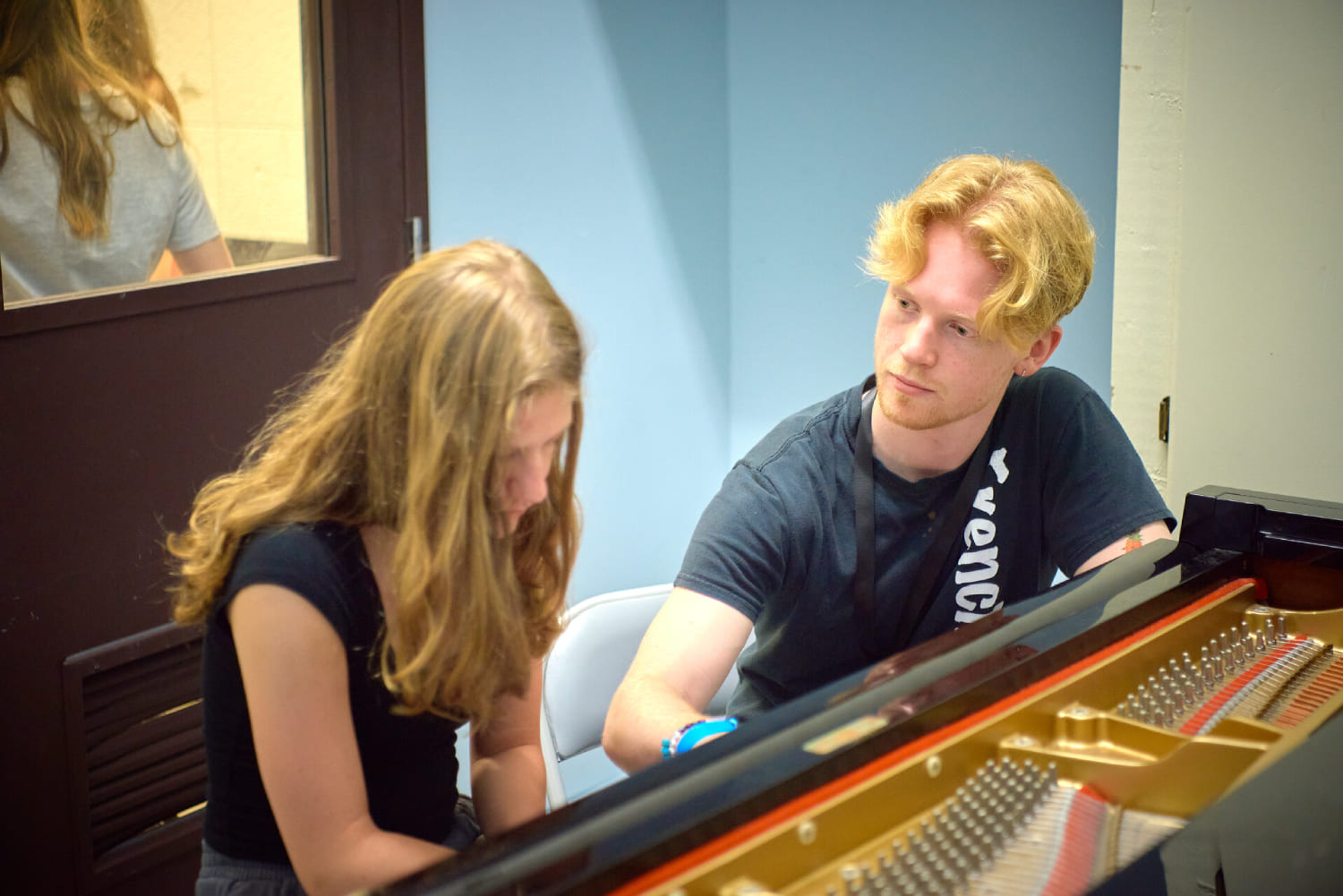 Firing a staff member is painful, but the health of the children and your organization must always come first. In this advanced module, Gary first outlines how to maximize staff potential by presenting candid feedback. He then shares common reasons for termination and see a professional, step-by-step process for firing staff. The perfect complement to Scott Arizala’s module, Difficult Management Conversations.
Firing a staff member is painful, but the health of the children and your organization must always come first. In this advanced module, Gary first outlines how to maximize staff potential by presenting candid feedback. He then shares common reasons for termination and see a professional, step-by-step process for firing staff. The perfect complement to Scott Arizala’s module, Difficult Management Conversations.
Masterful Meetings for Day Camps
Inclusion, Efficiency, and Clarity
Steve Maguire
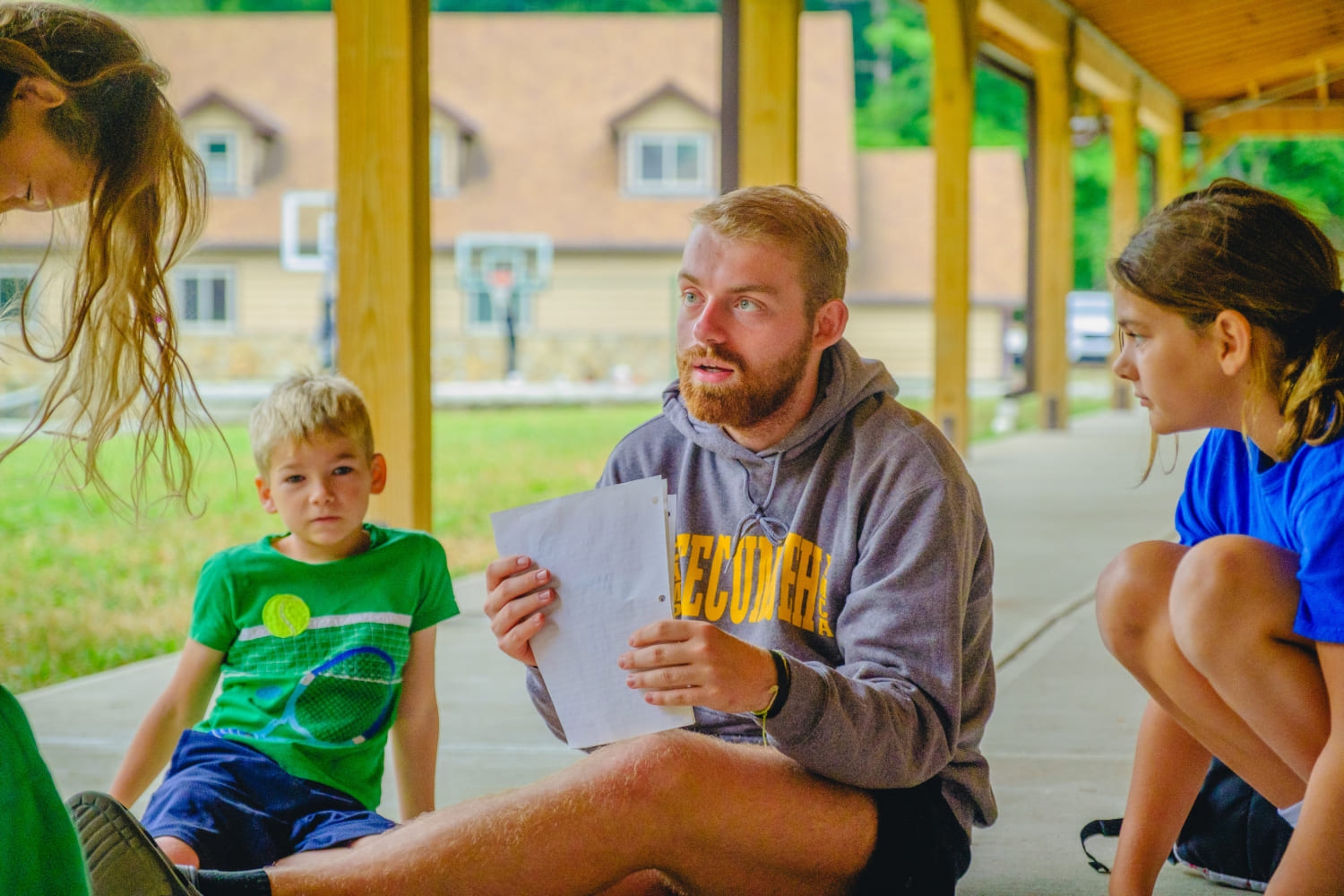 Well-run meetings of any size can be productive, efficient, and pleasant. Poorly-run meetings can drag down staff moral and waste everyone's time. Get cracking with this clear explanation of sensible, professional, and user-friendly strategies that will transform chaos into order at your day camp. Gathering the brightest minds in your organization will henceforth be energizing and productive.
Well-run meetings of any size can be productive, efficient, and pleasant. Poorly-run meetings can drag down staff moral and waste everyone's time. Get cracking with this clear explanation of sensible, professional, and user-friendly strategies that will transform chaos into order at your day camp. Gathering the brightest minds in your organization will henceforth be energizing and productive.
Masterful Meetings for Overnight Camps
Preparation, Timing, and Productivity
Steve Maguire
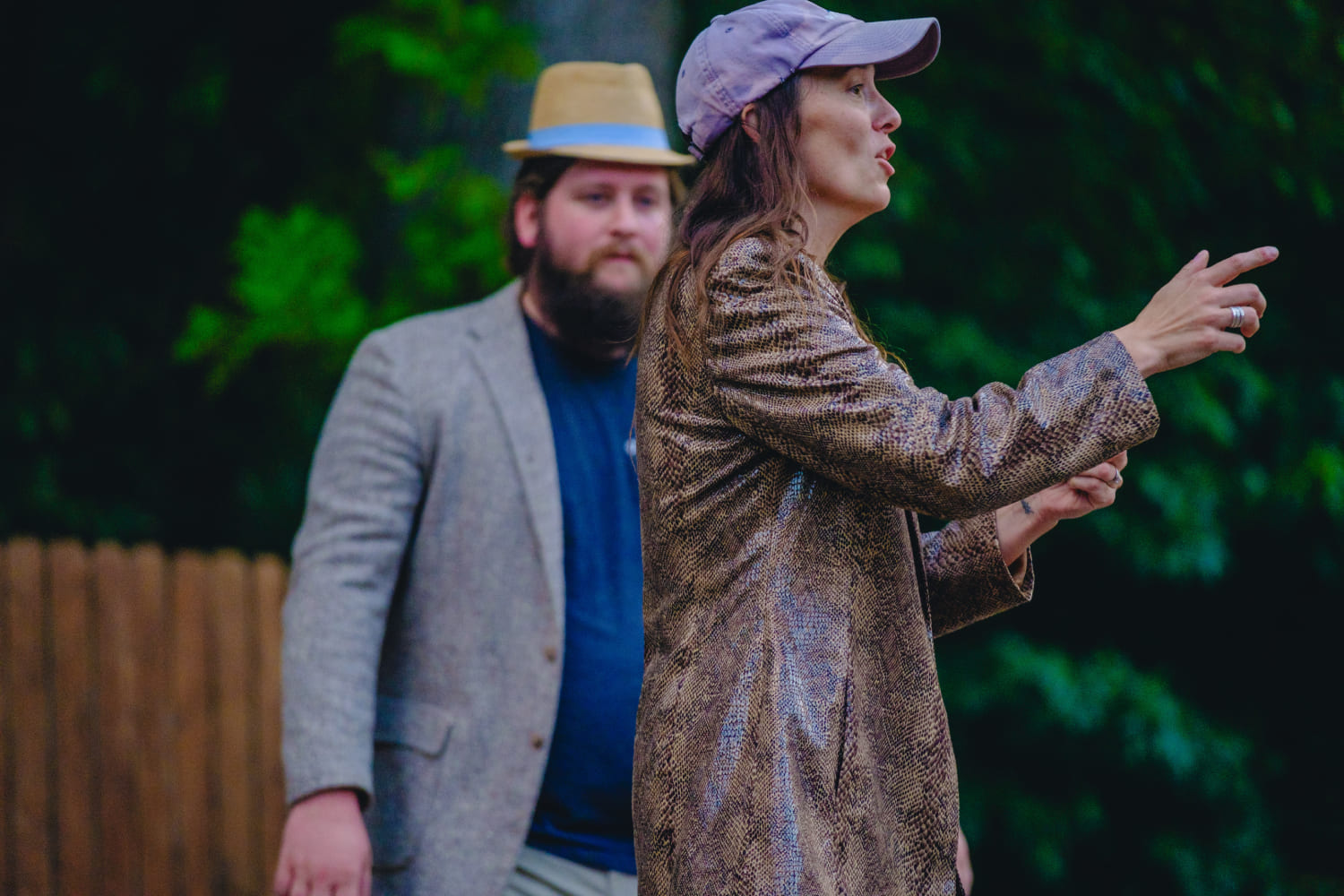 Well-run meetings of any size can be productive, efficient, and pleasant. Poorly-run meetings can drag down staff moral and waste everyone's time. Get cracking with this clear explanation of sensible, professional, and user-friendly strategies that will transform chaos into order at your overnight camp. Gathering the brightest minds in your organization will henceforth be energizing and productive.
Well-run meetings of any size can be productive, efficient, and pleasant. Poorly-run meetings can drag down staff moral and waste everyone's time. Get cracking with this clear explanation of sensible, professional, and user-friendly strategies that will transform chaos into order at your overnight camp. Gathering the brightest minds in your organization will henceforth be energizing and productive.
Promoted to Supervisor!
Leadership Skills for Newly-Minted Managers
Sarah Kurtz McKinnon
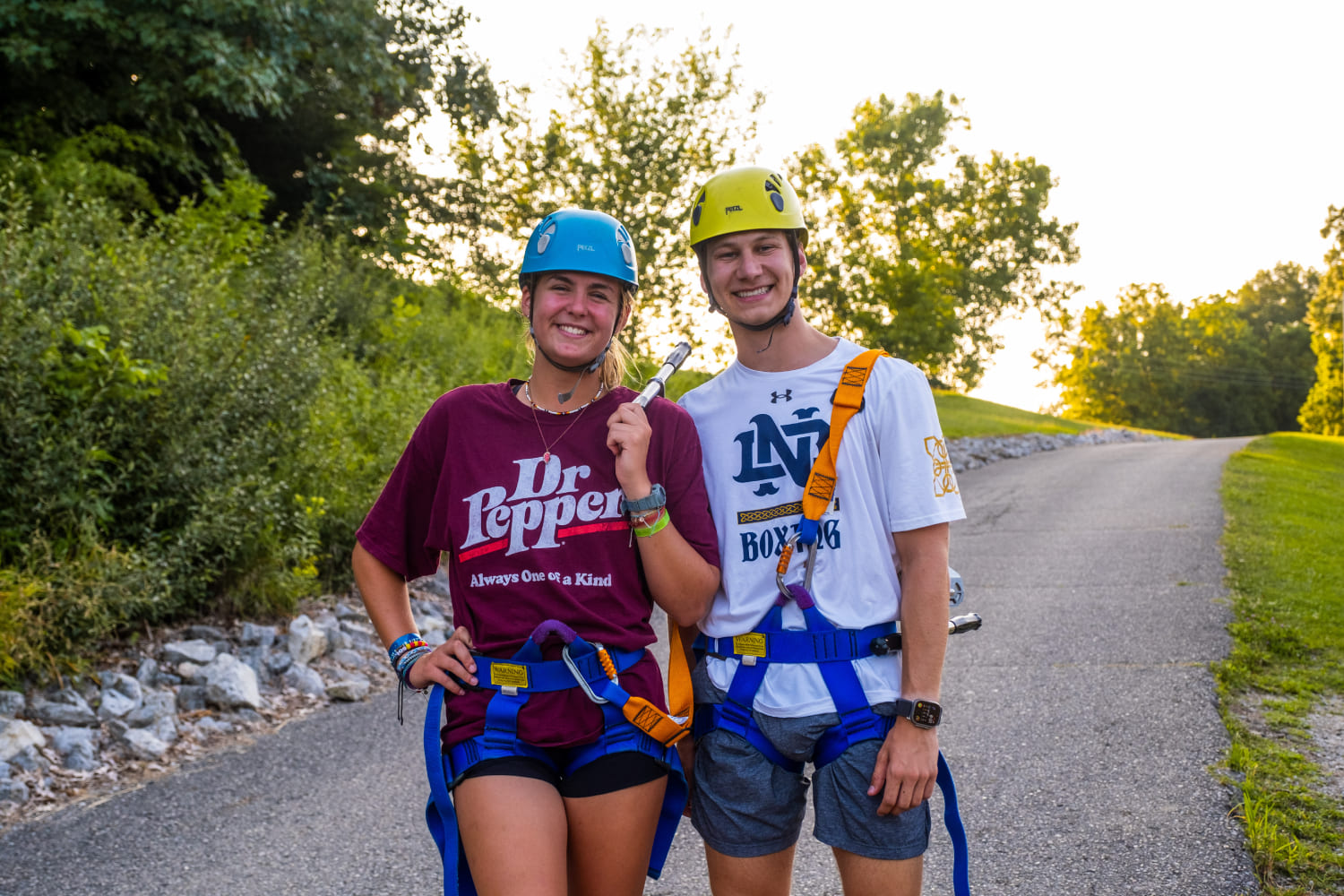 Congratulations! Few industries promote from the front lines to the supervisory ranks without explicit training. Your exemplary youth leadership has vaulted you to a higher paygrade but an unfamiliar skill set. This practical video for internally promoted staff shows you what to embrace, what to avoid, and how to draw the best from those you are supervising—without alienating them as friends.
Congratulations! Few industries promote from the front lines to the supervisory ranks without explicit training. Your exemplary youth leadership has vaulted you to a higher paygrade but an unfamiliar skill set. This practical video for internally promoted staff shows you what to embrace, what to avoid, and how to draw the best from those you are supervising—without alienating them as friends.
Providing Effective Feedback, Part I
Preparation, Timing, Delivery, & Follow-Up
Dr. Chris Thurber
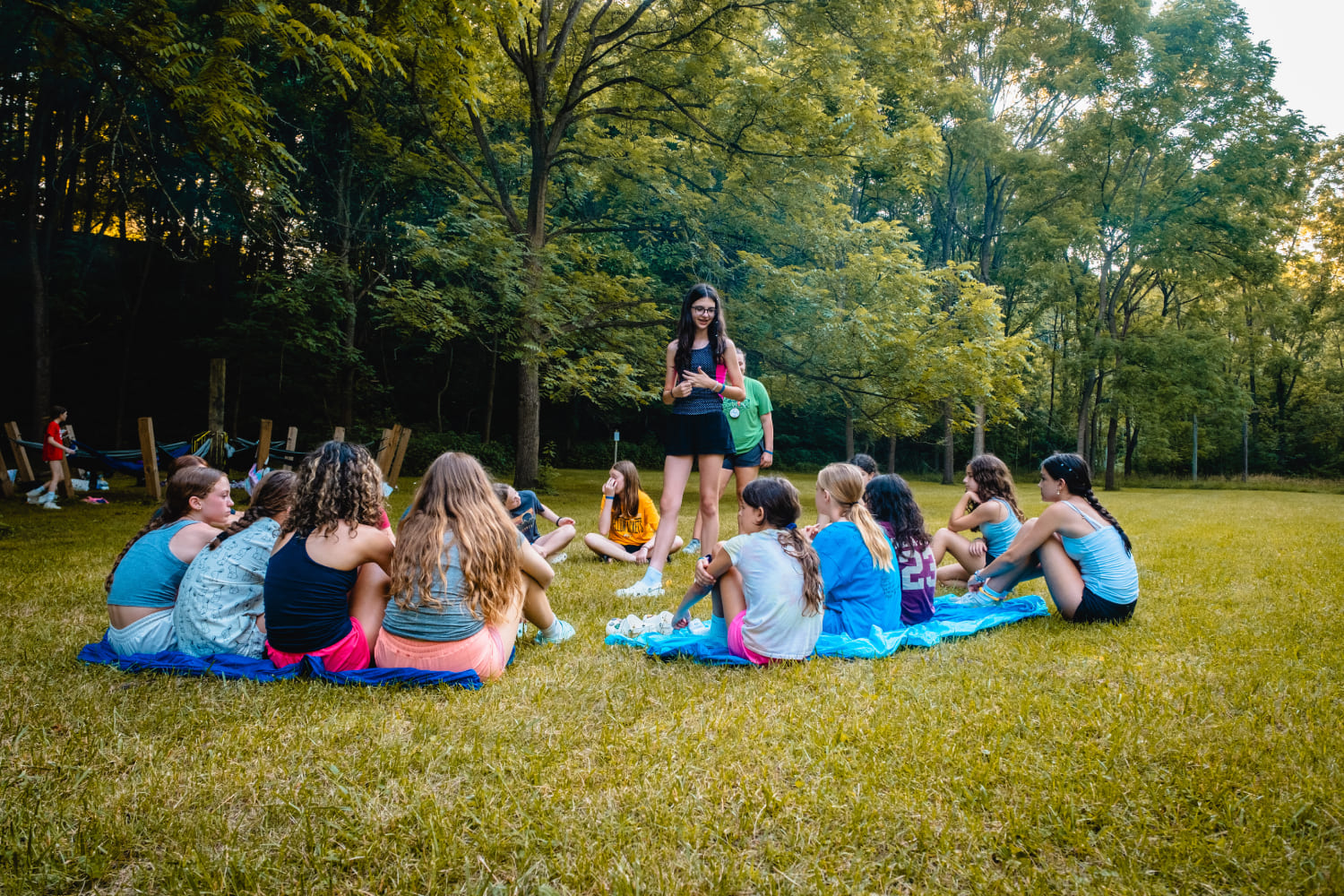 Whether you're in a supervisory position or not, providing feedback to your colleagues is an essential skill for leadership growth and development. Of course, the barrier to providing feedback is that relationships are at stake. This advanced module describes how to preserve good relationships while providing clear feedback in ways that boost everyone's performance.
Whether you're in a supervisory position or not, providing feedback to your colleagues is an essential skill for leadership growth and development. Of course, the barrier to providing feedback is that relationships are at stake. This advanced module describes how to preserve good relationships while providing clear feedback in ways that boost everyone's performance.
Providing Effective Feedback, Part II
Using Appreciative Inquiry to Motivate Groups
Dr. Chris Thurber
 We notice the negative without any training. But starting a meeting by balling out your staff will cause their motivation, creativity, optimism, and mood to tank. This cutting-edge module will teach you the Appreciative Inquiry approach to group management. Change is quick and durable when managers focus first on all that is going right in an organization and ask: "How do we get more of the good stuff?"
We notice the negative without any training. But starting a meeting by balling out your staff will cause their motivation, creativity, optimism, and mood to tank. This cutting-edge module will teach you the Appreciative Inquiry approach to group management. Change is quick and durable when managers focus first on all that is going right in an organization and ask: "How do we get more of the good stuff?"
Supervising Junior Leaders
Easing the Transition from Camper to Counselor
Dr. Chris Thurber
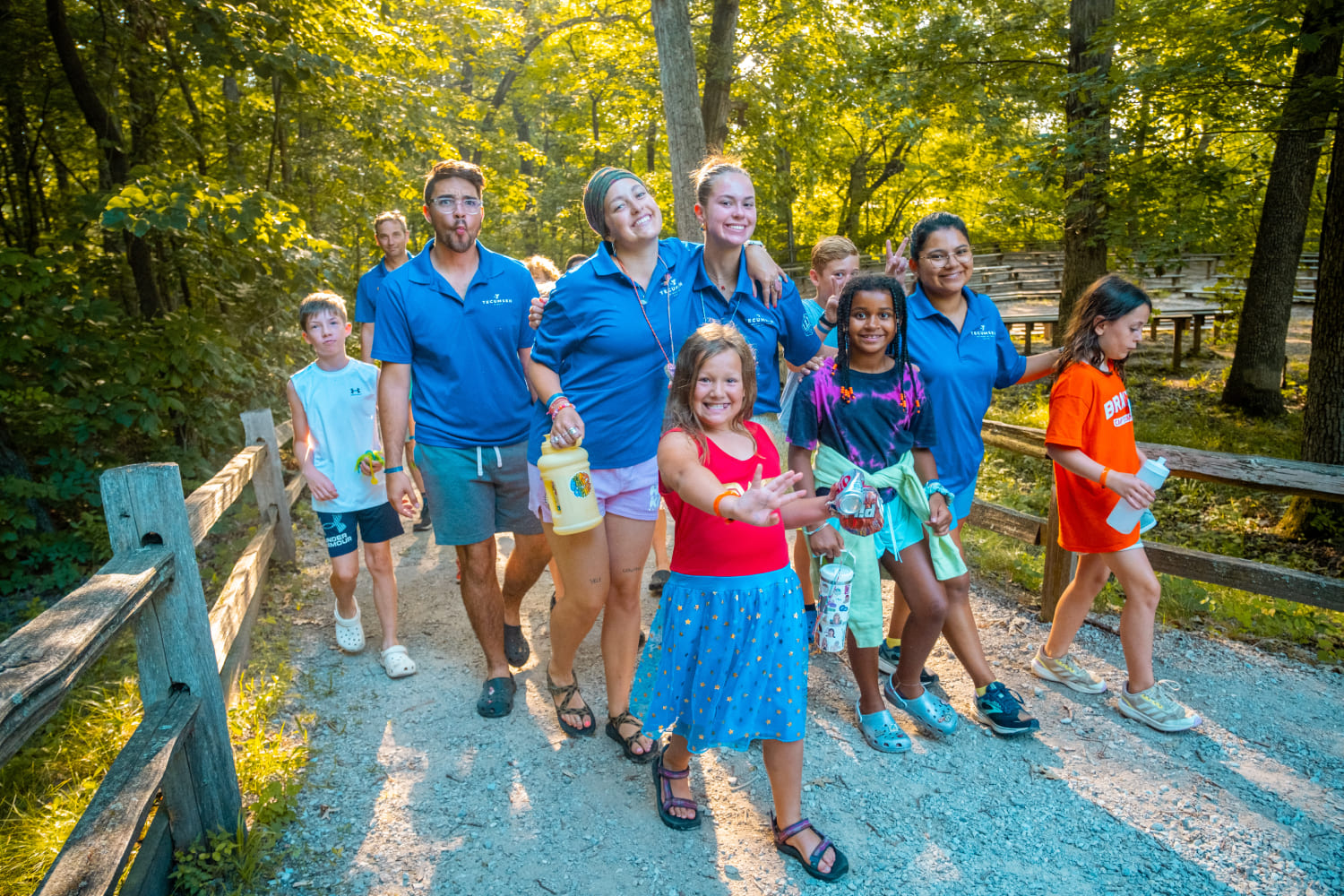 Day camps and resident camps cultivate many of their strongest staff using junior-counselor, leader-in-training, and counselor-in-training programs. But who among your supervisory staff is really ready for all the immature and impulsive things junior leaders do? This vital module prepares unit leaders and division heads to identify and respond skillfully to the ten most common mistakes junior leaders make.
Day camps and resident camps cultivate many of their strongest staff using junior-counselor, leader-in-training, and counselor-in-training programs. But who among your supervisory staff is really ready for all the immature and impulsive things junior leaders do? This vital module prepares unit leaders and division heads to identify and respond skillfully to the ten most common mistakes junior leaders make.
Winning Ways of Skilled Supervisors
Five New Pillars of Success
Scott Arizala
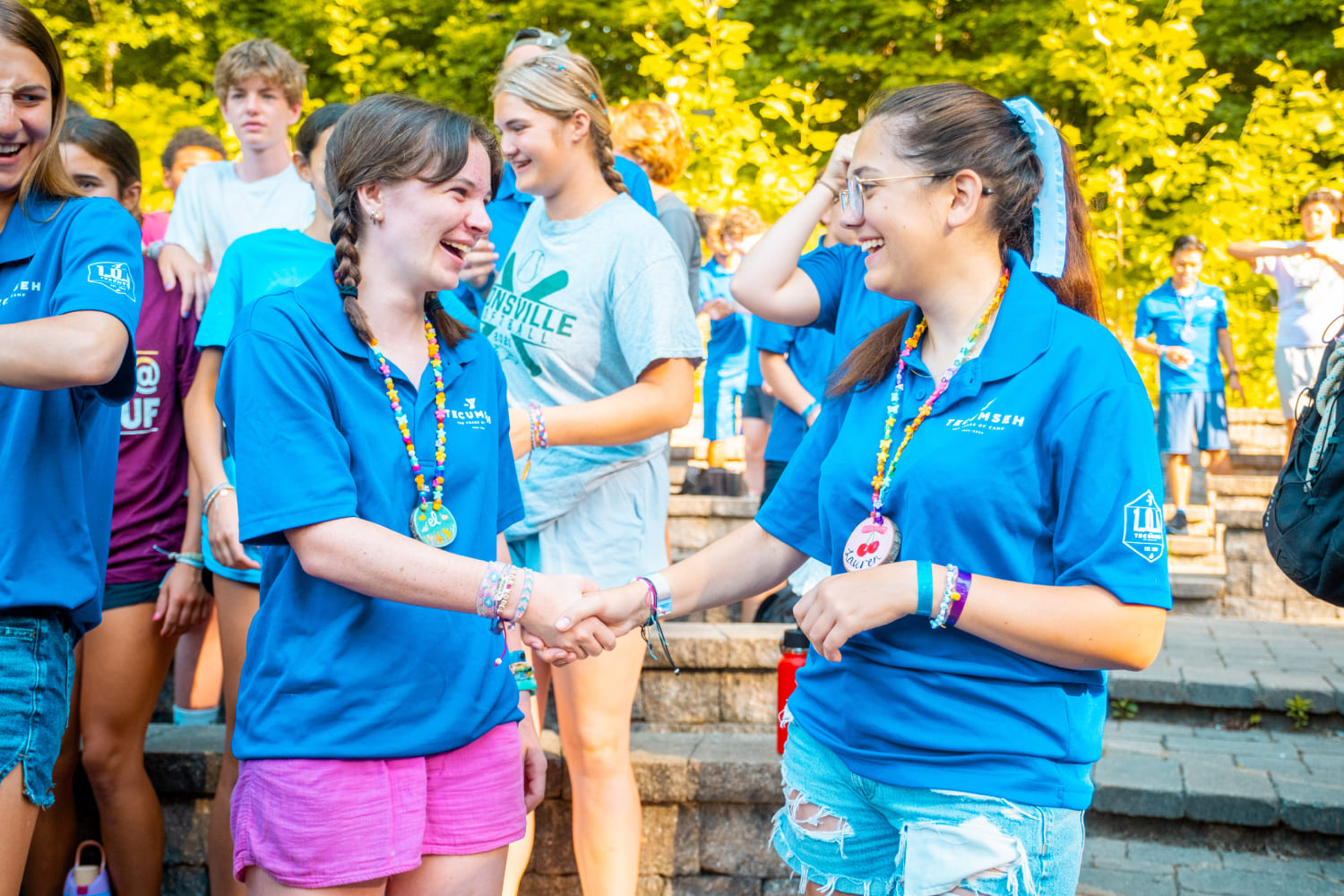 Before embarking on any supervisory role, all senior staff members must adopt the five fundamental practices of Accessibility, Approachability, Being a Team Player, Communicating Clearly, and Delegating Real Responsibility. This succinct module outlines these pillars of supervisory success. Critical for new supervisors looking to start off on the right foot.
Before embarking on any supervisory role, all senior staff members must adopt the five fundamental practices of Accessibility, Approachability, Being a Team Player, Communicating Clearly, and Delegating Real Responsibility. This succinct module outlines these pillars of supervisory success. Critical for new supervisors looking to start off on the right foot.